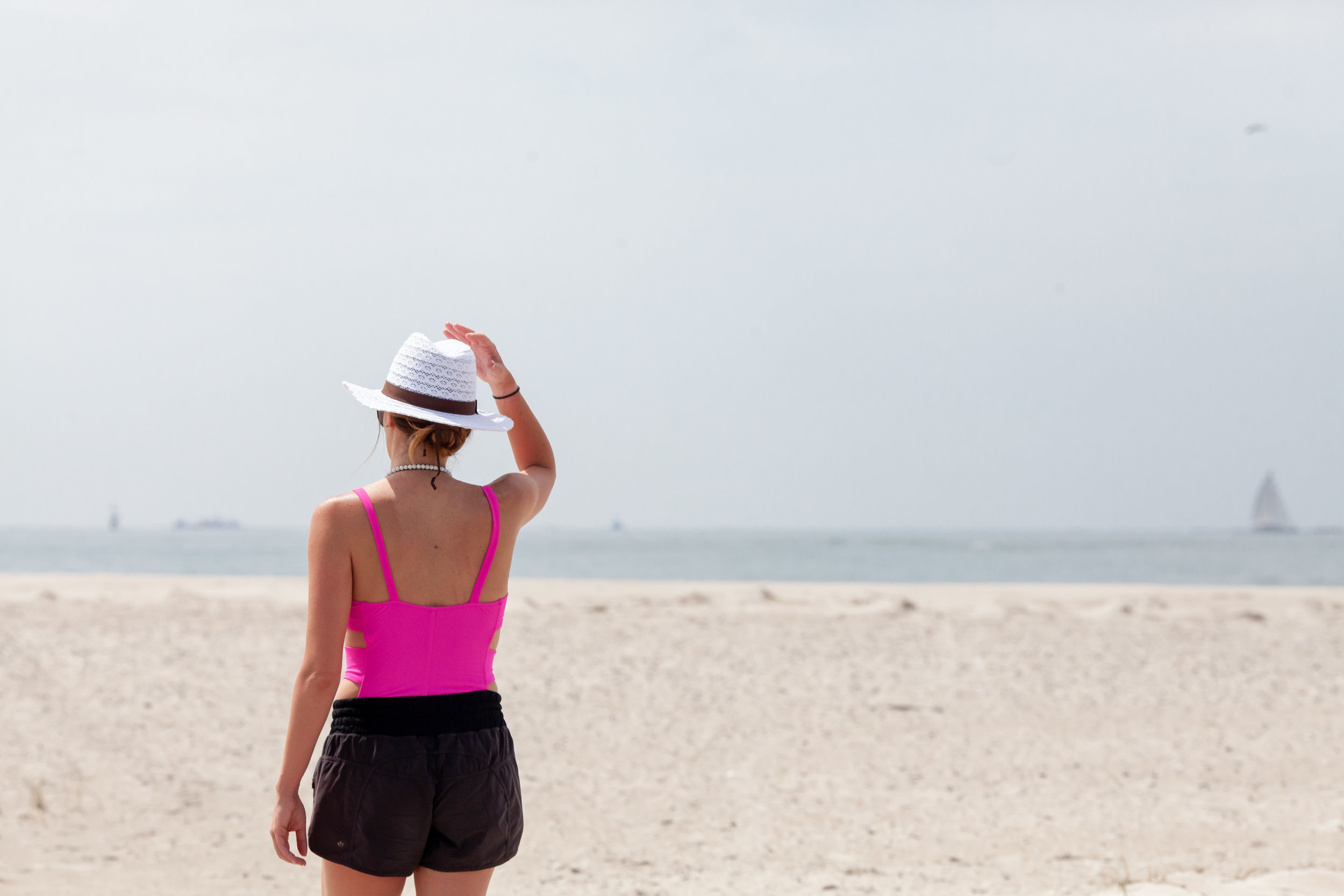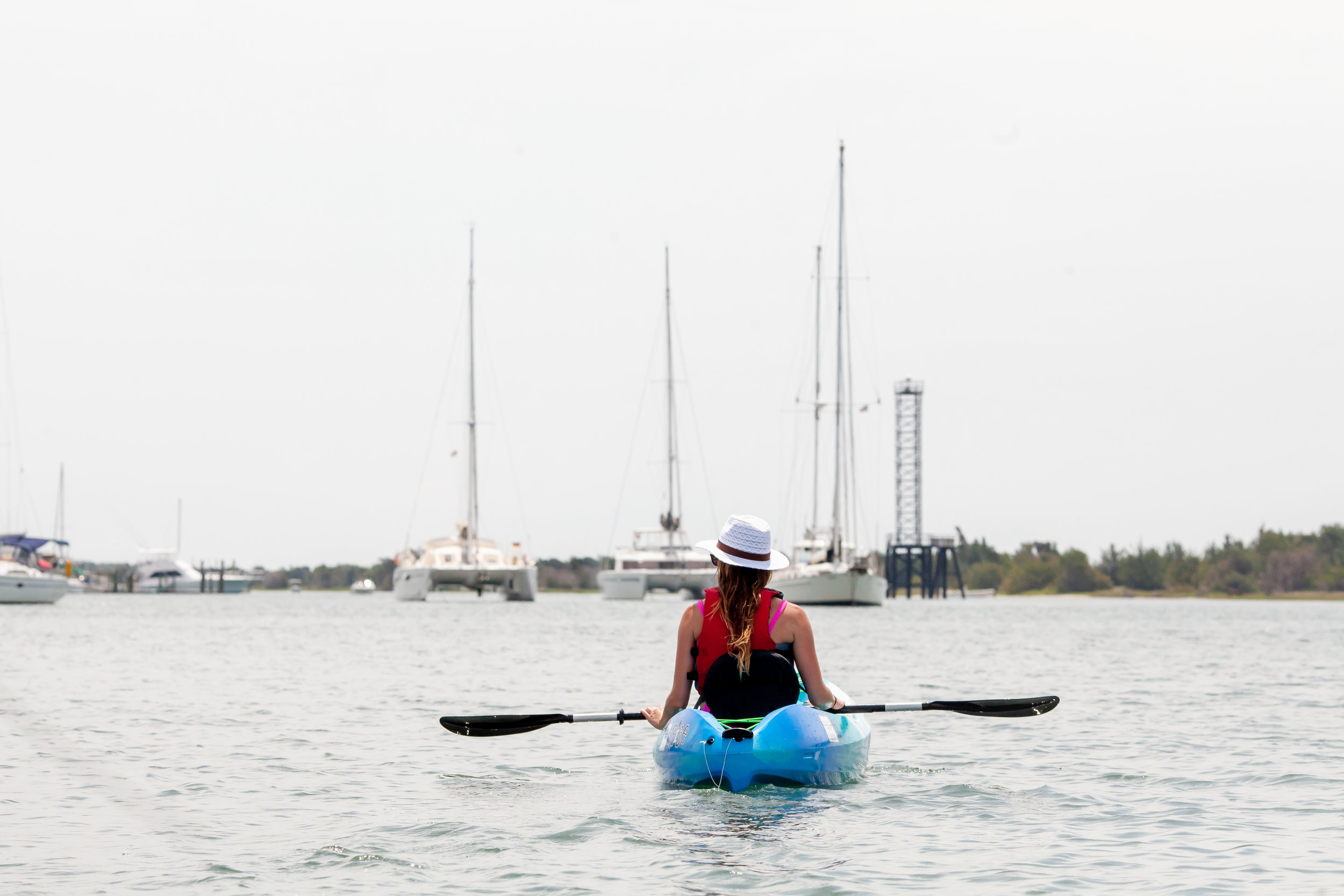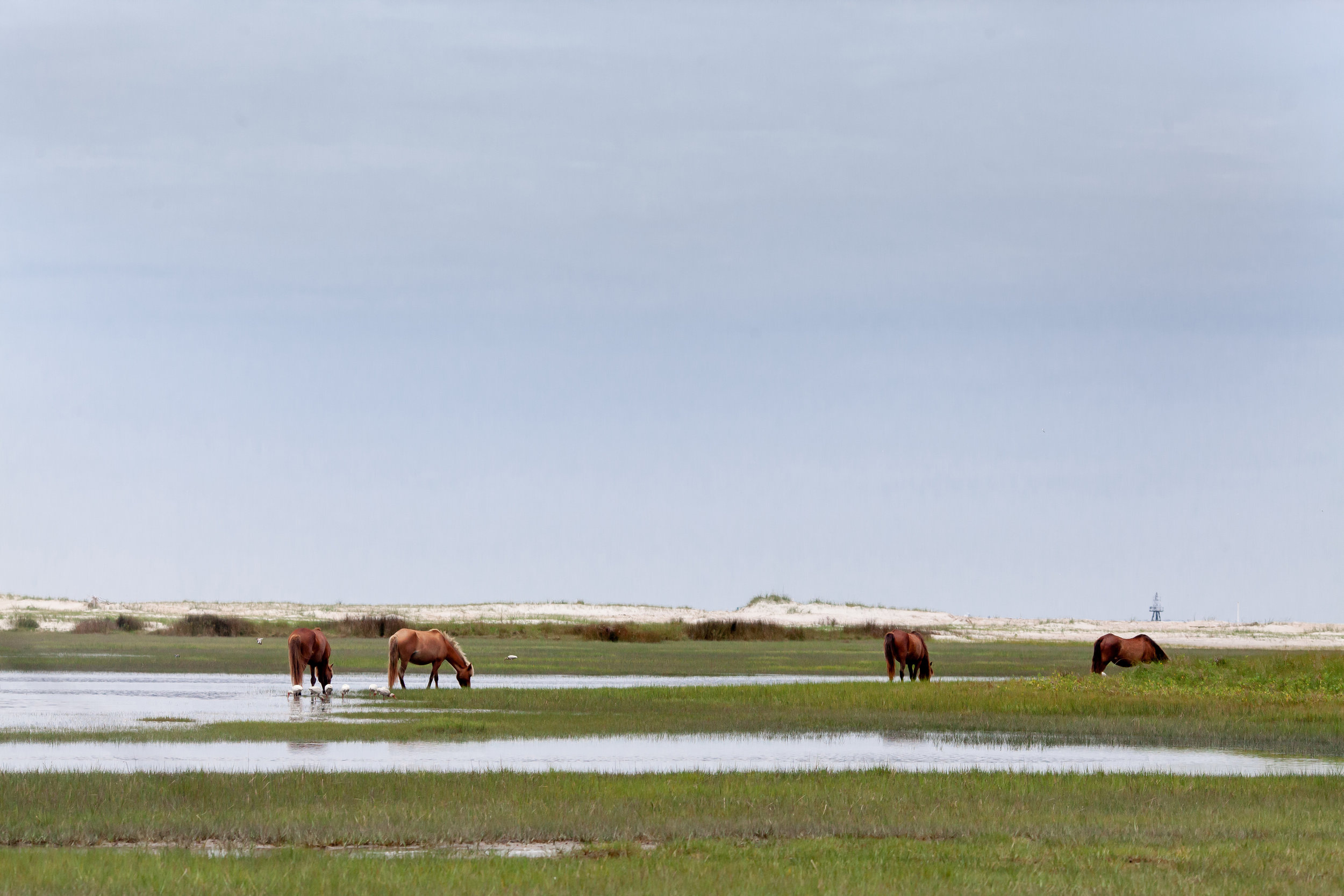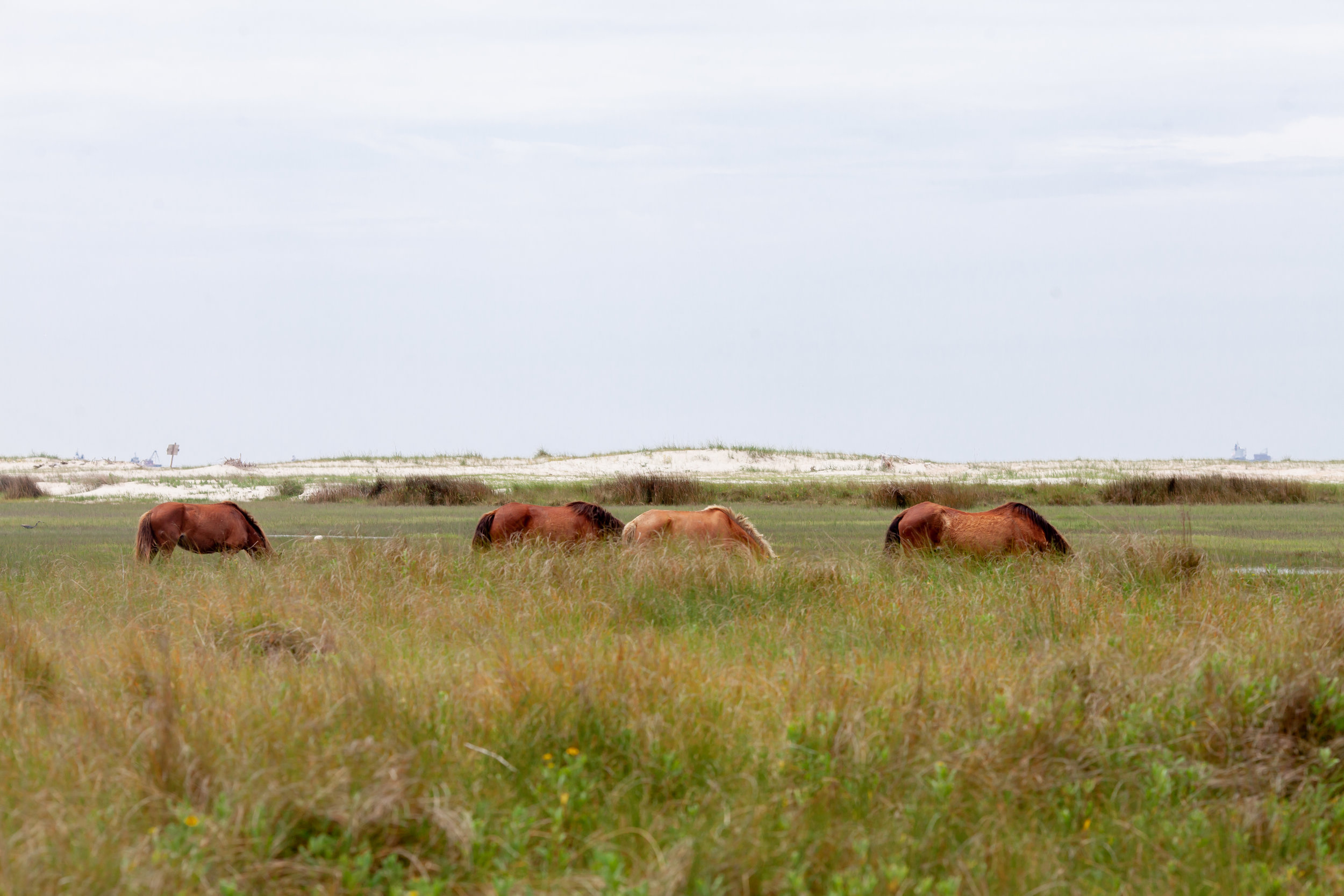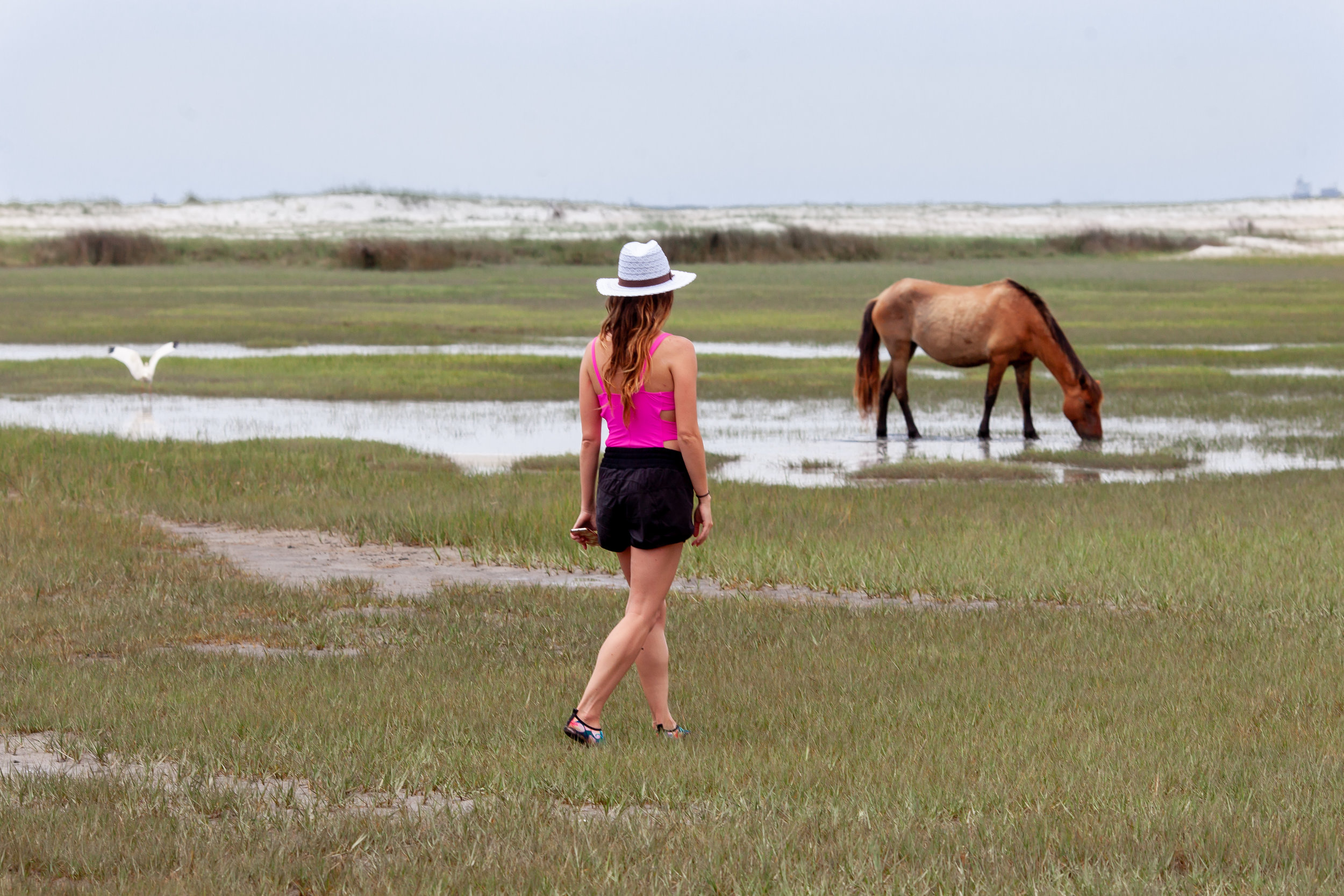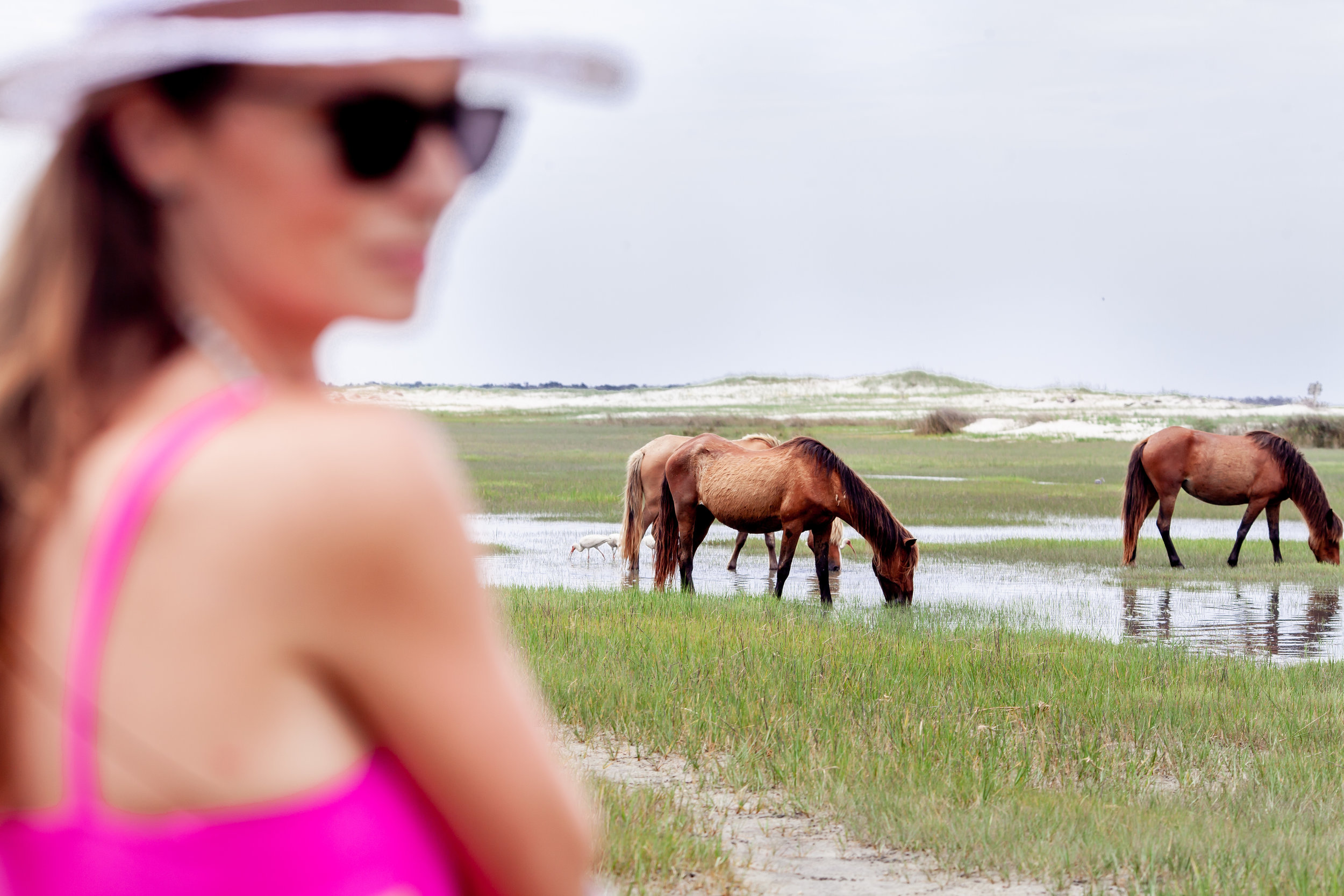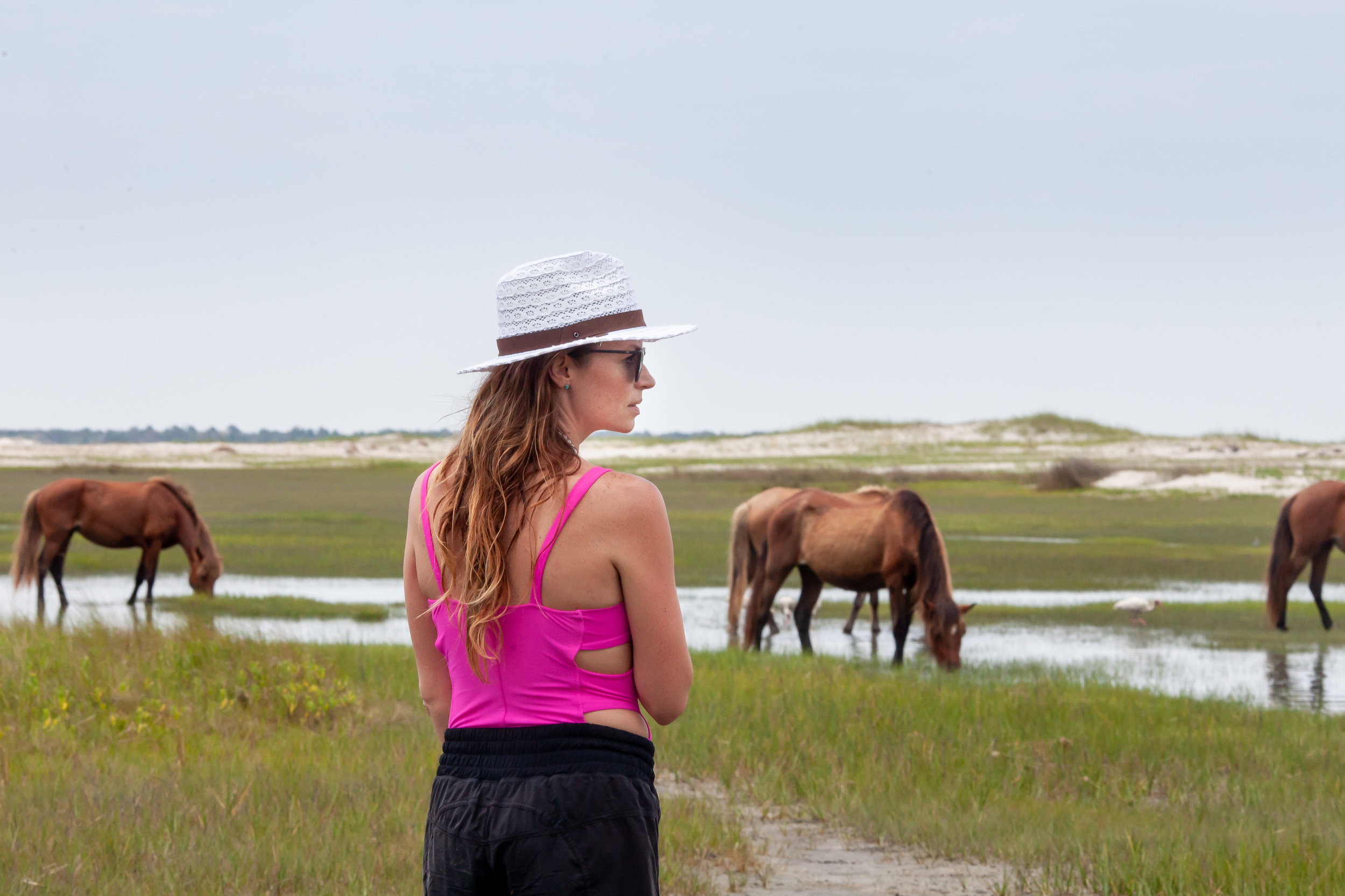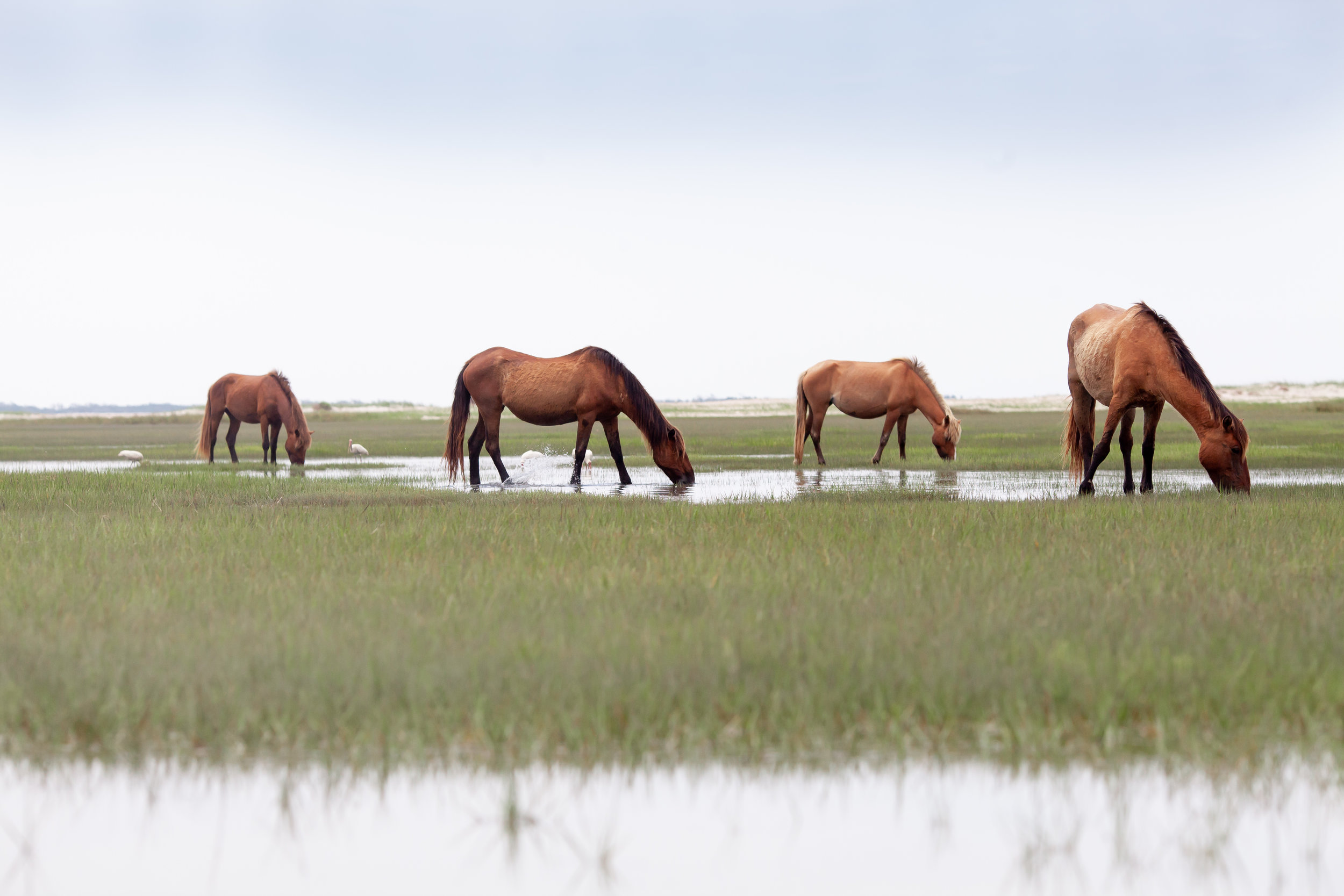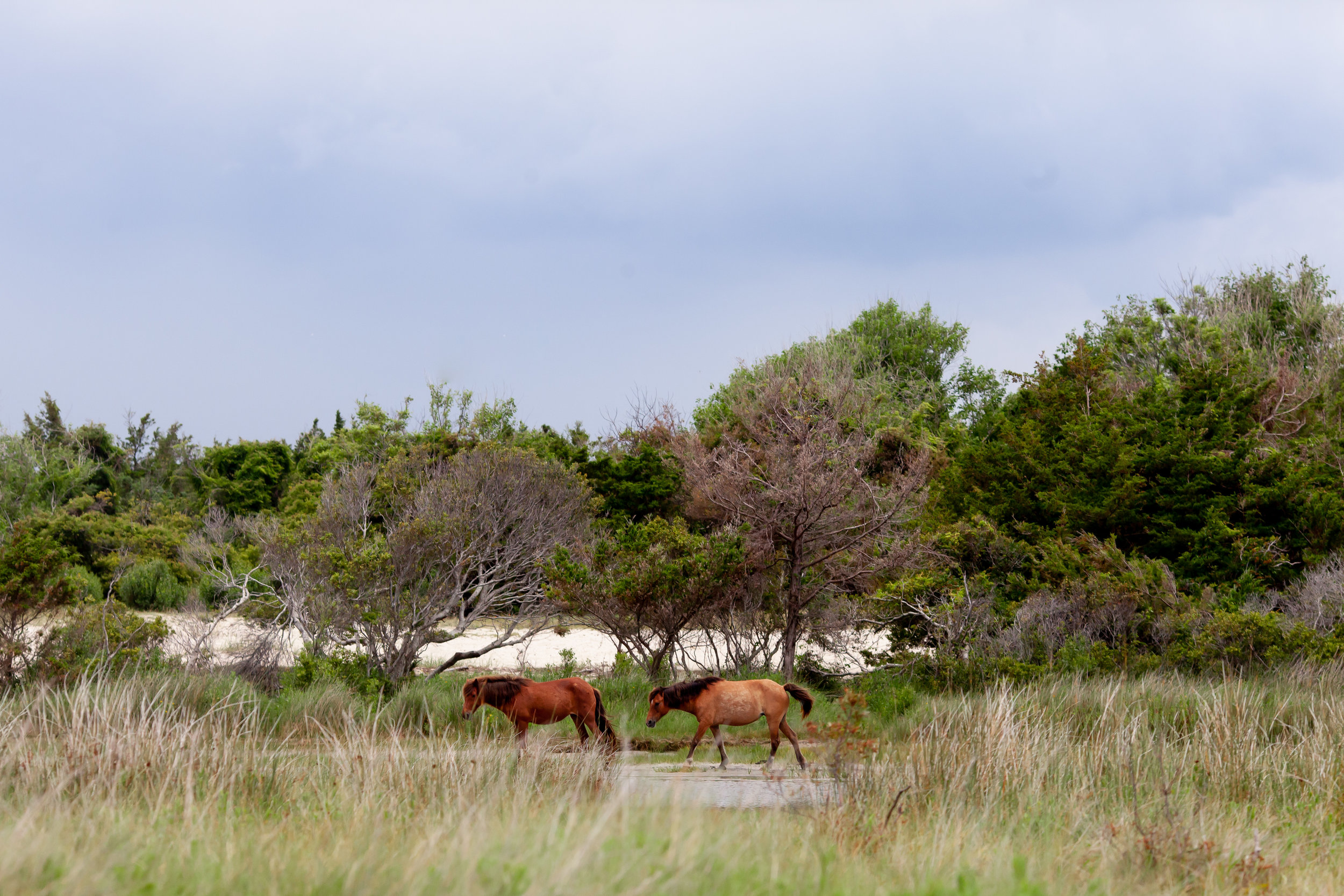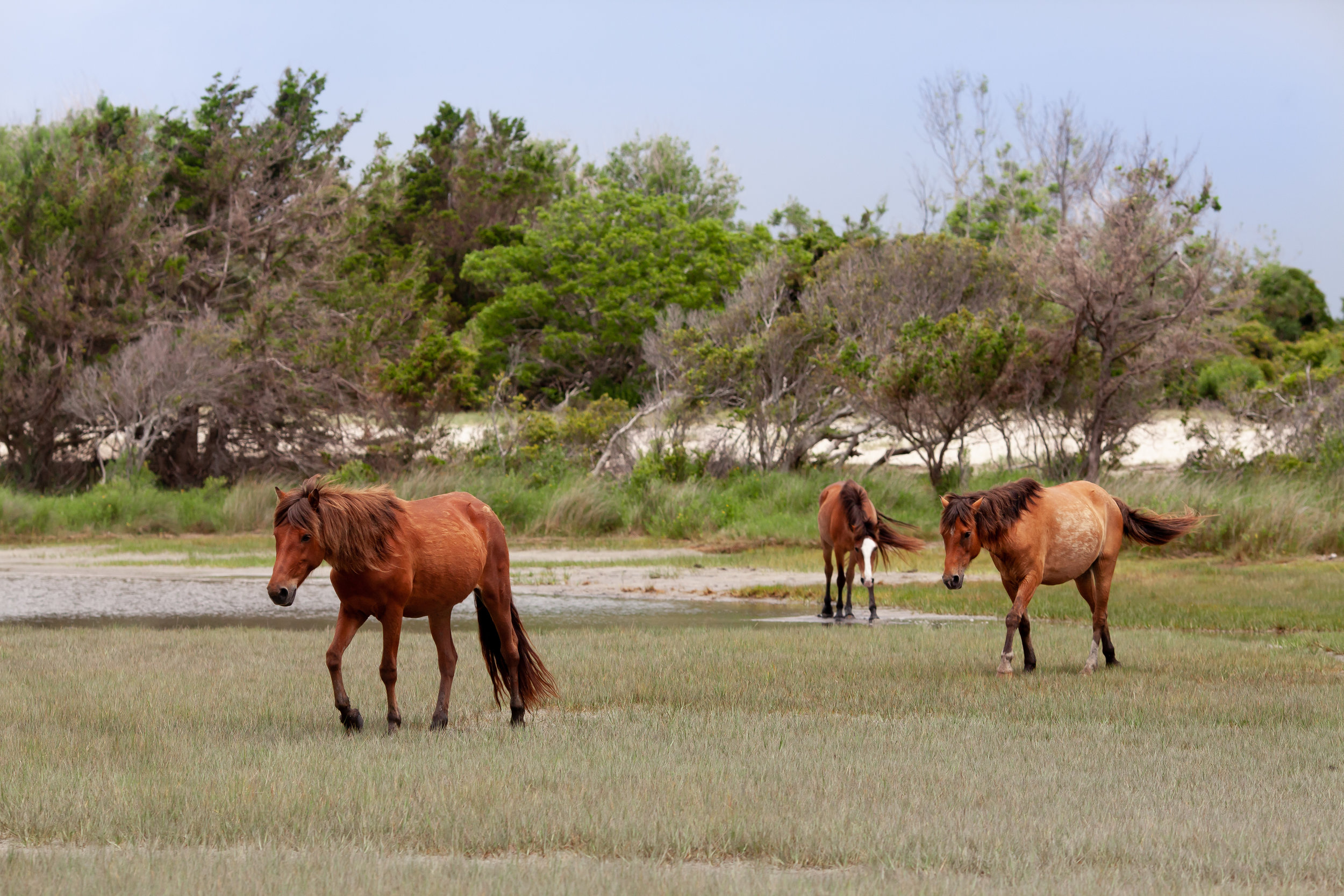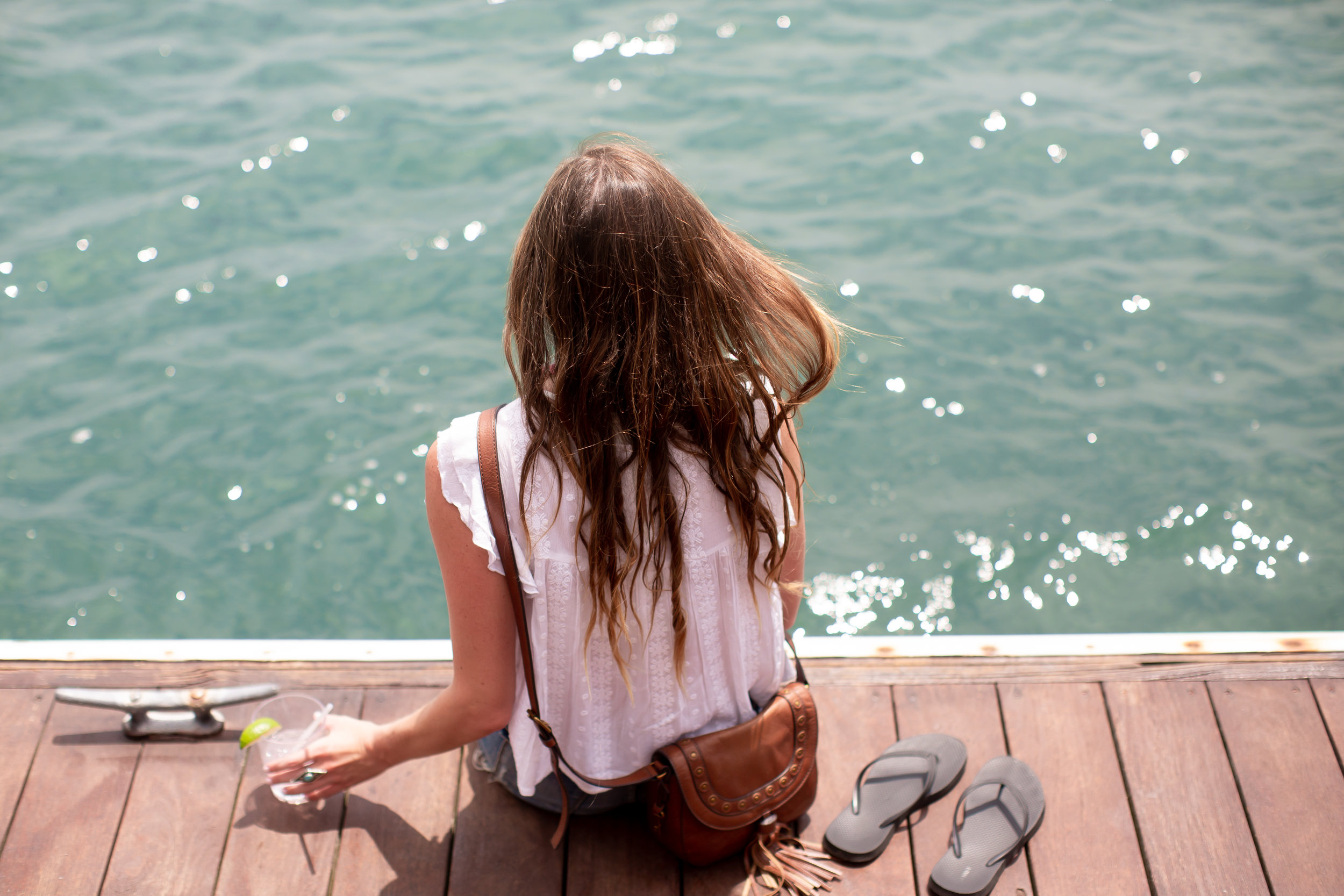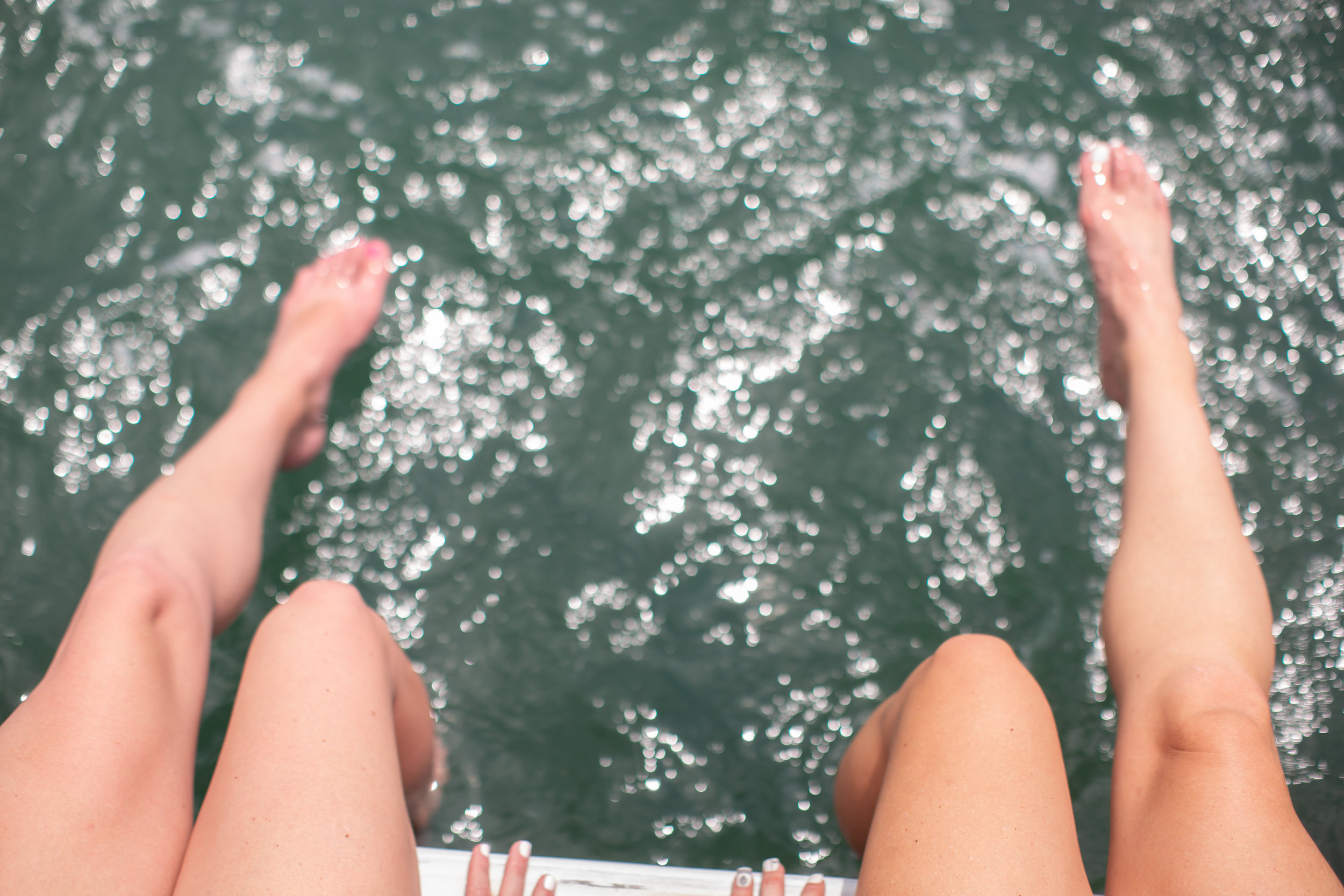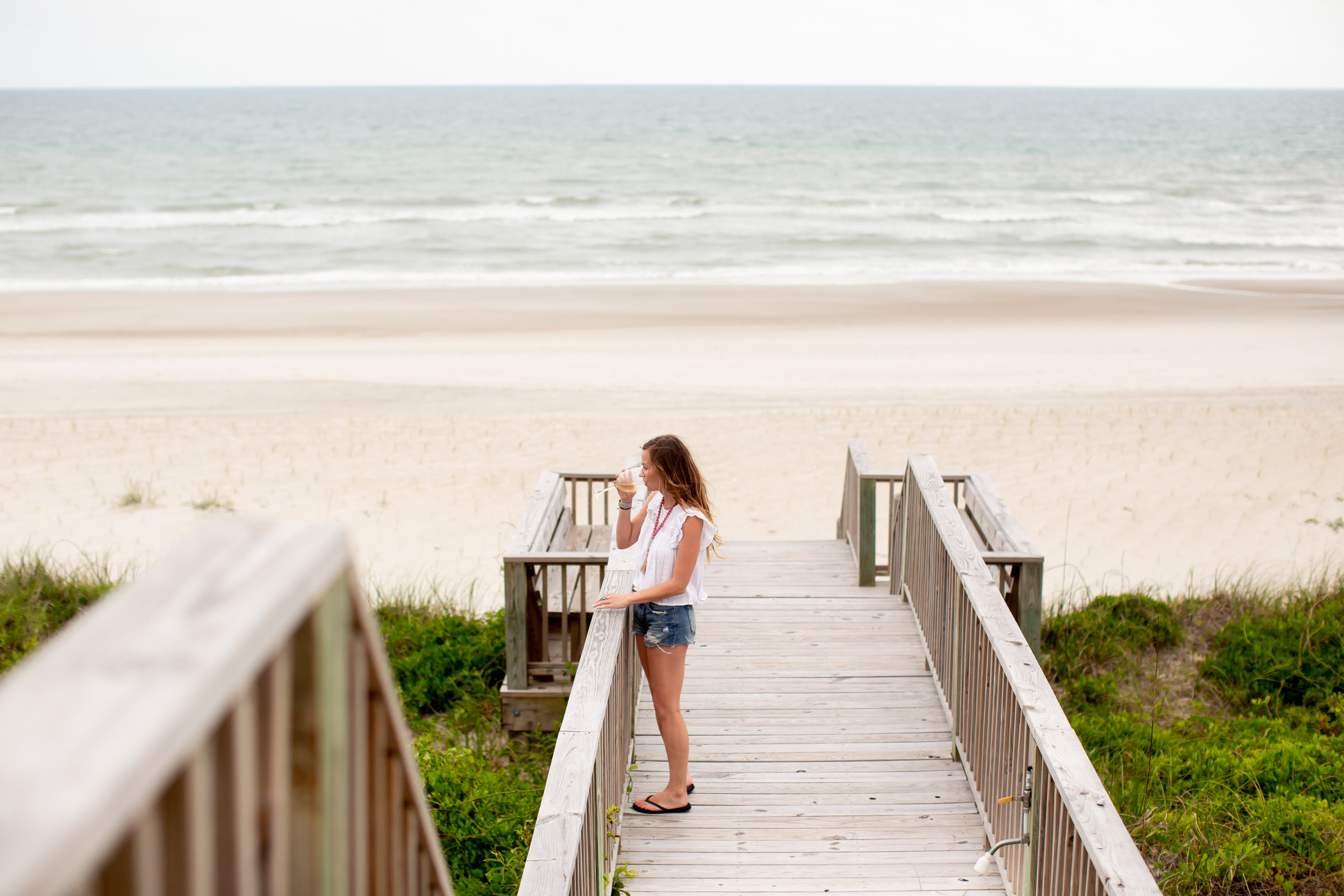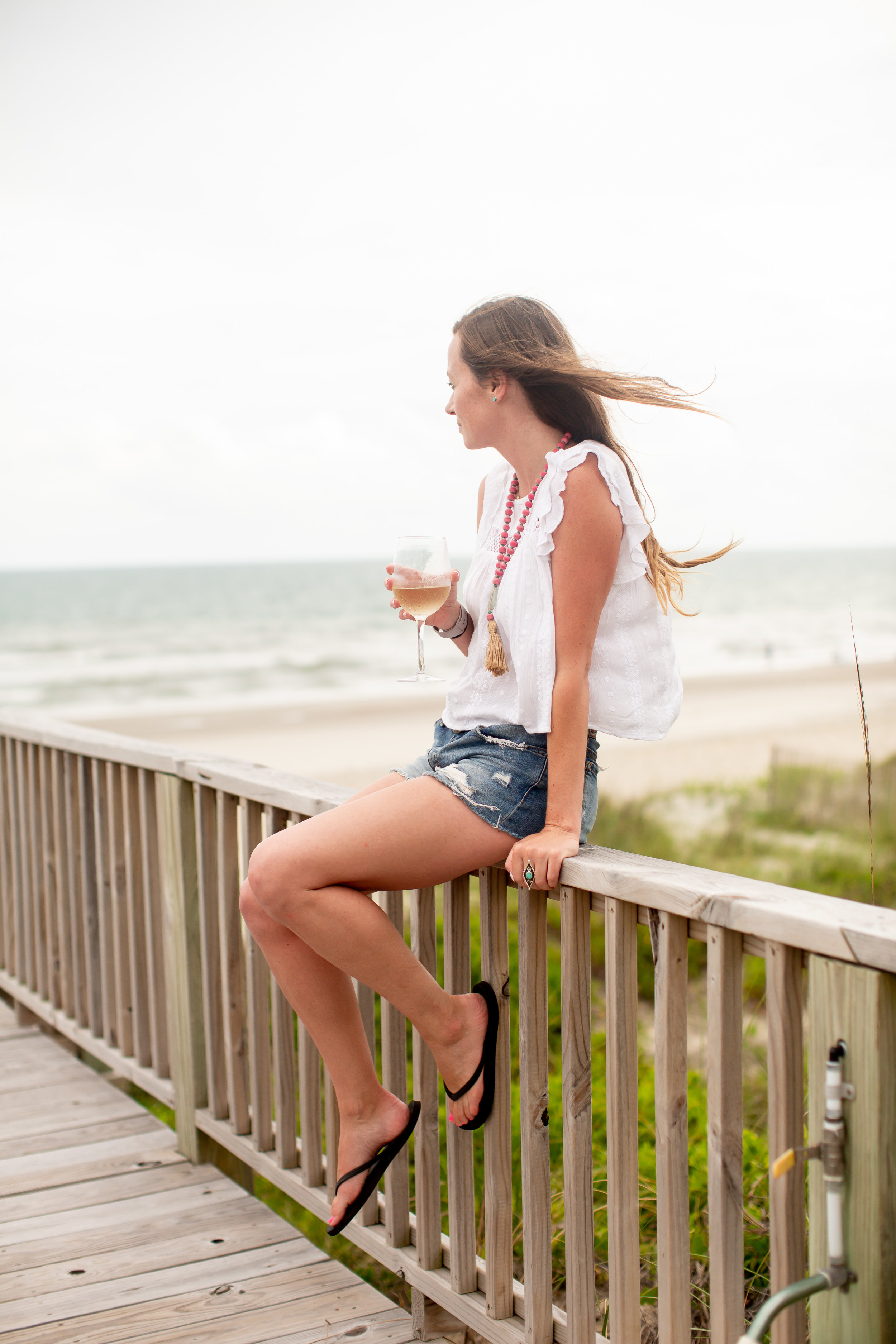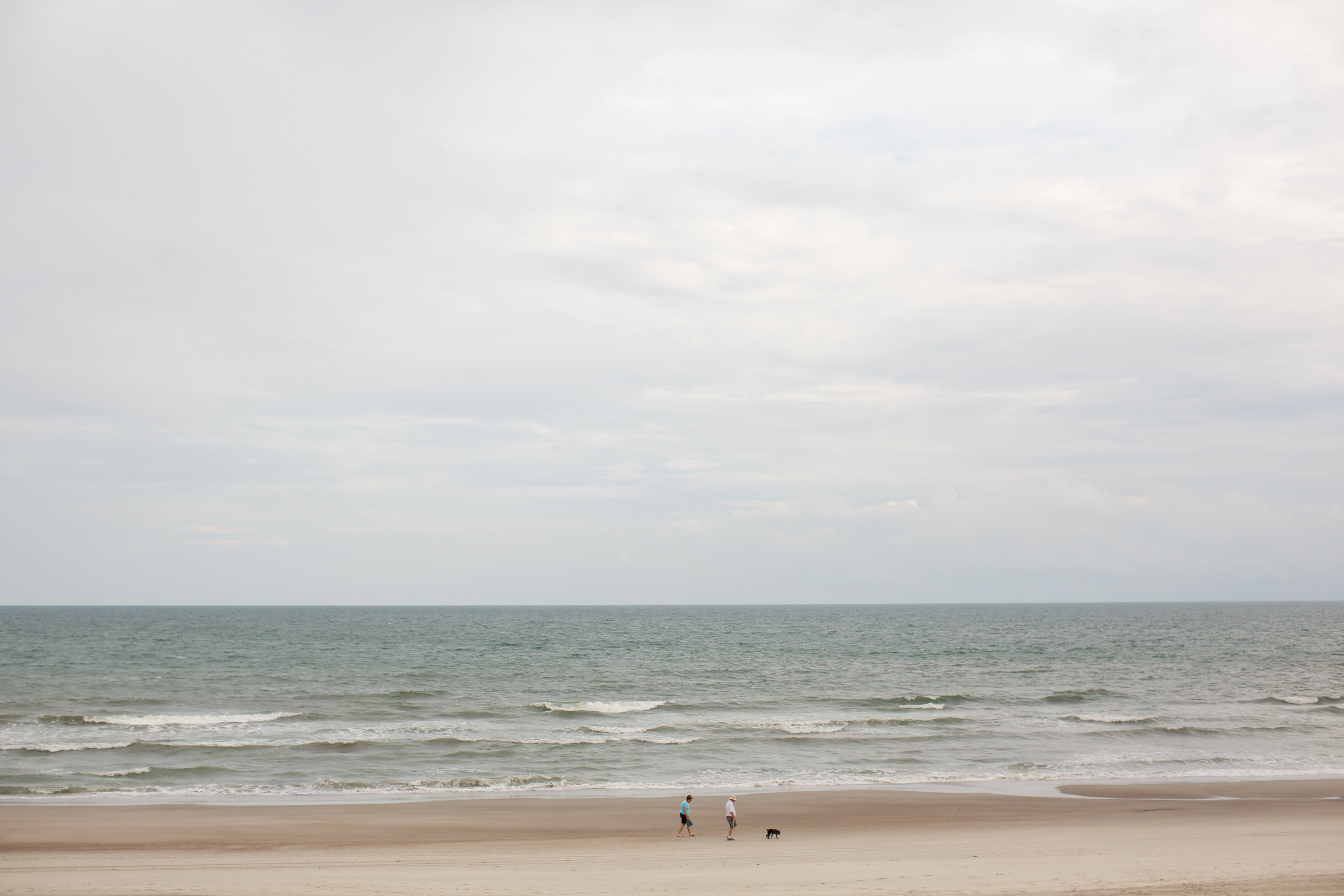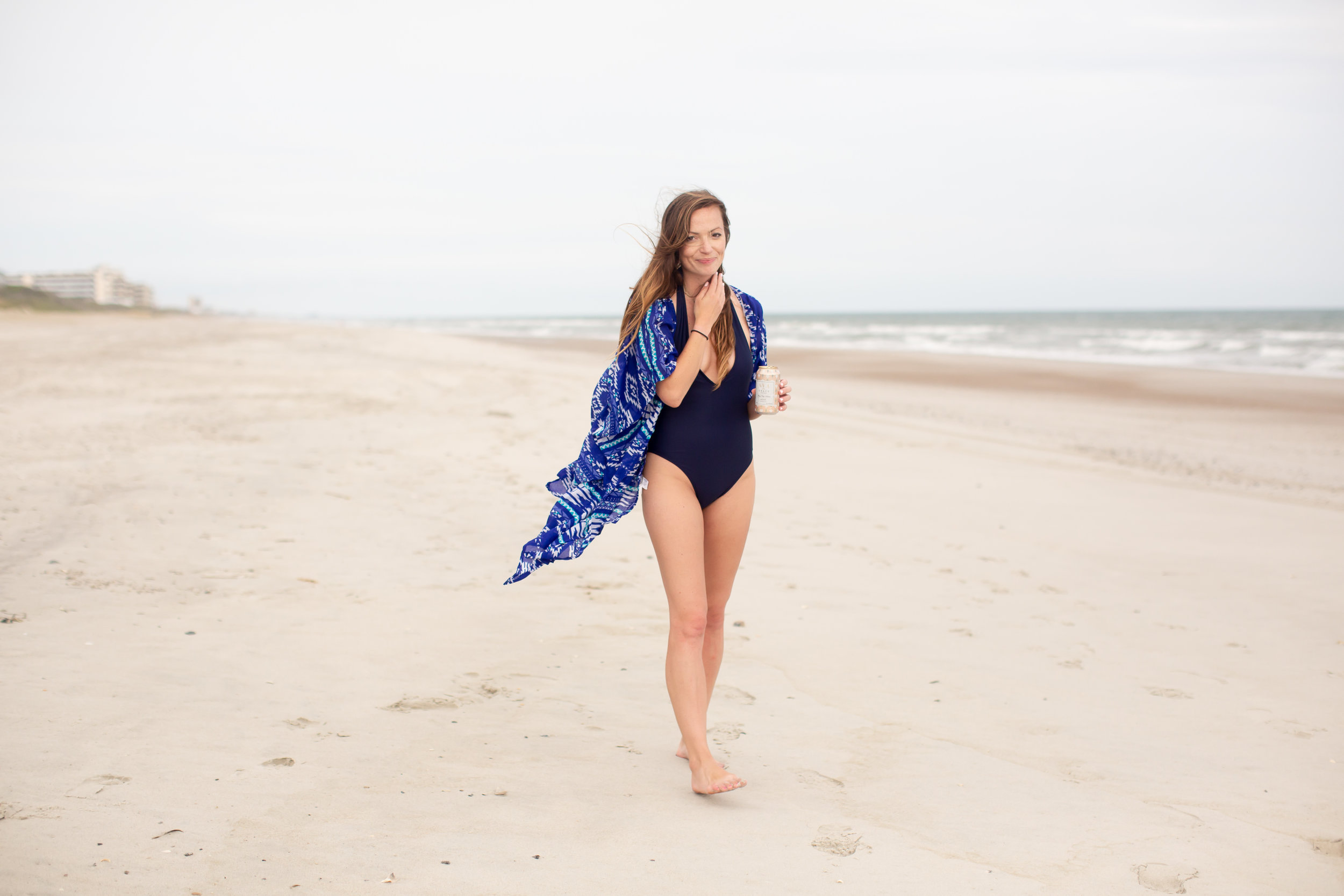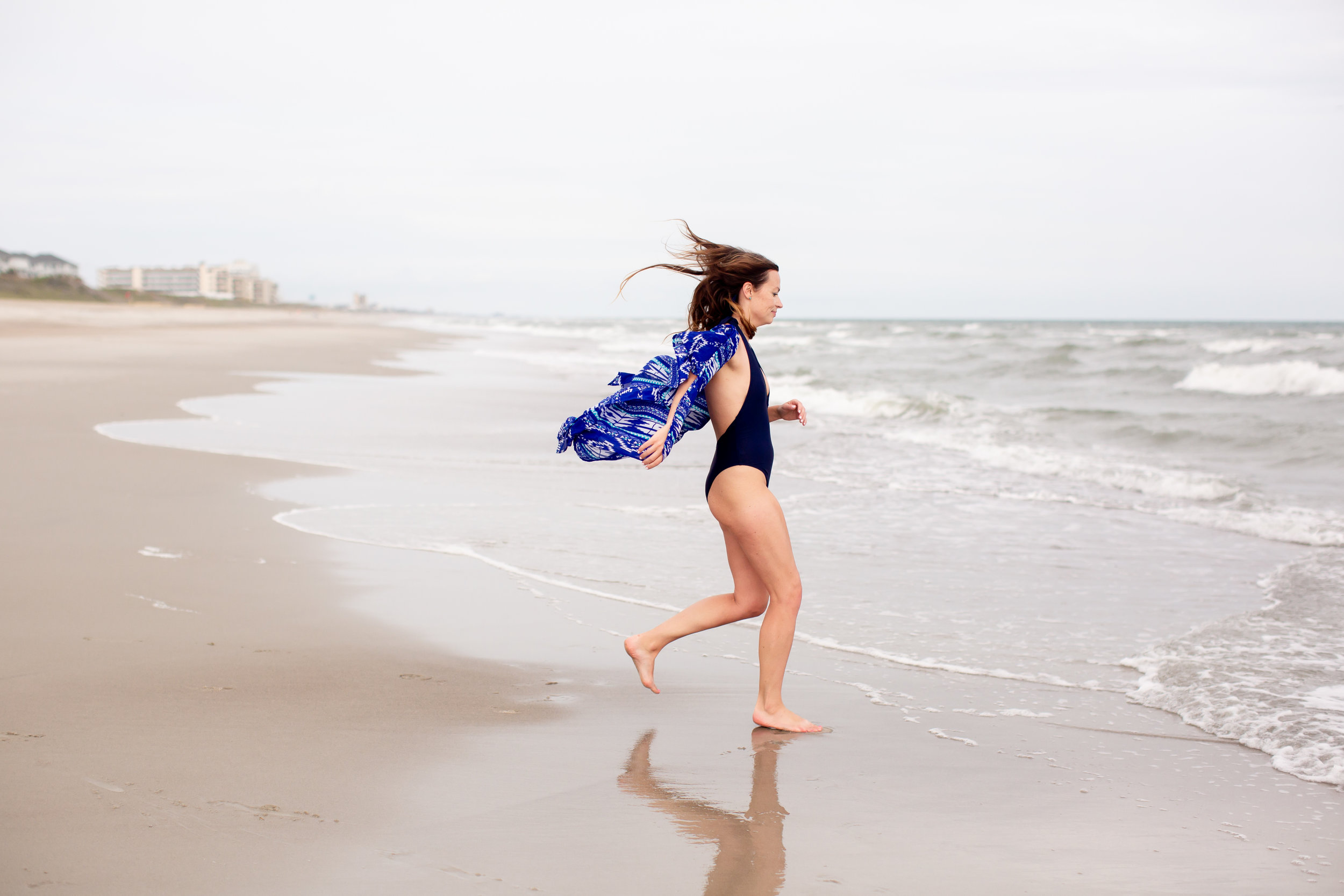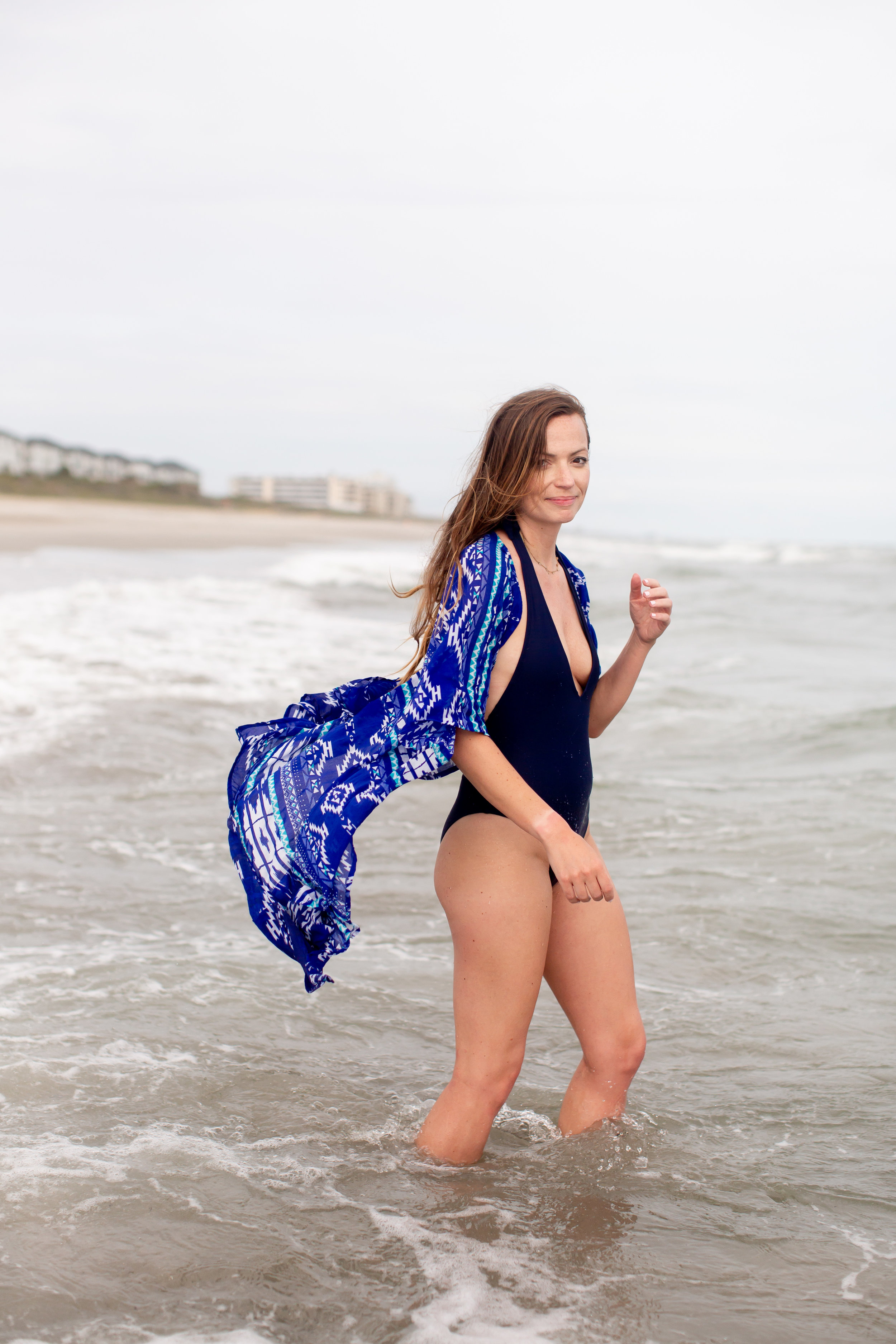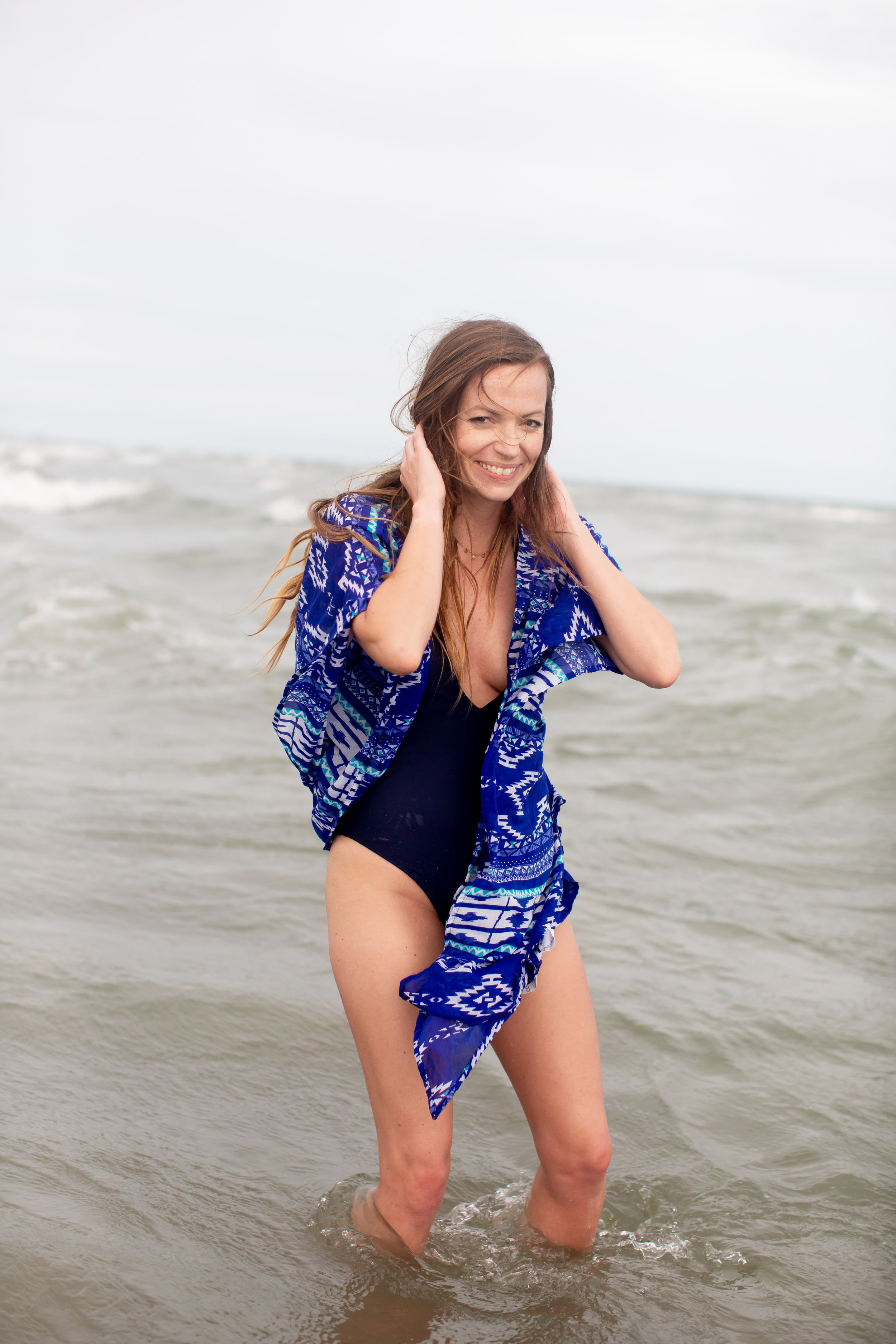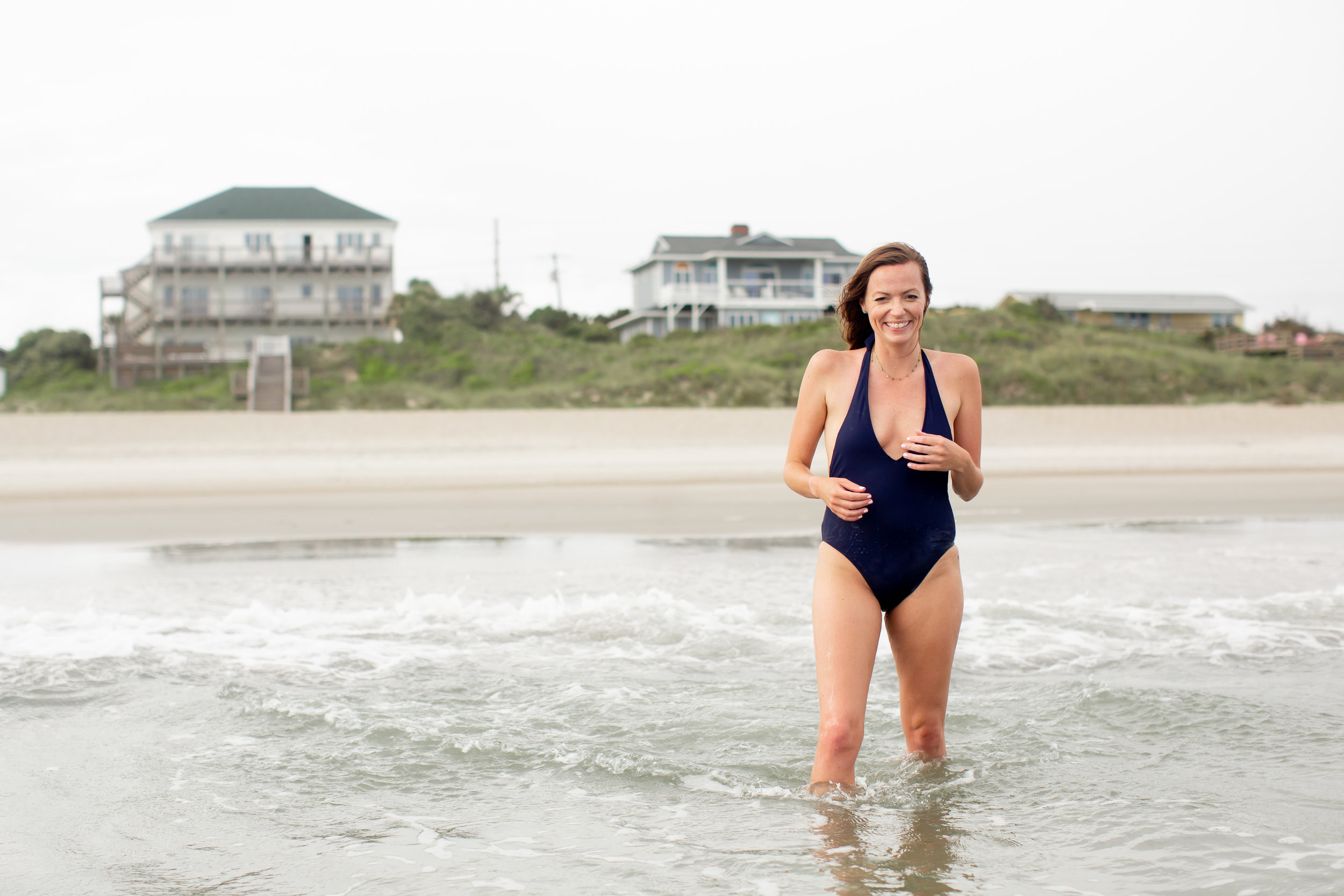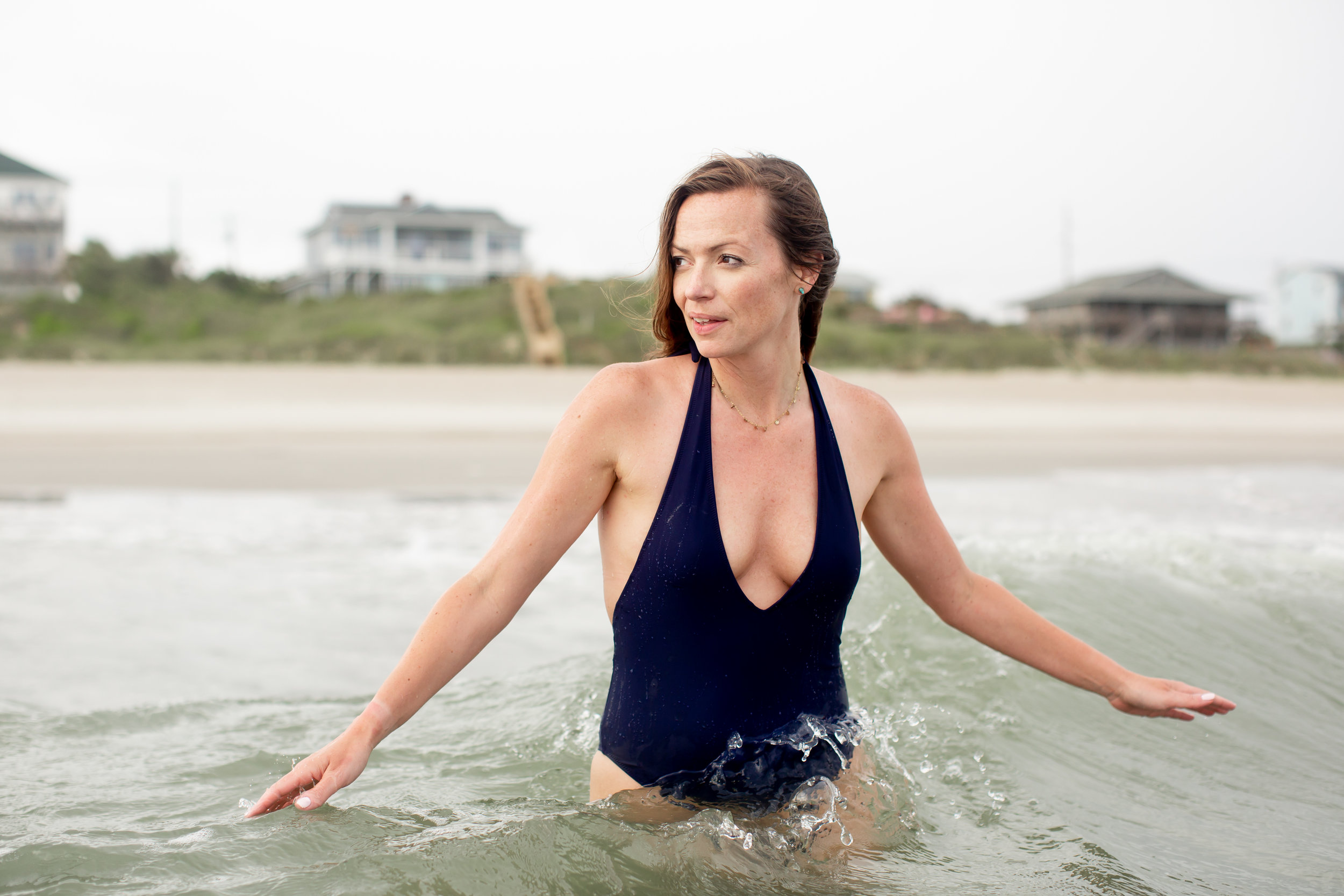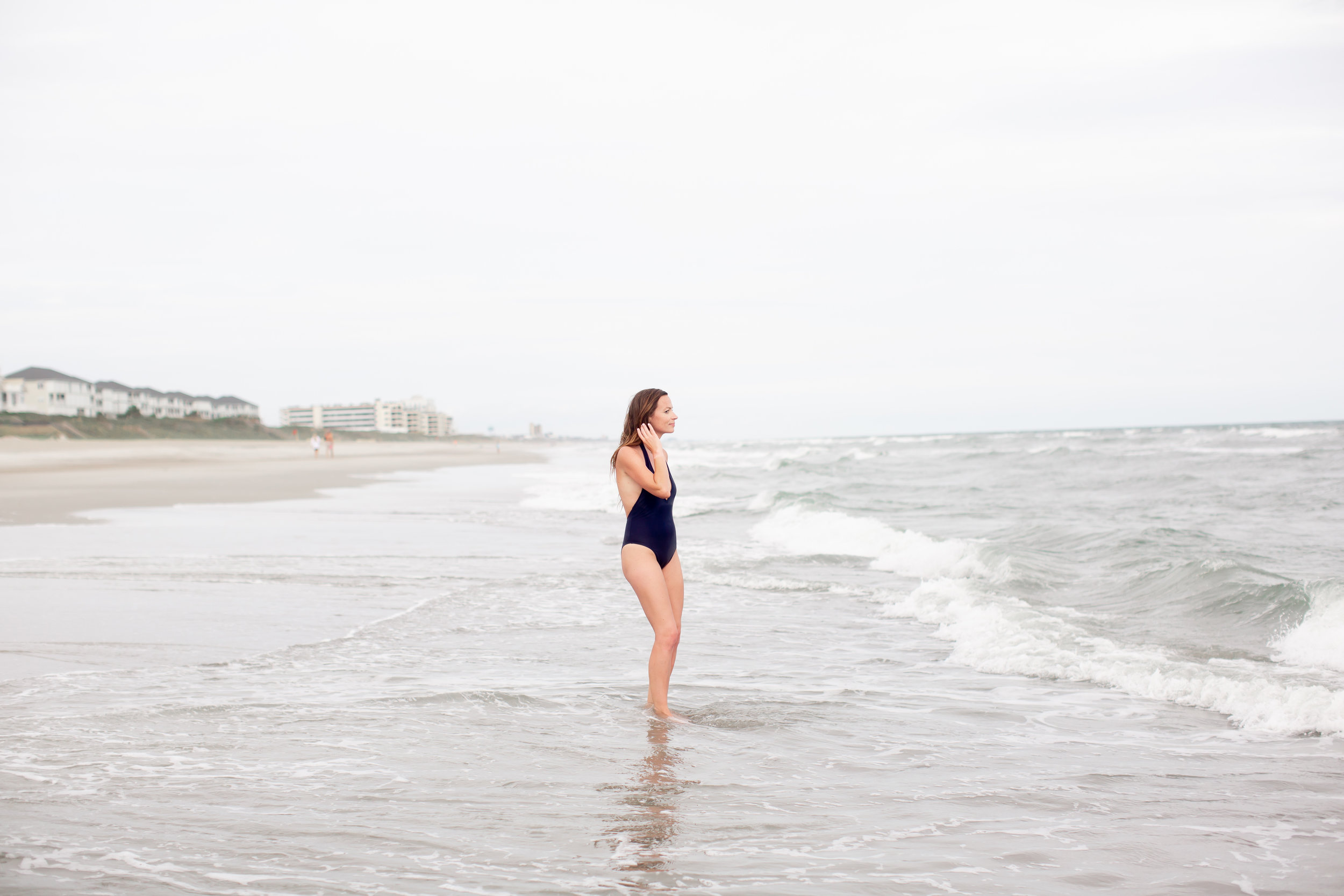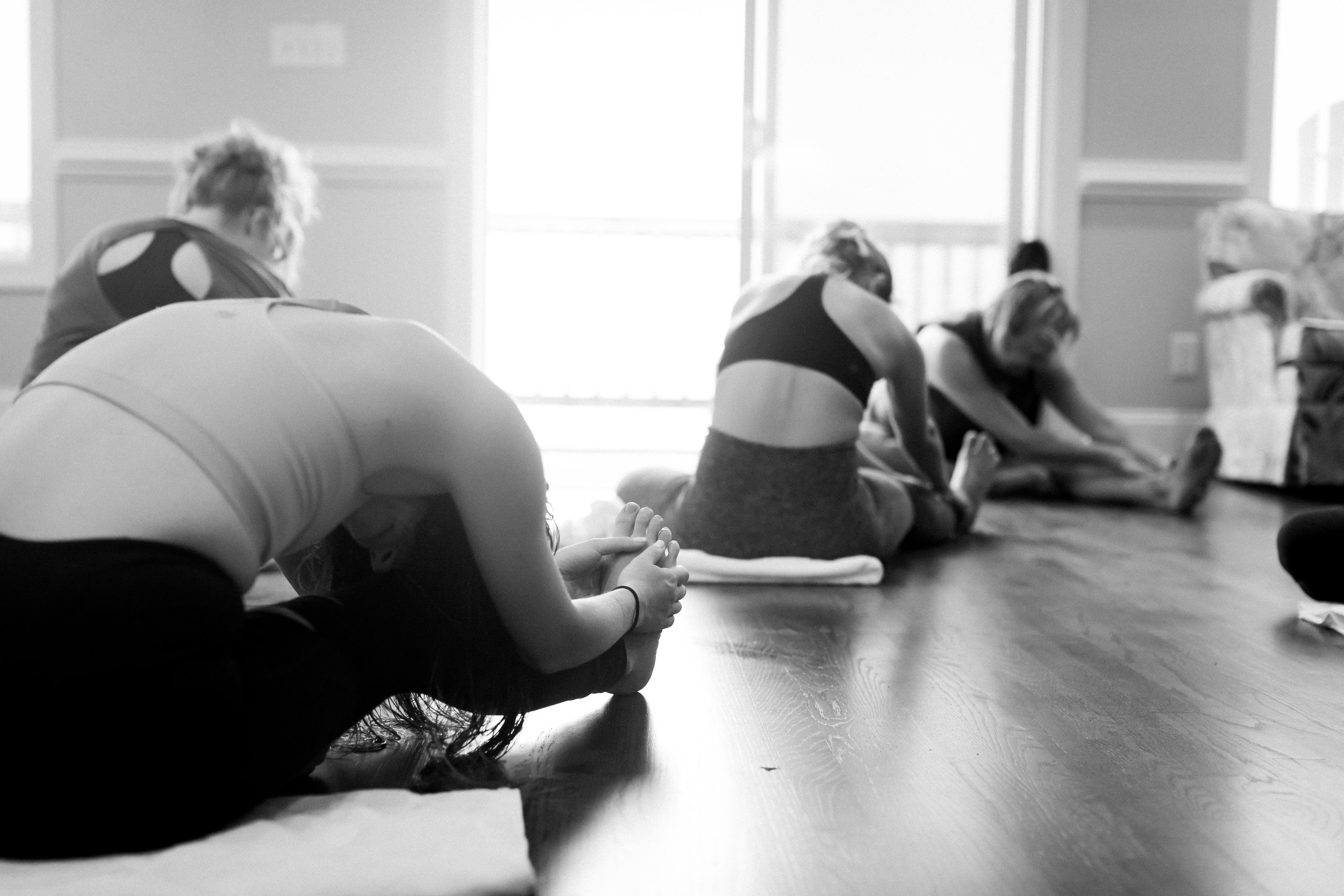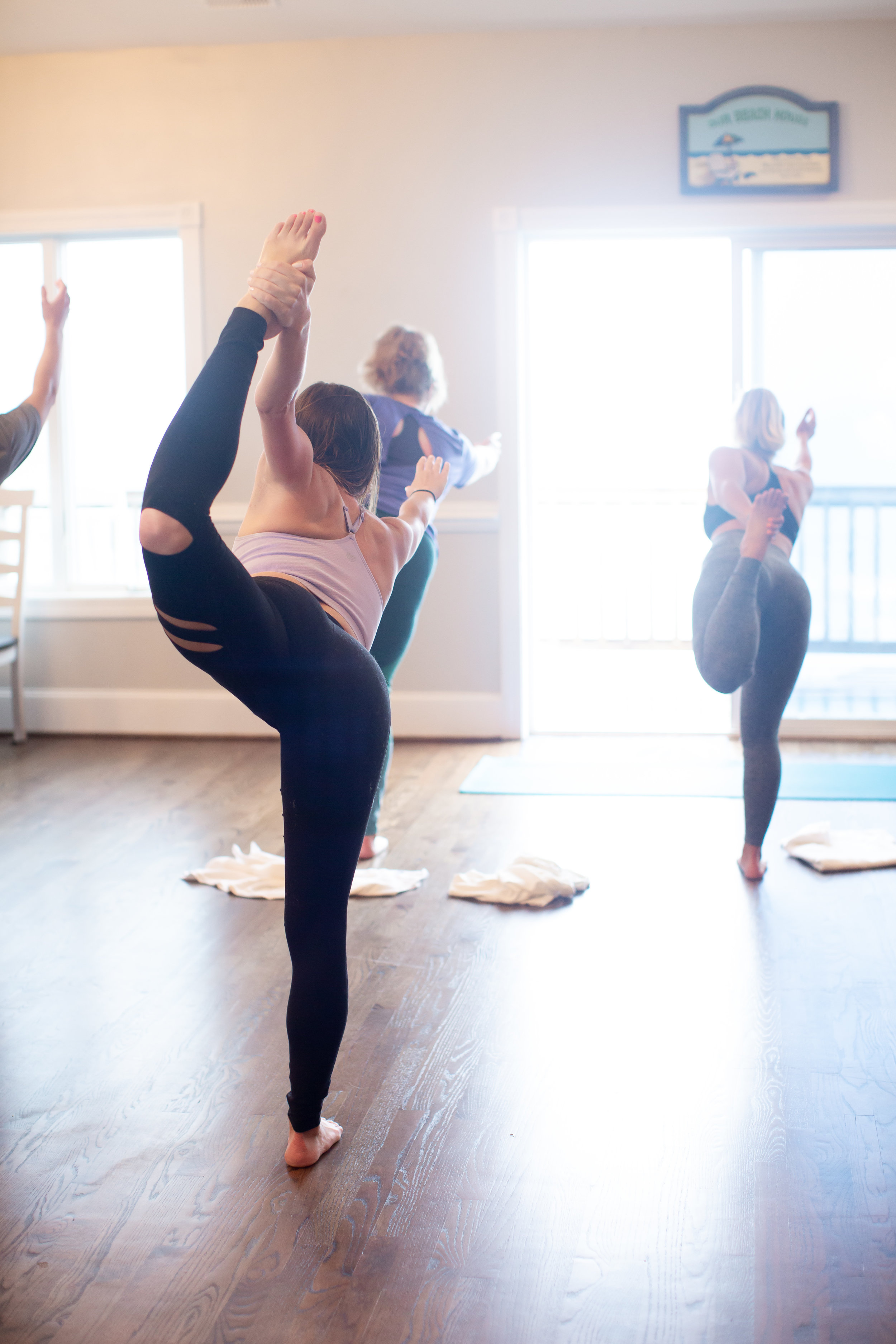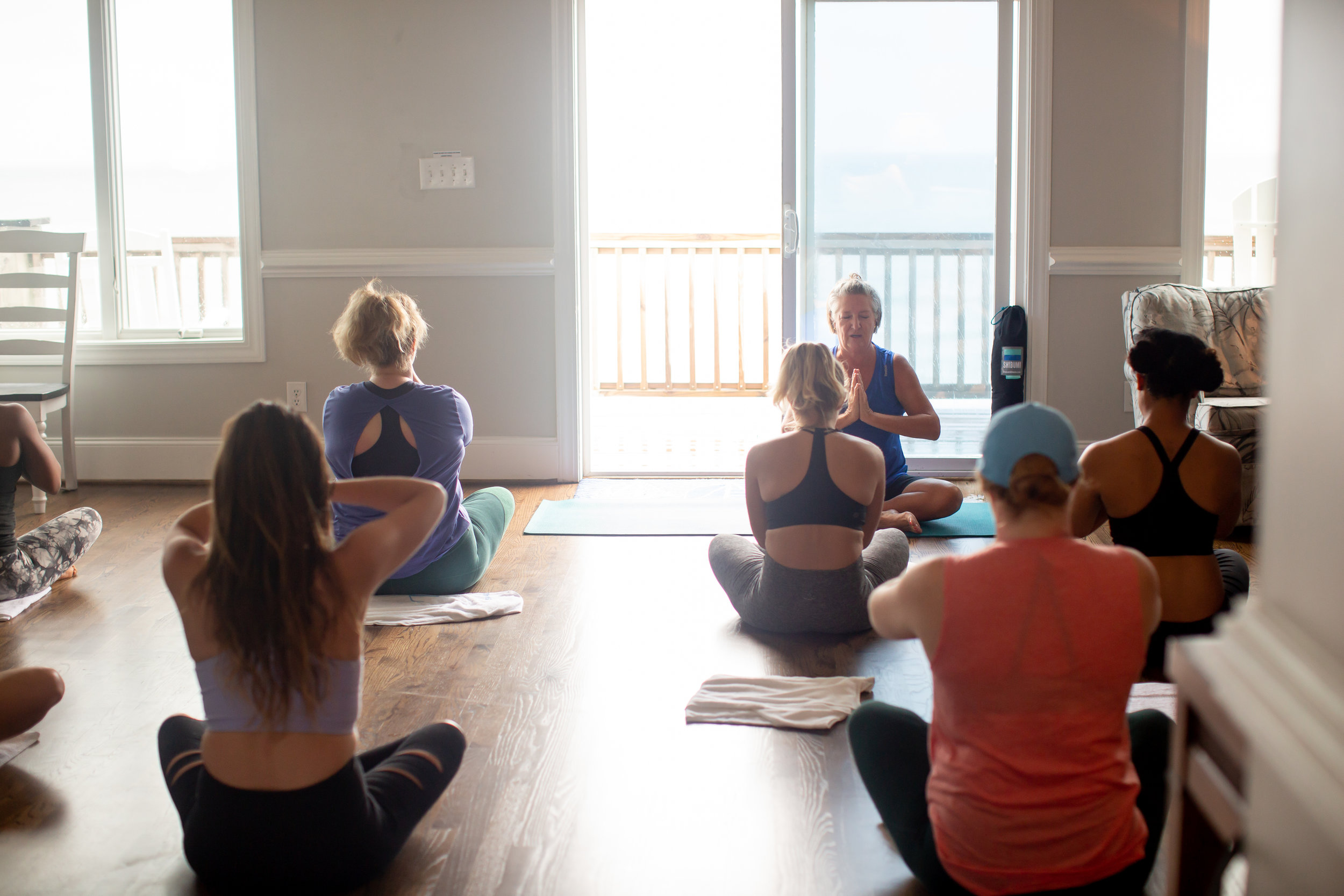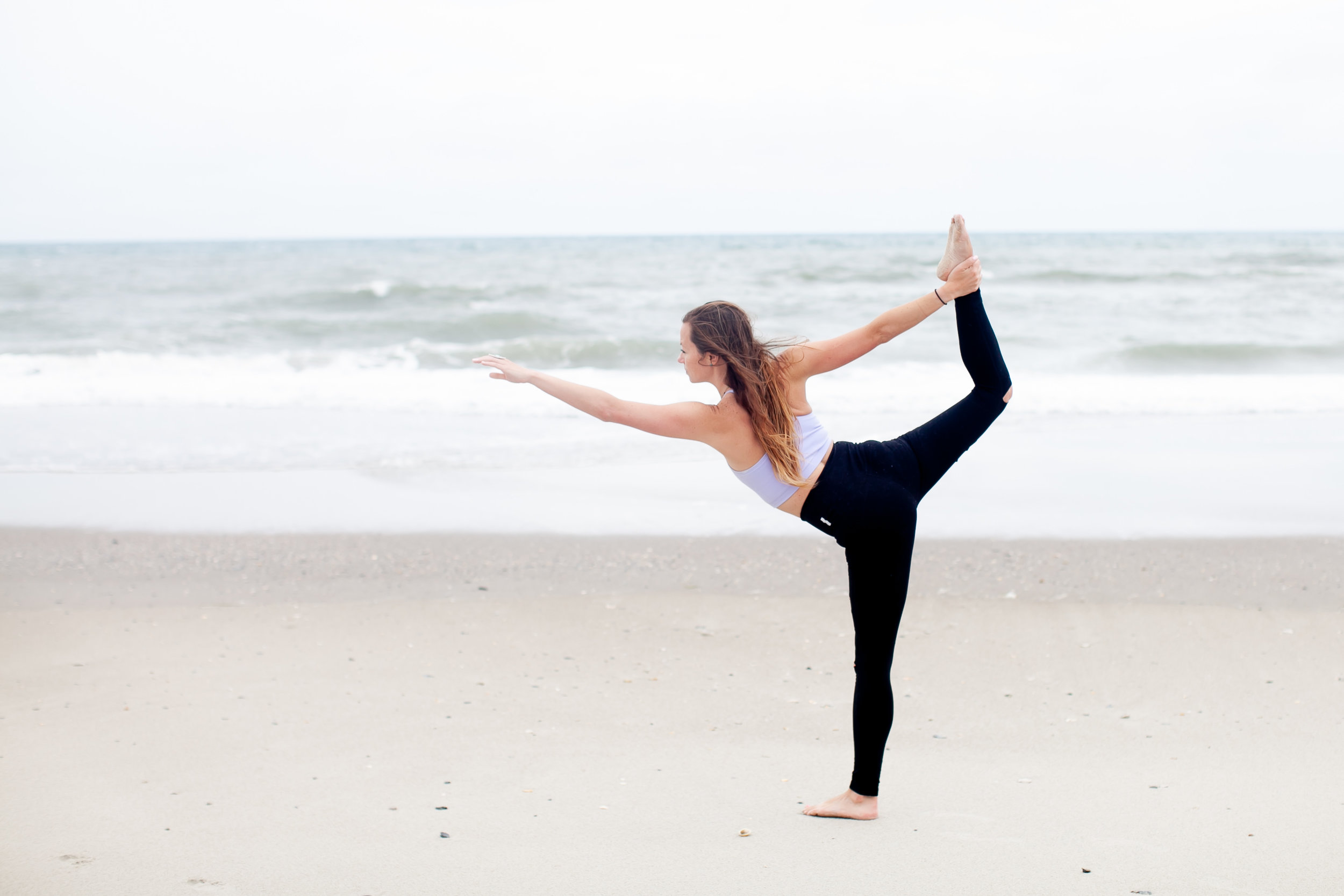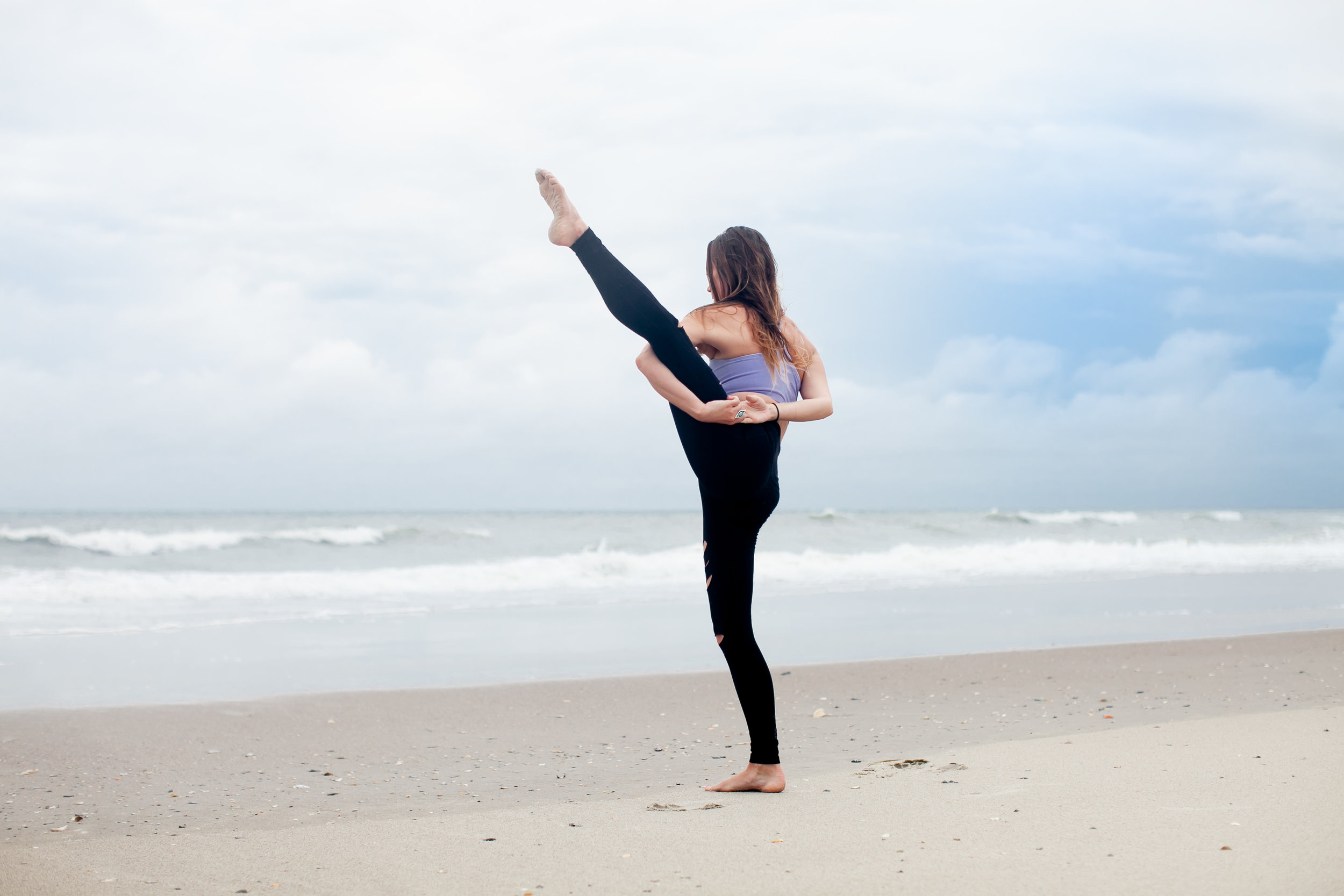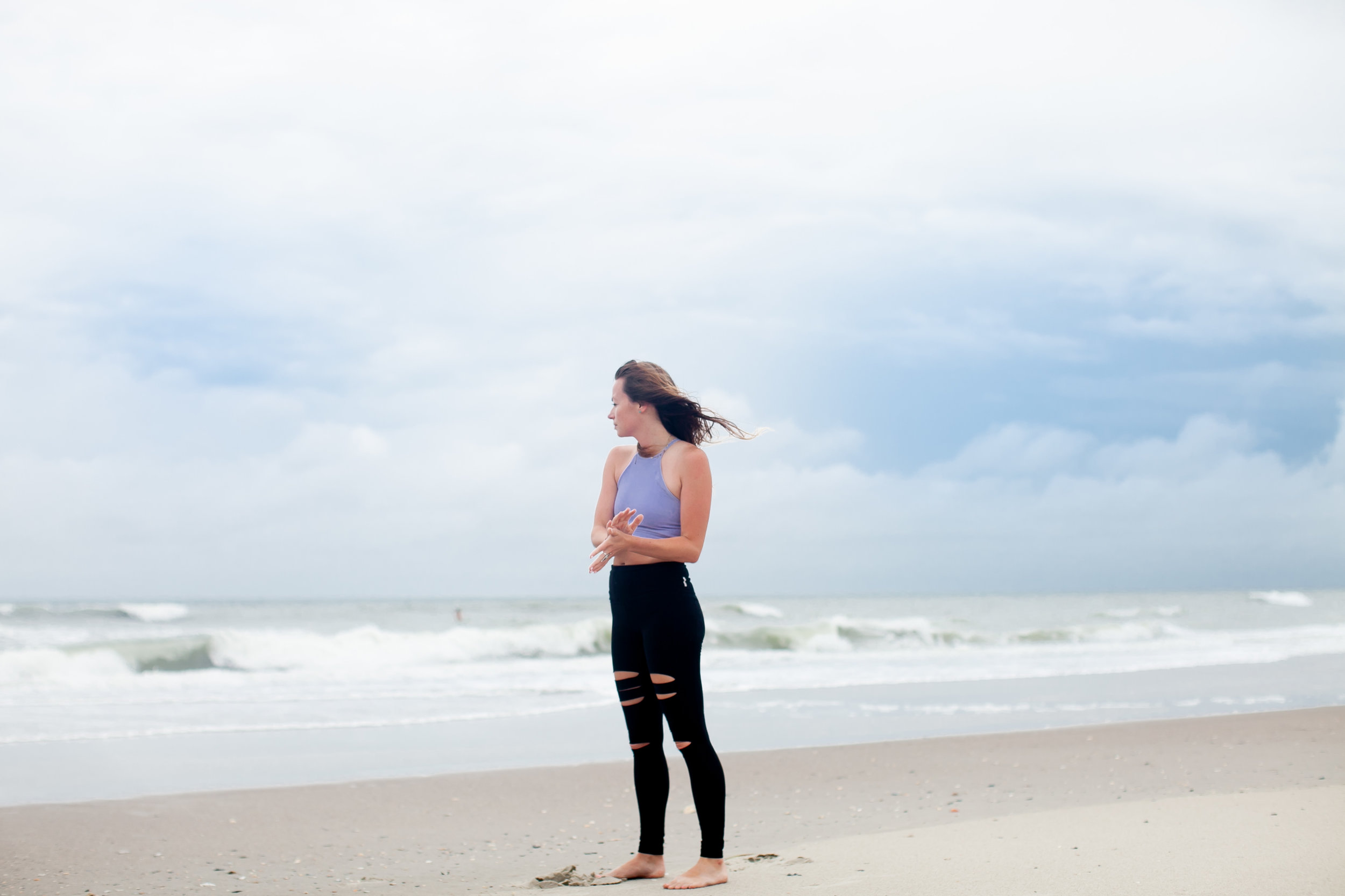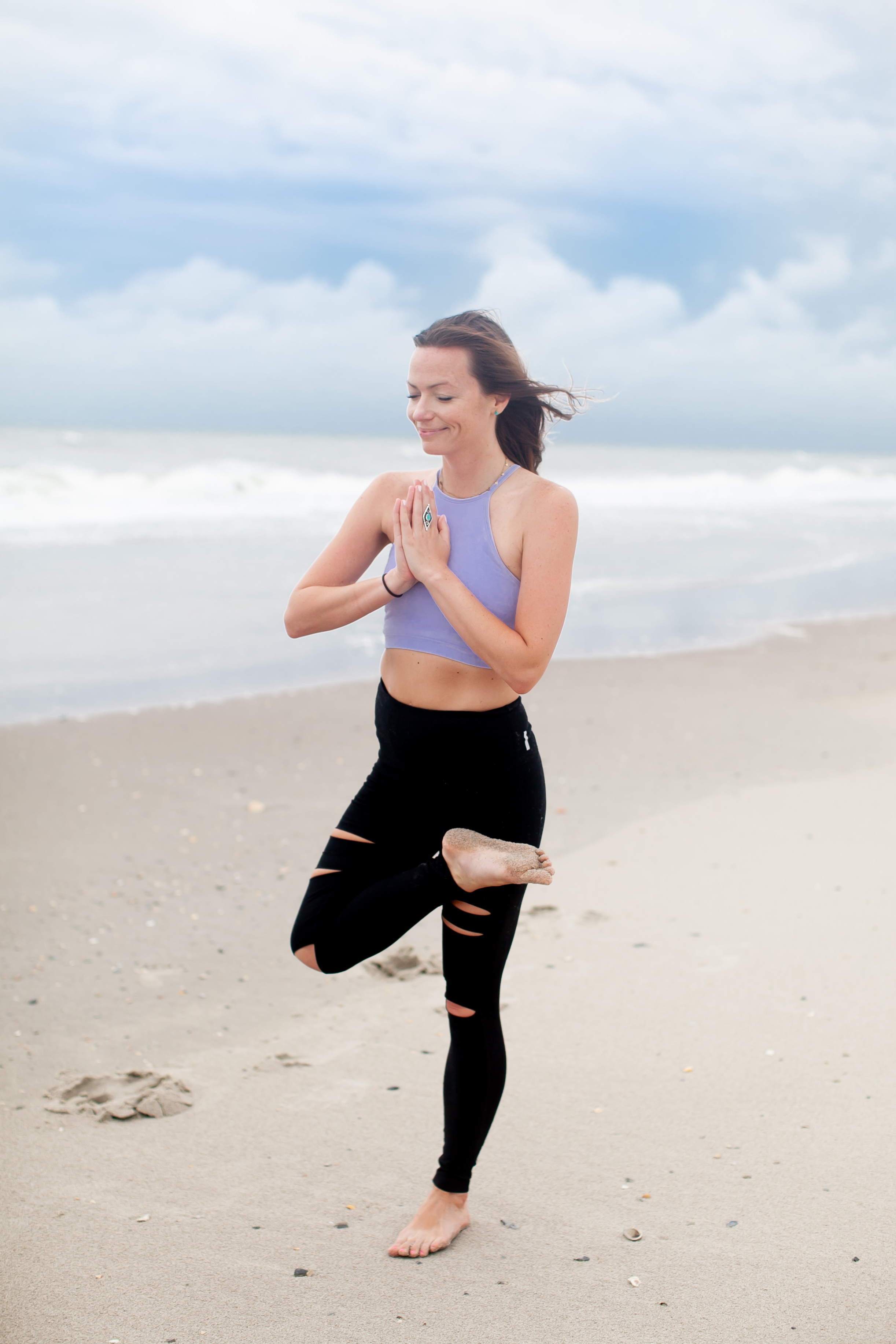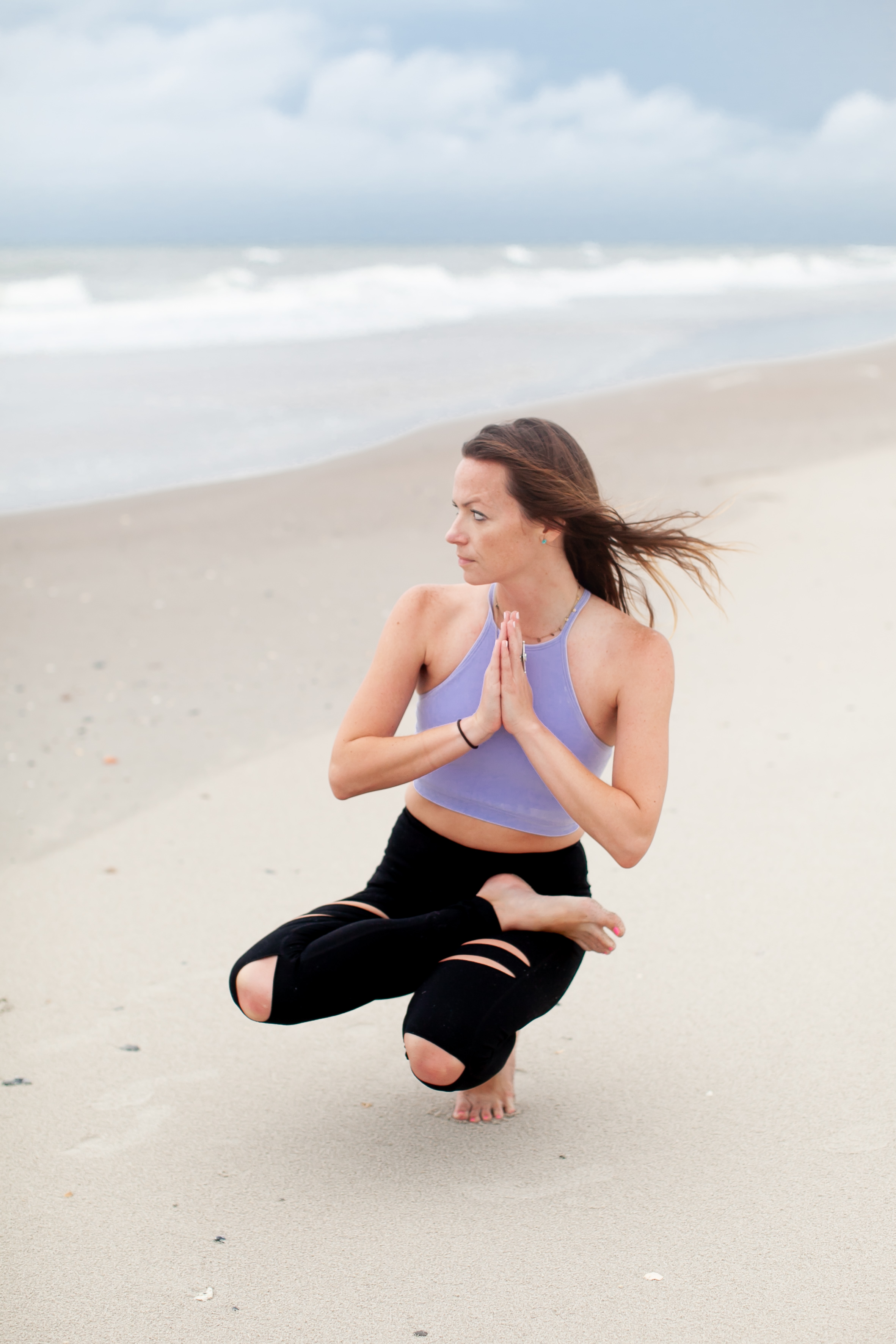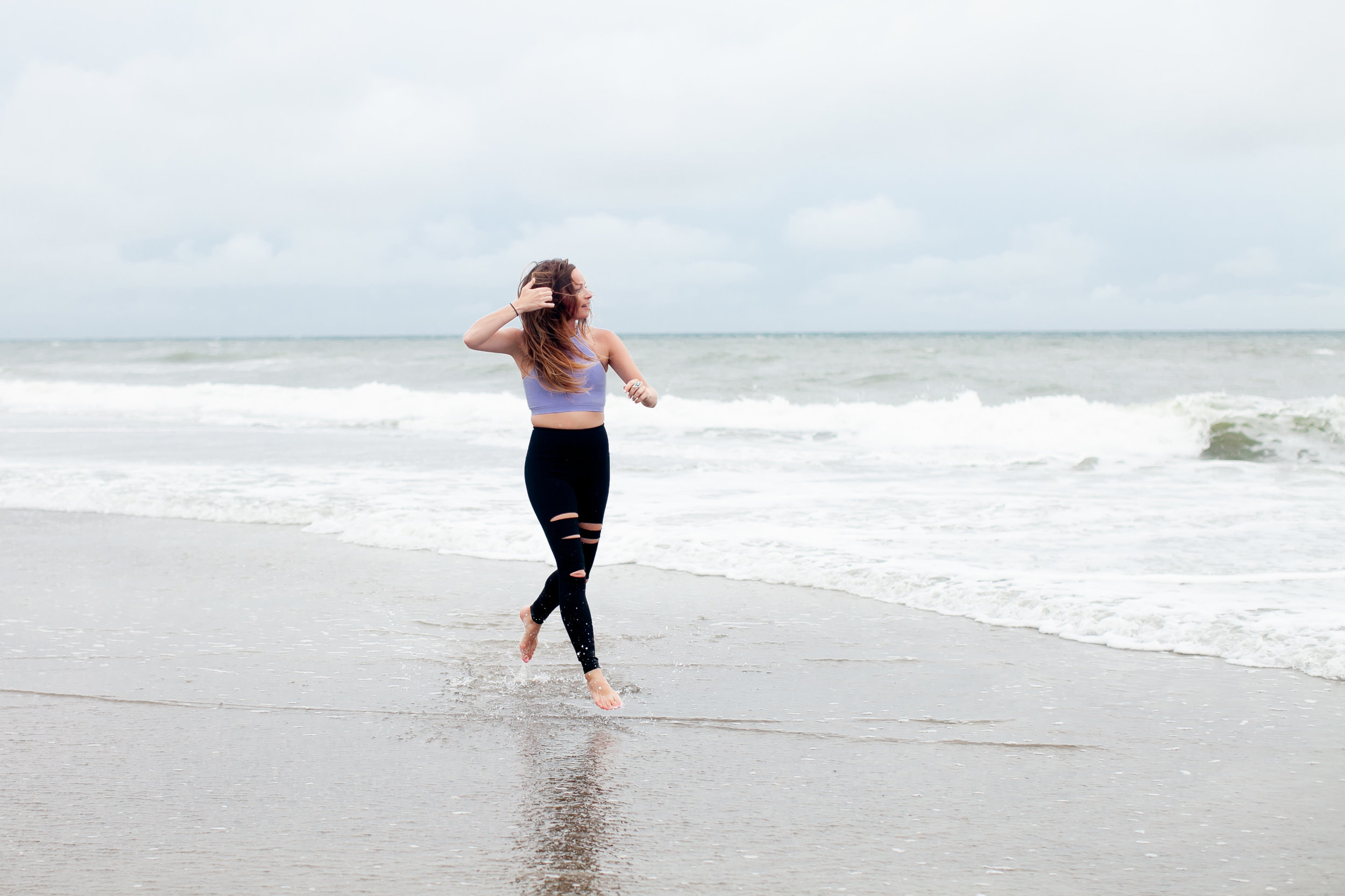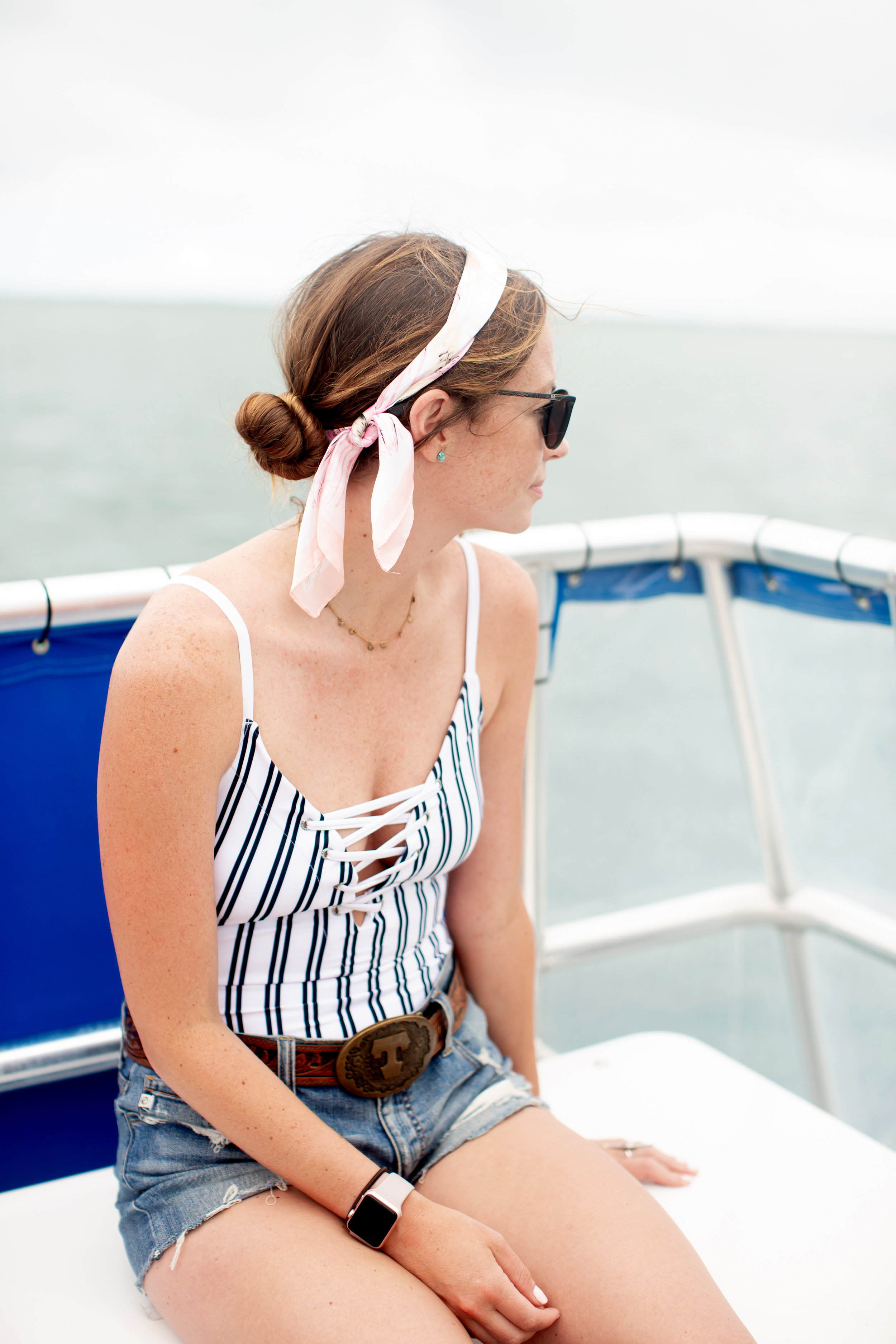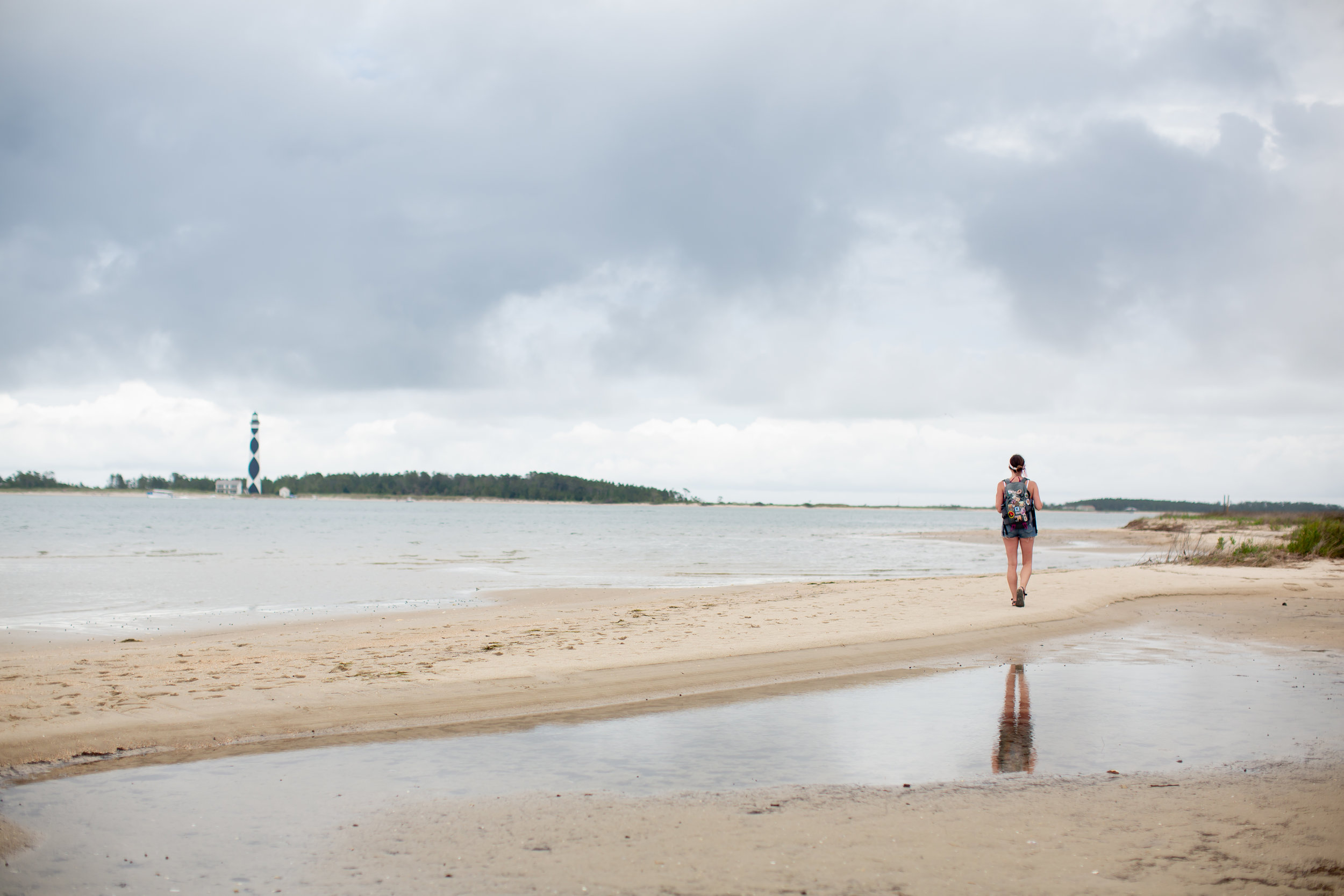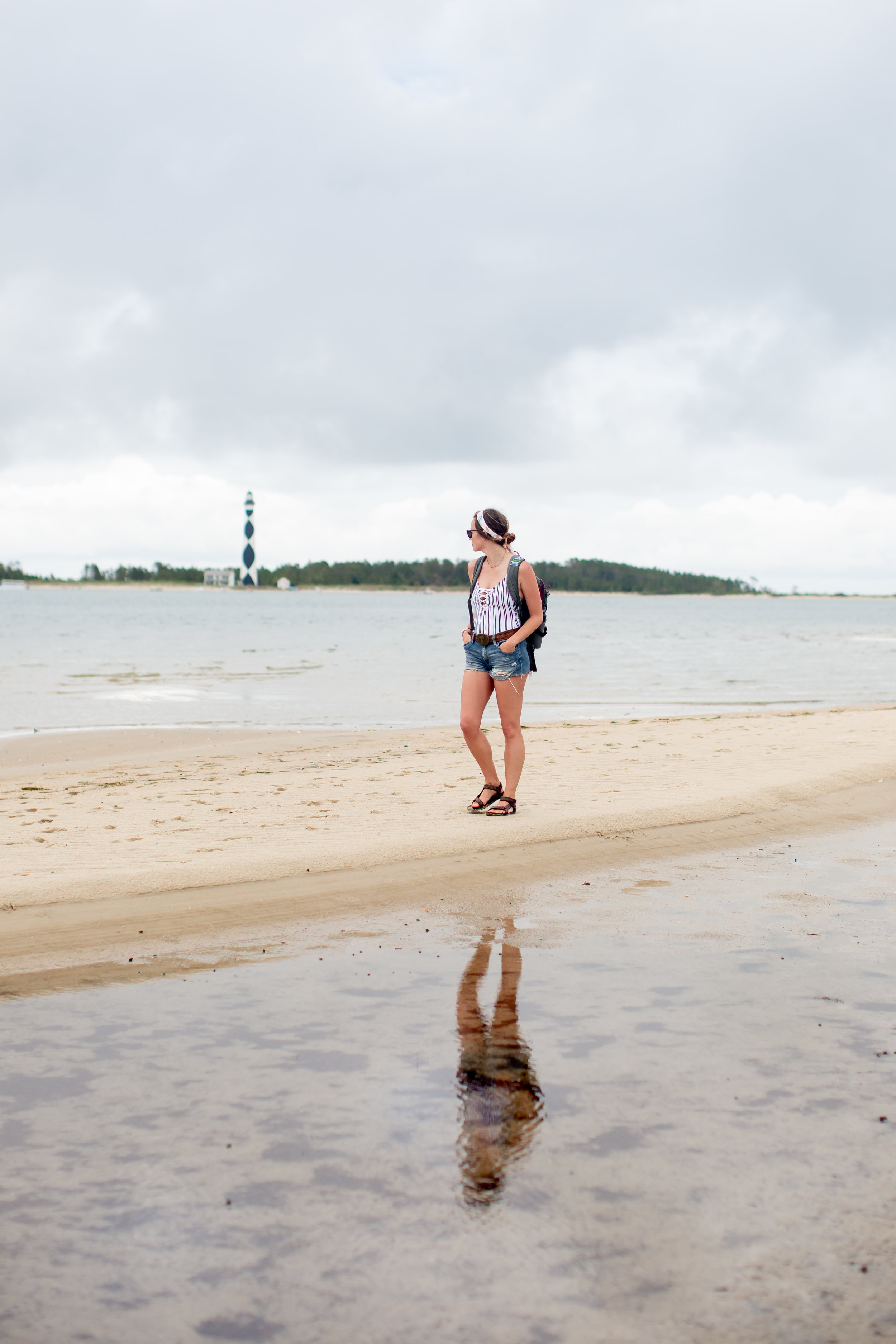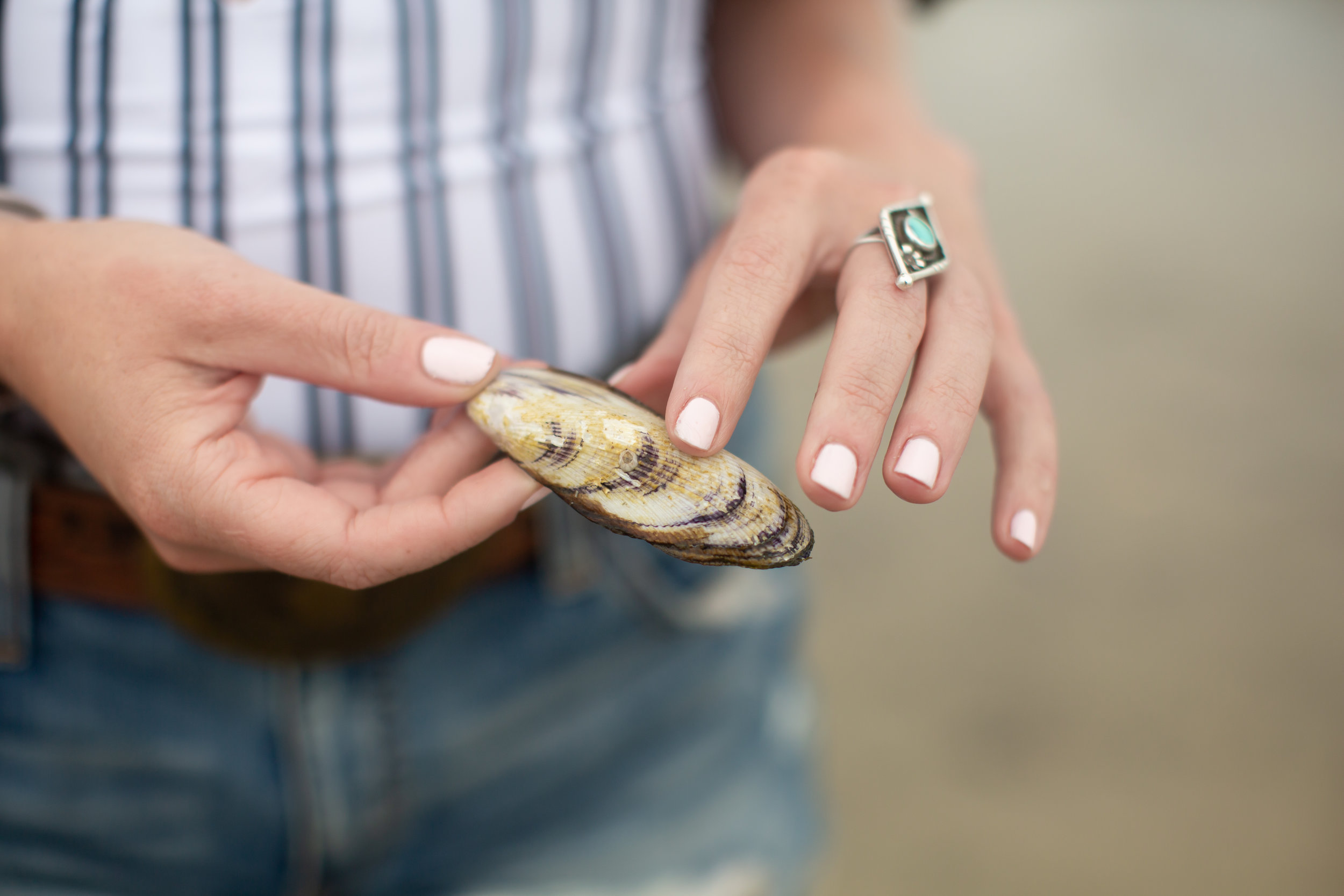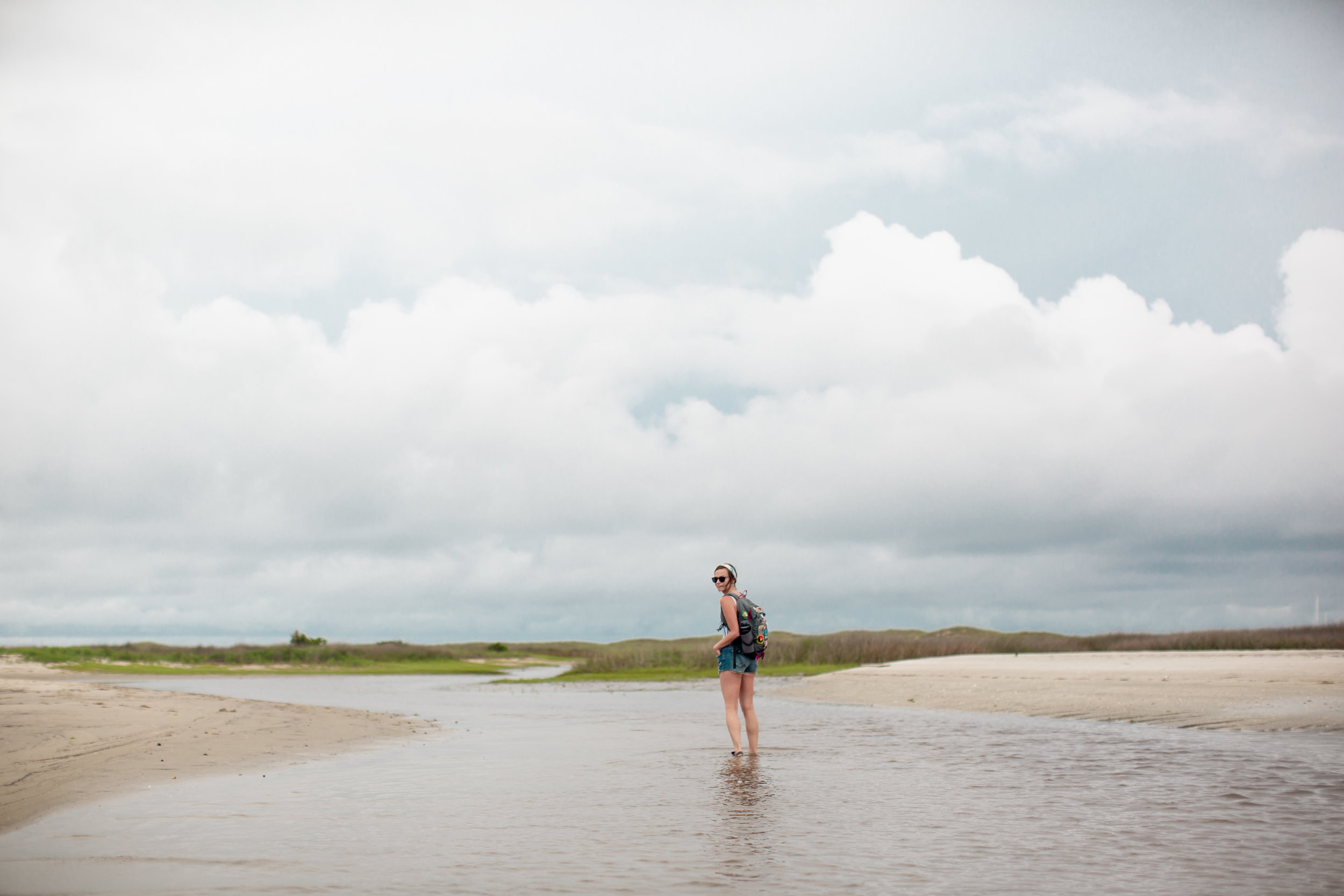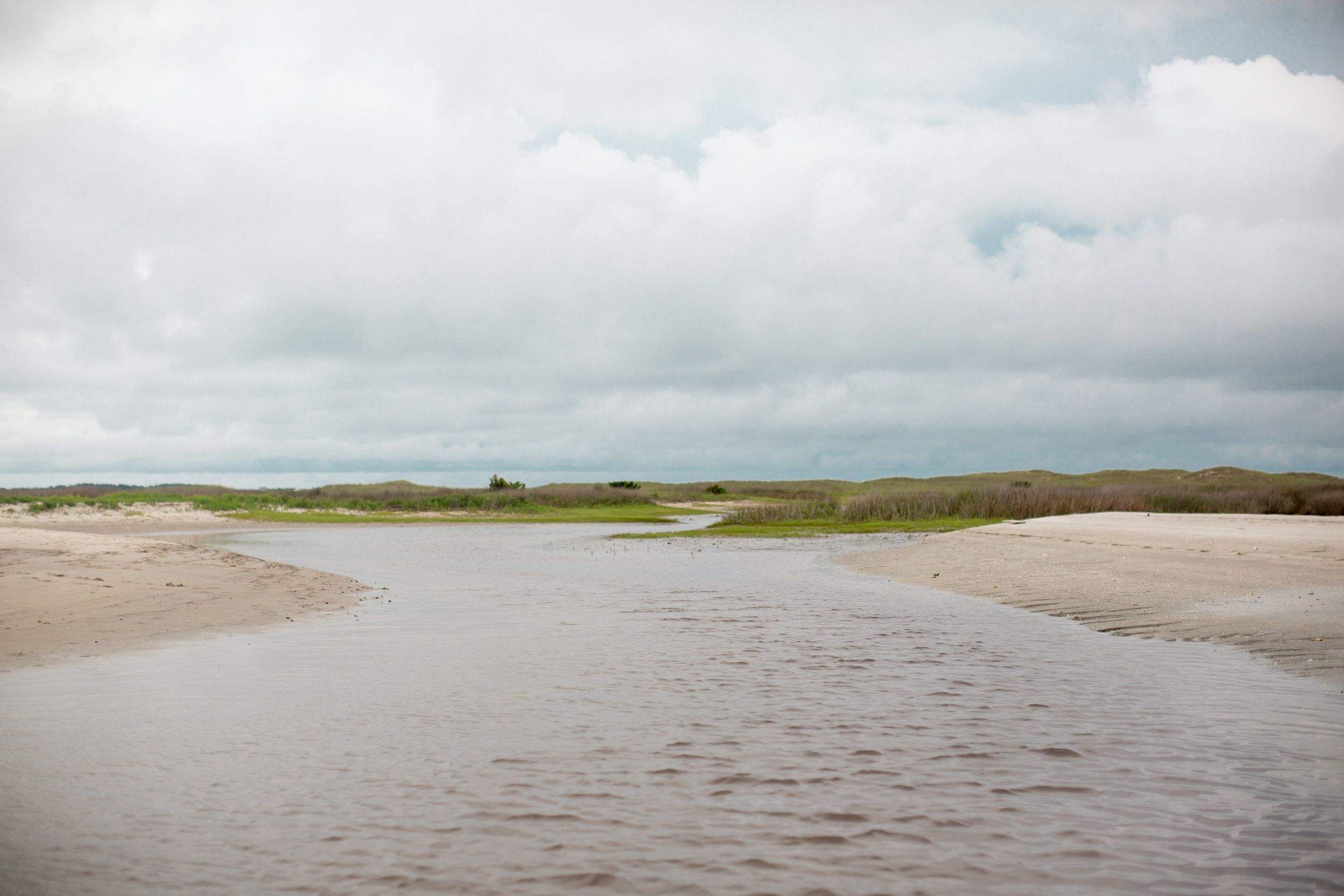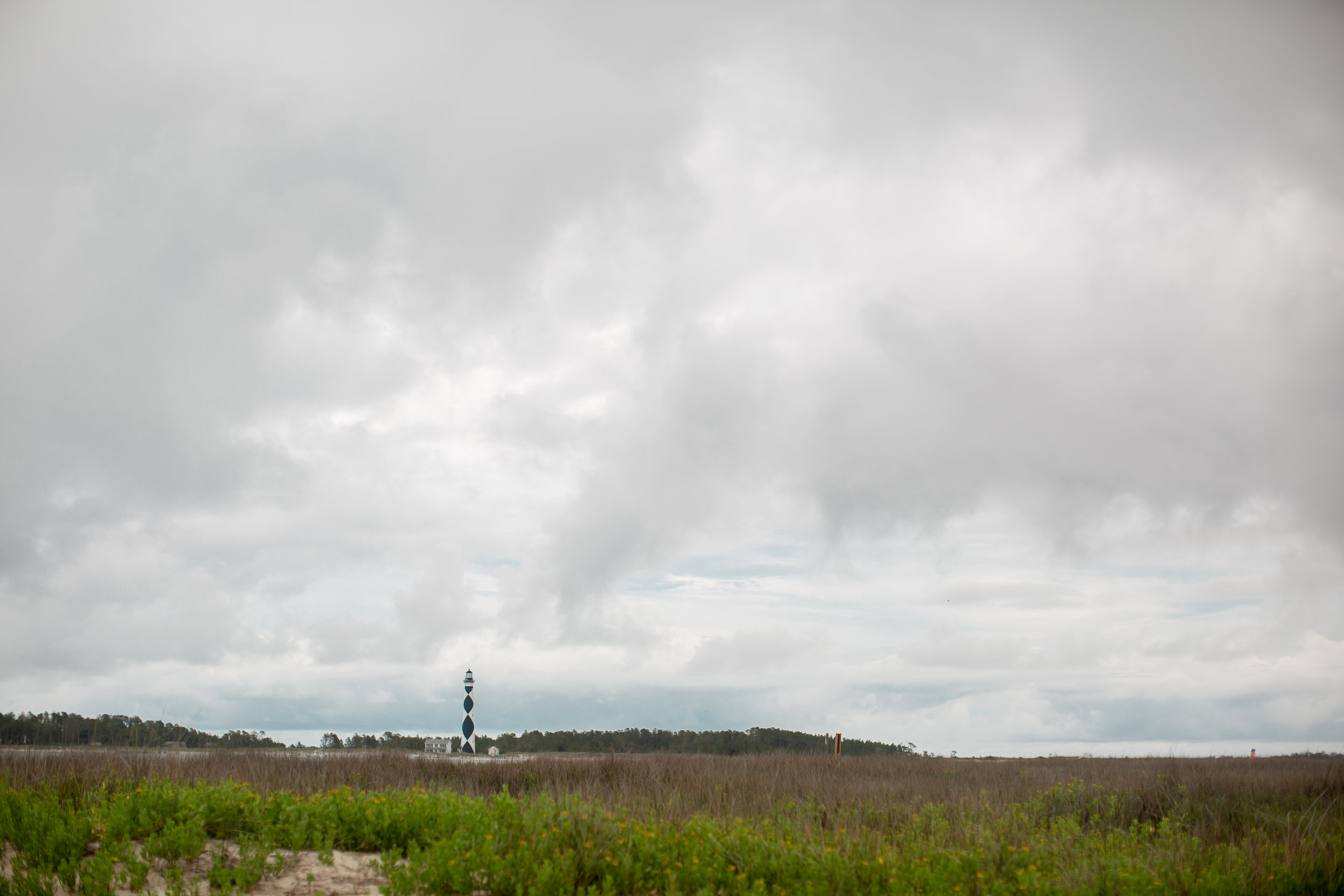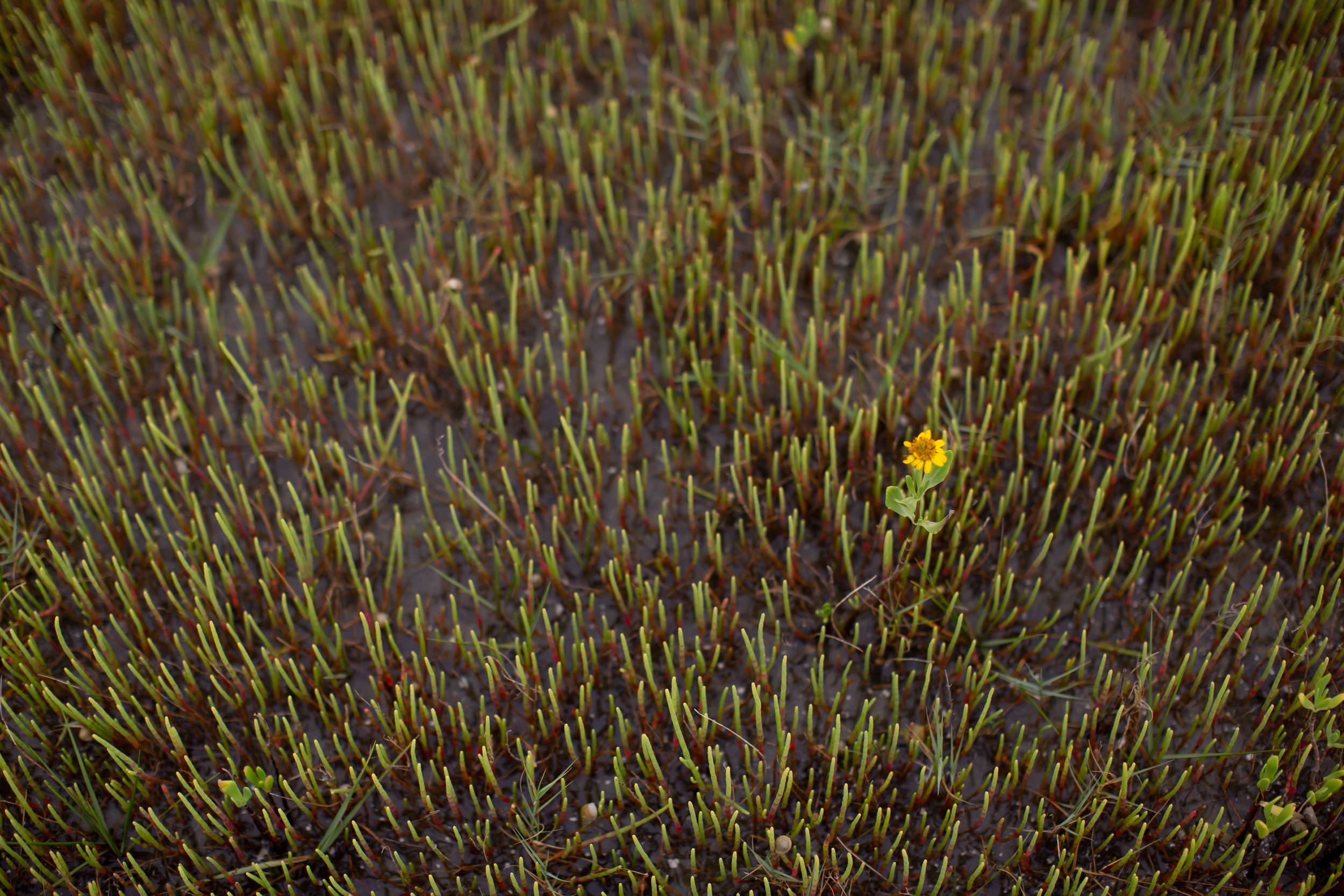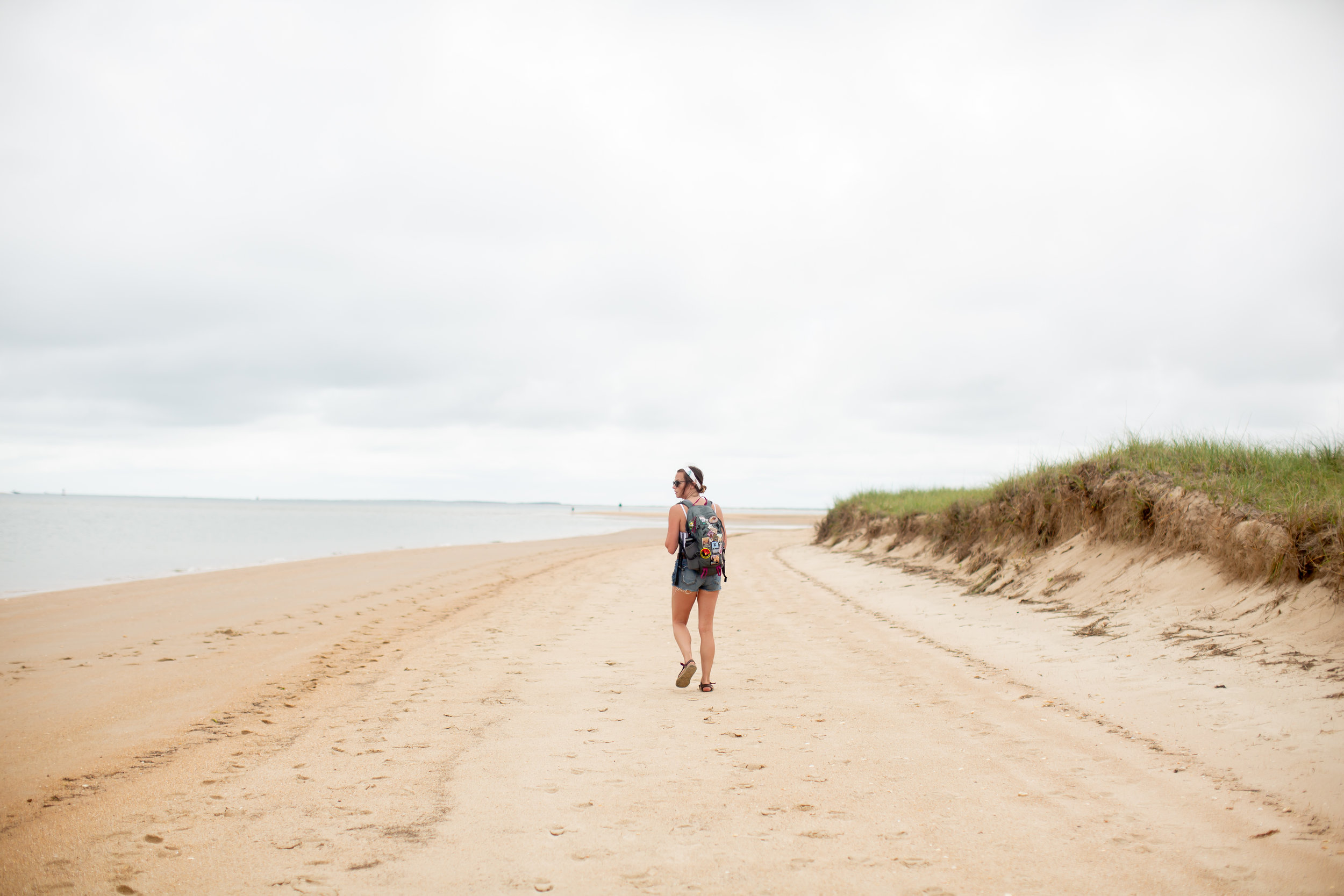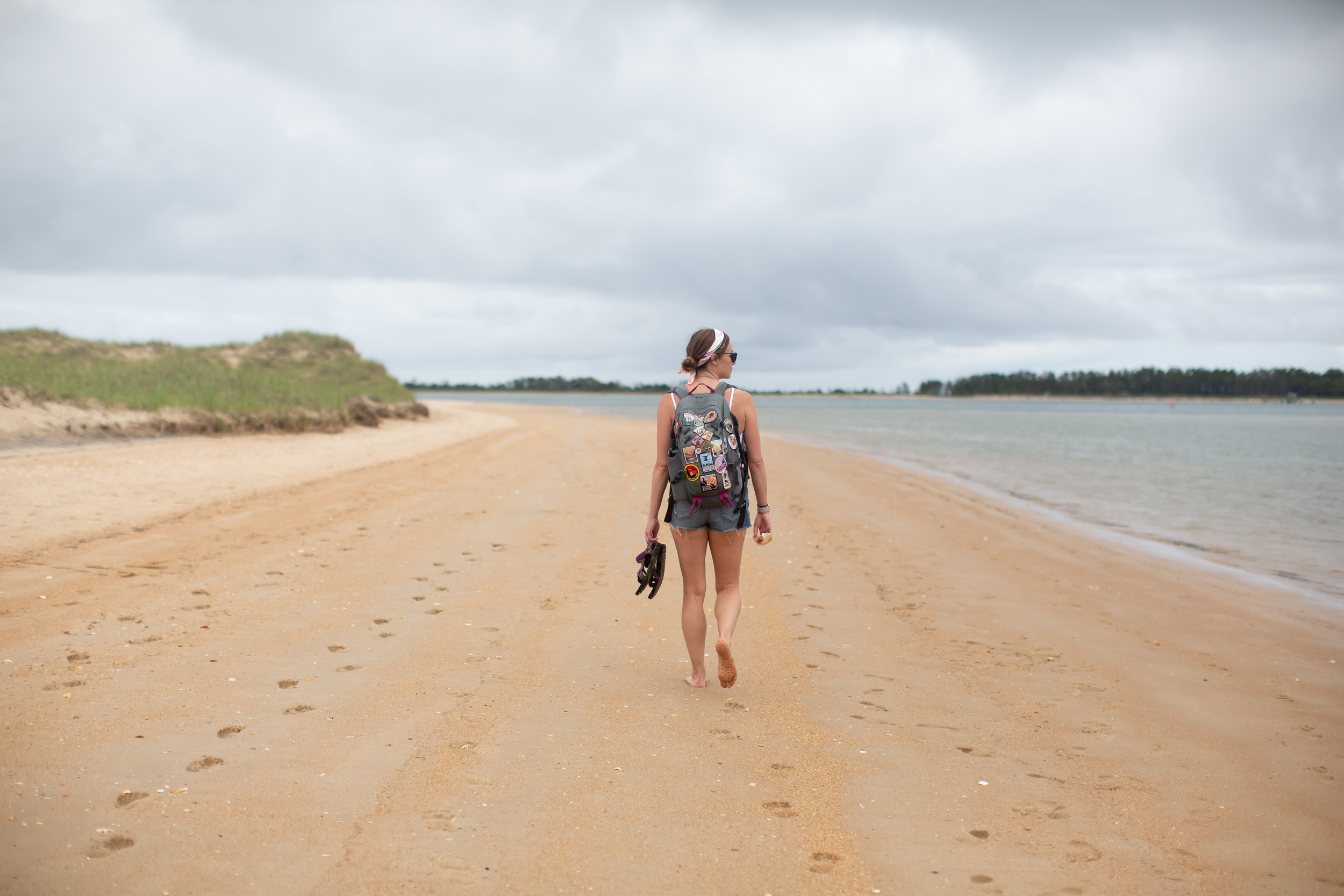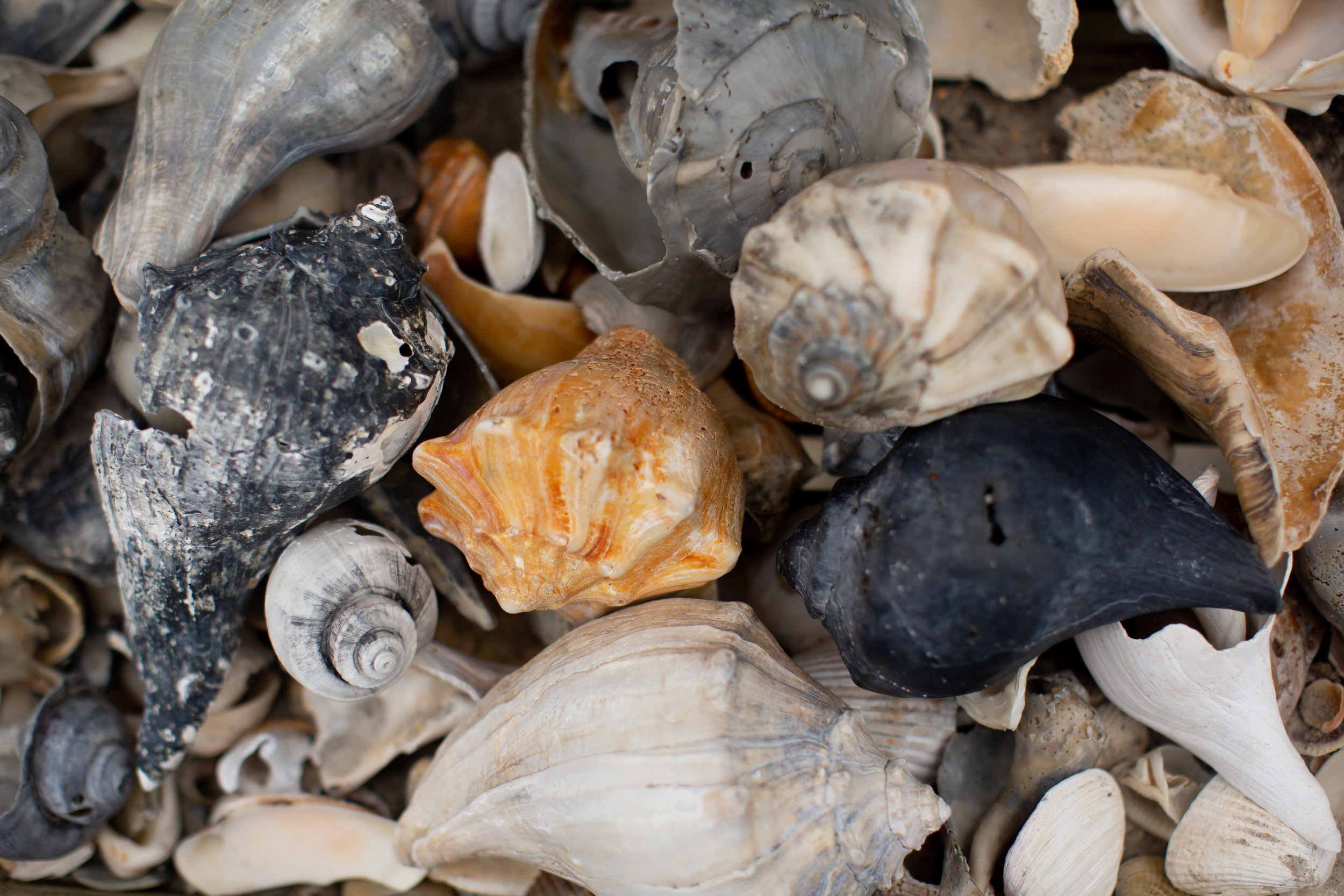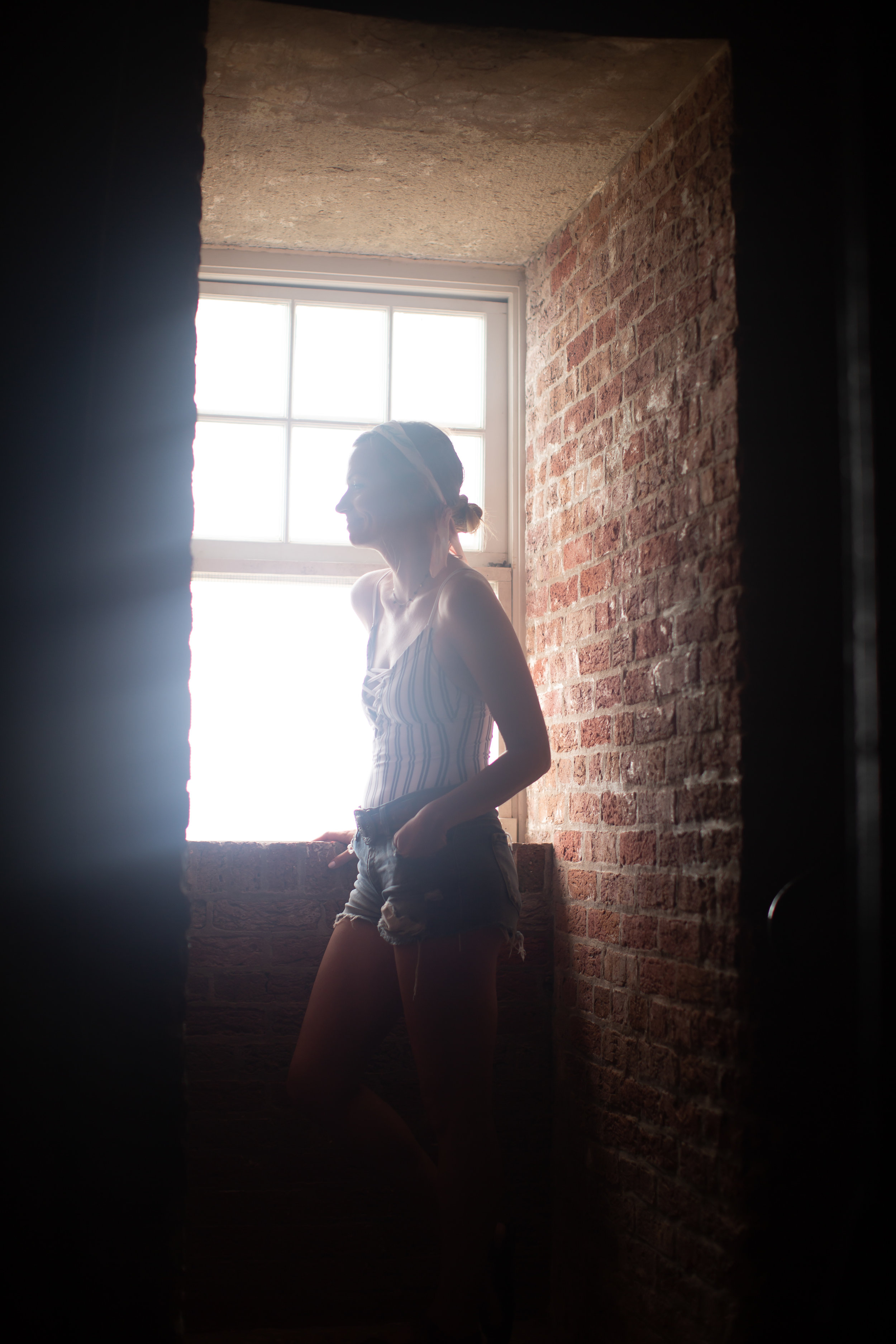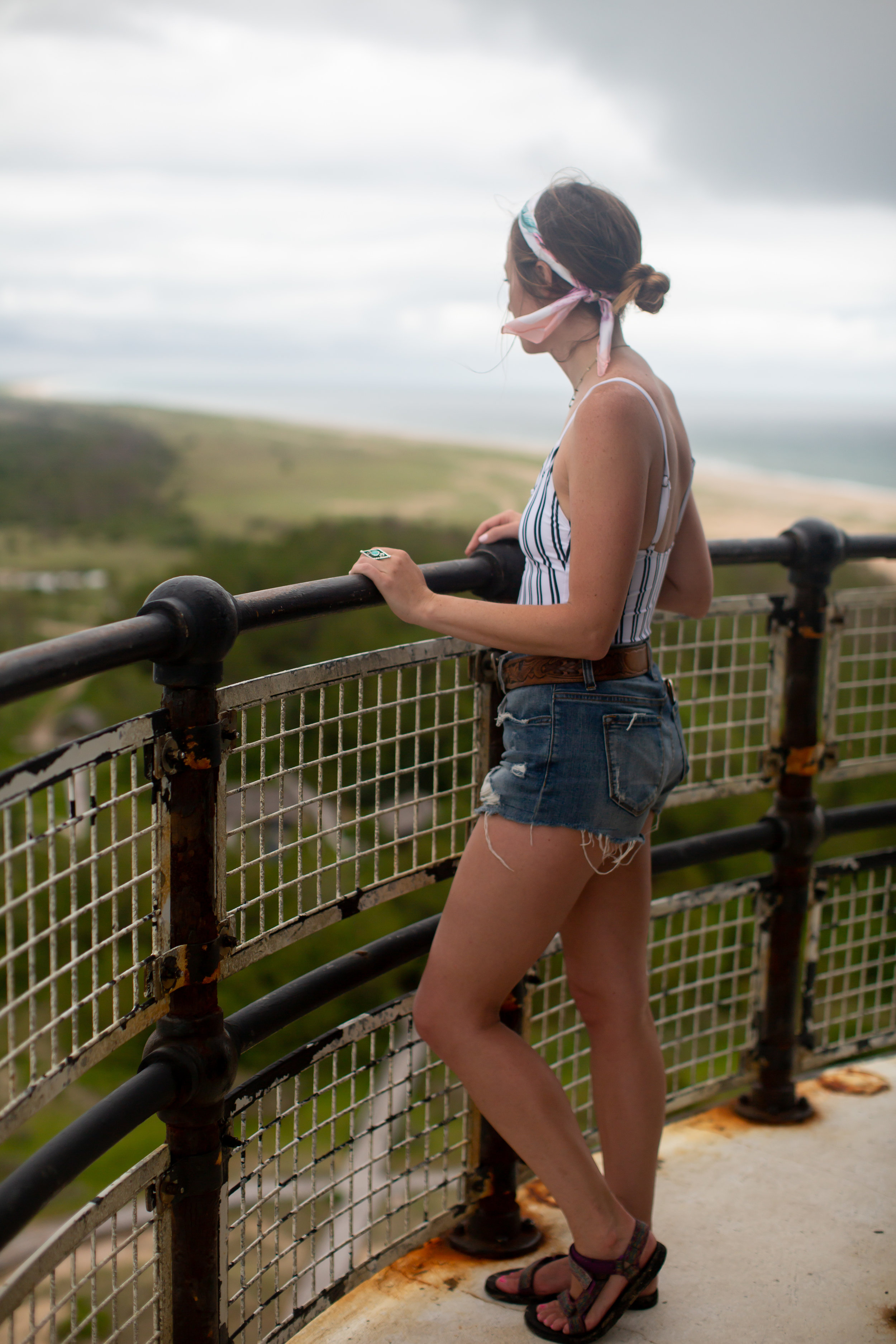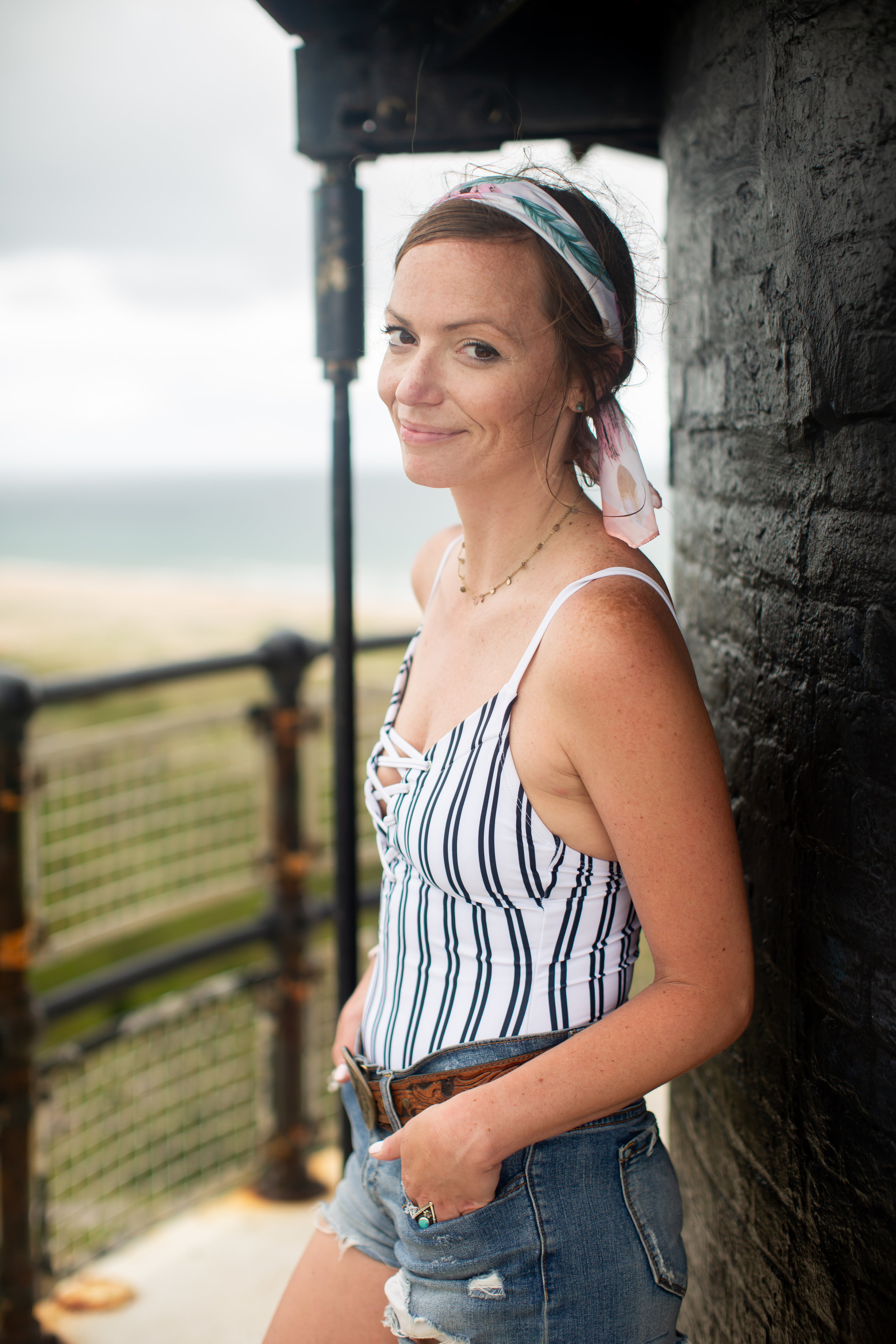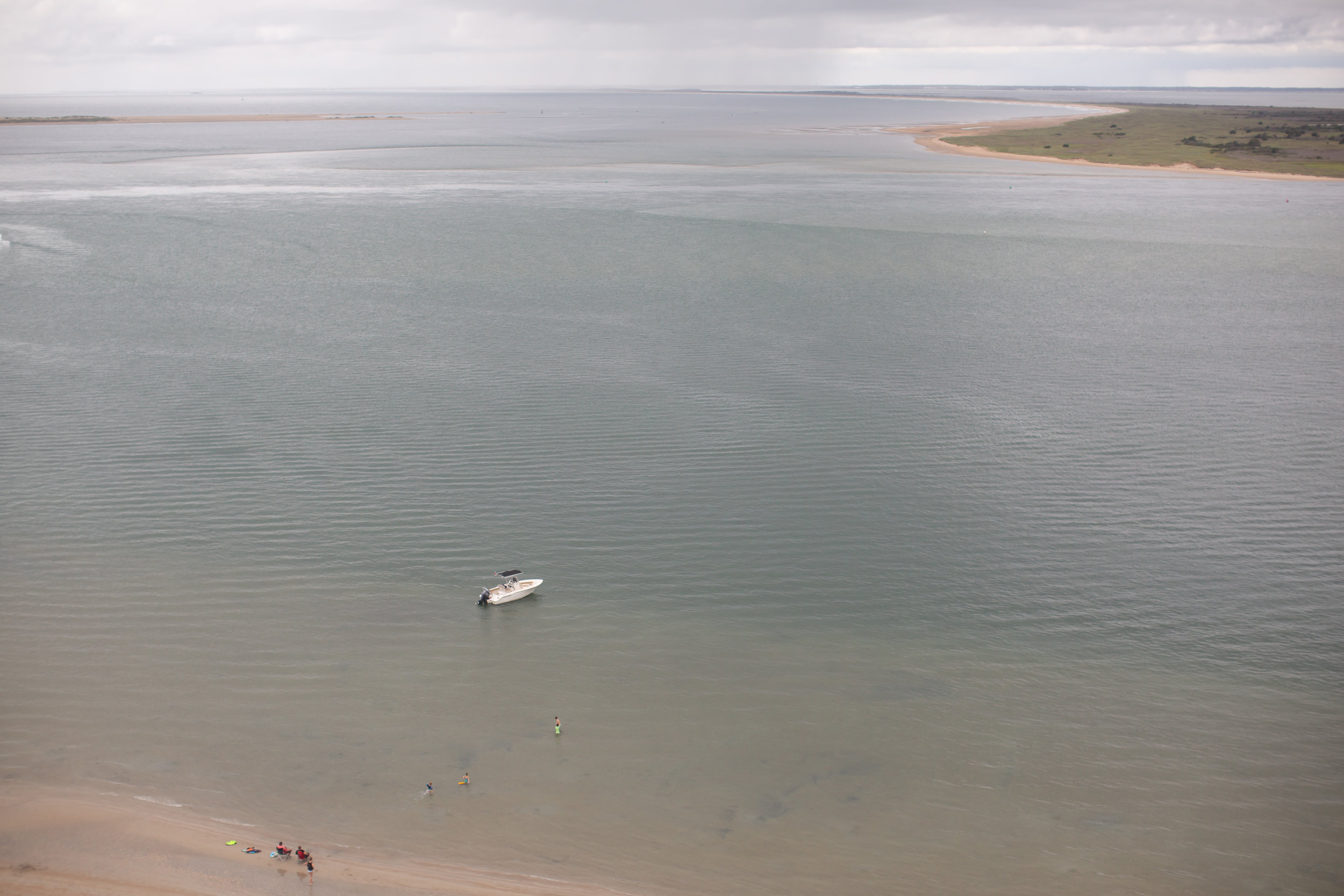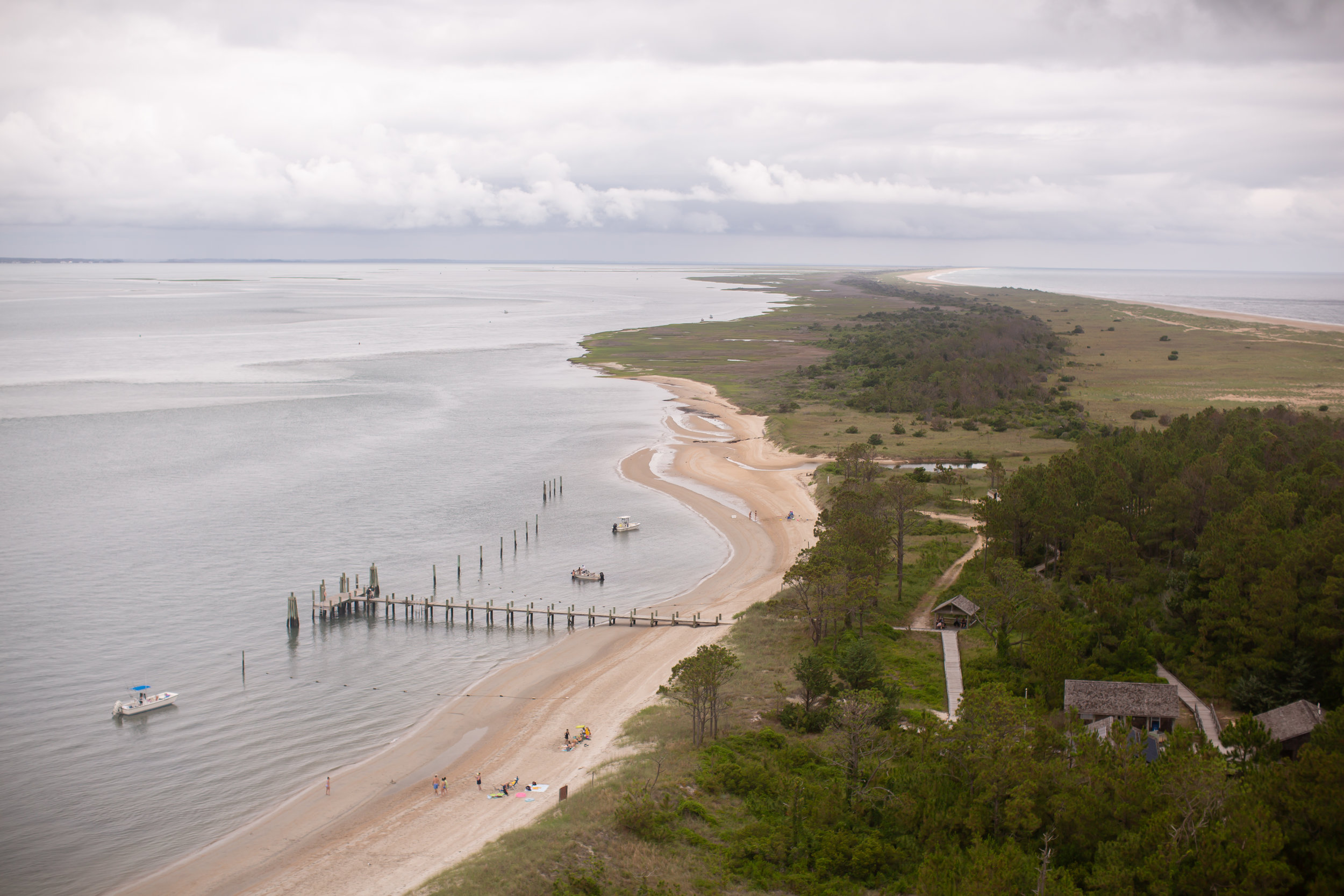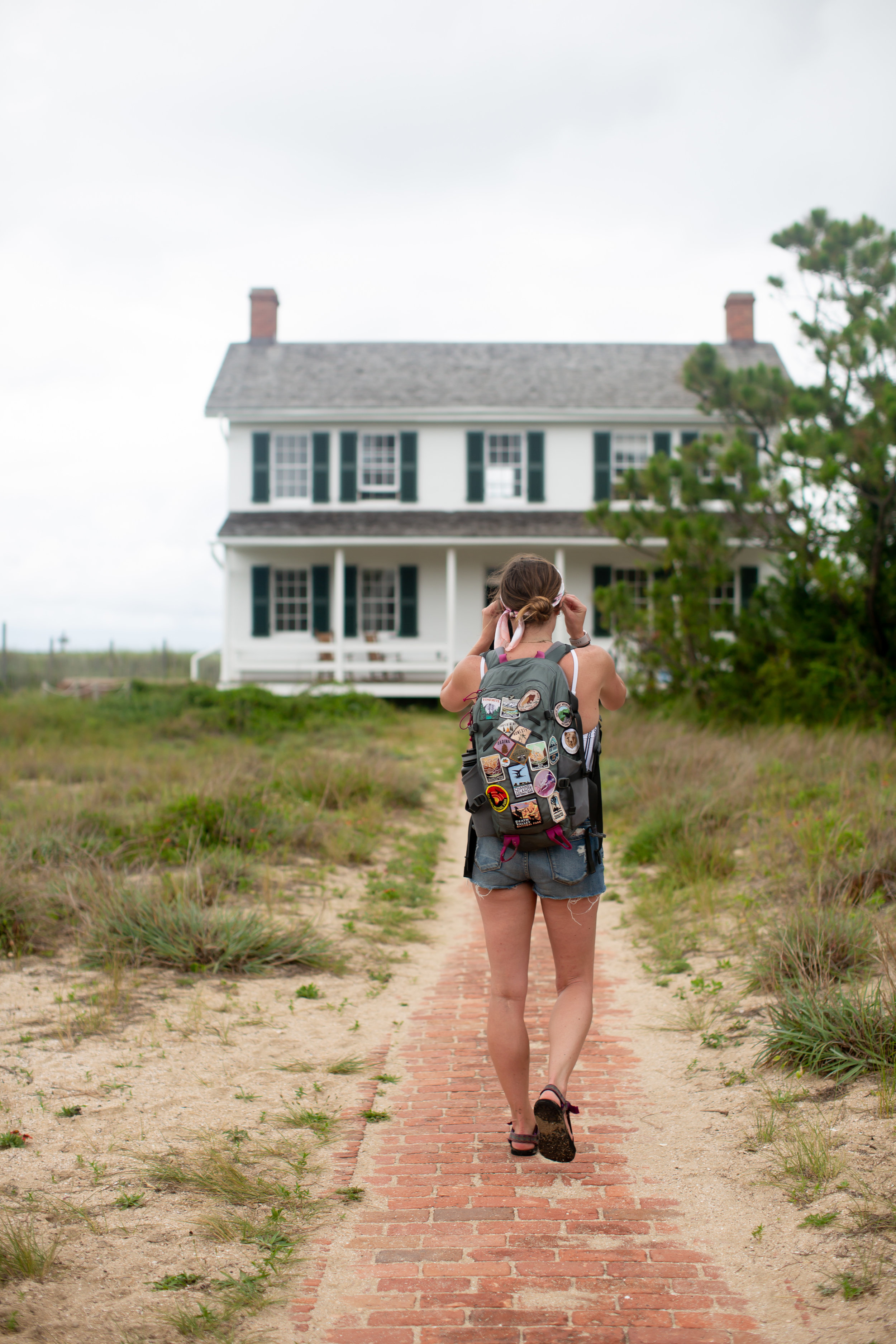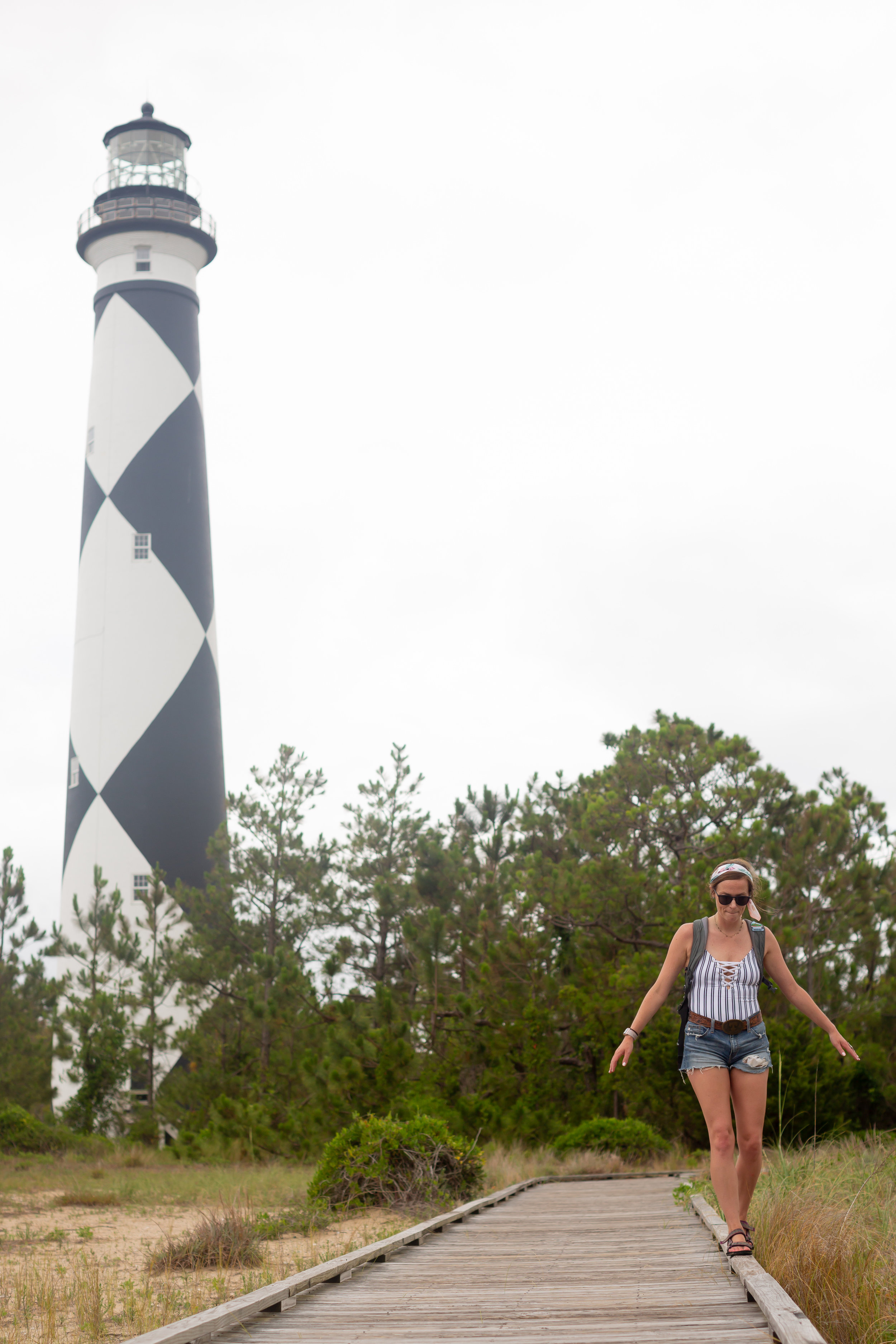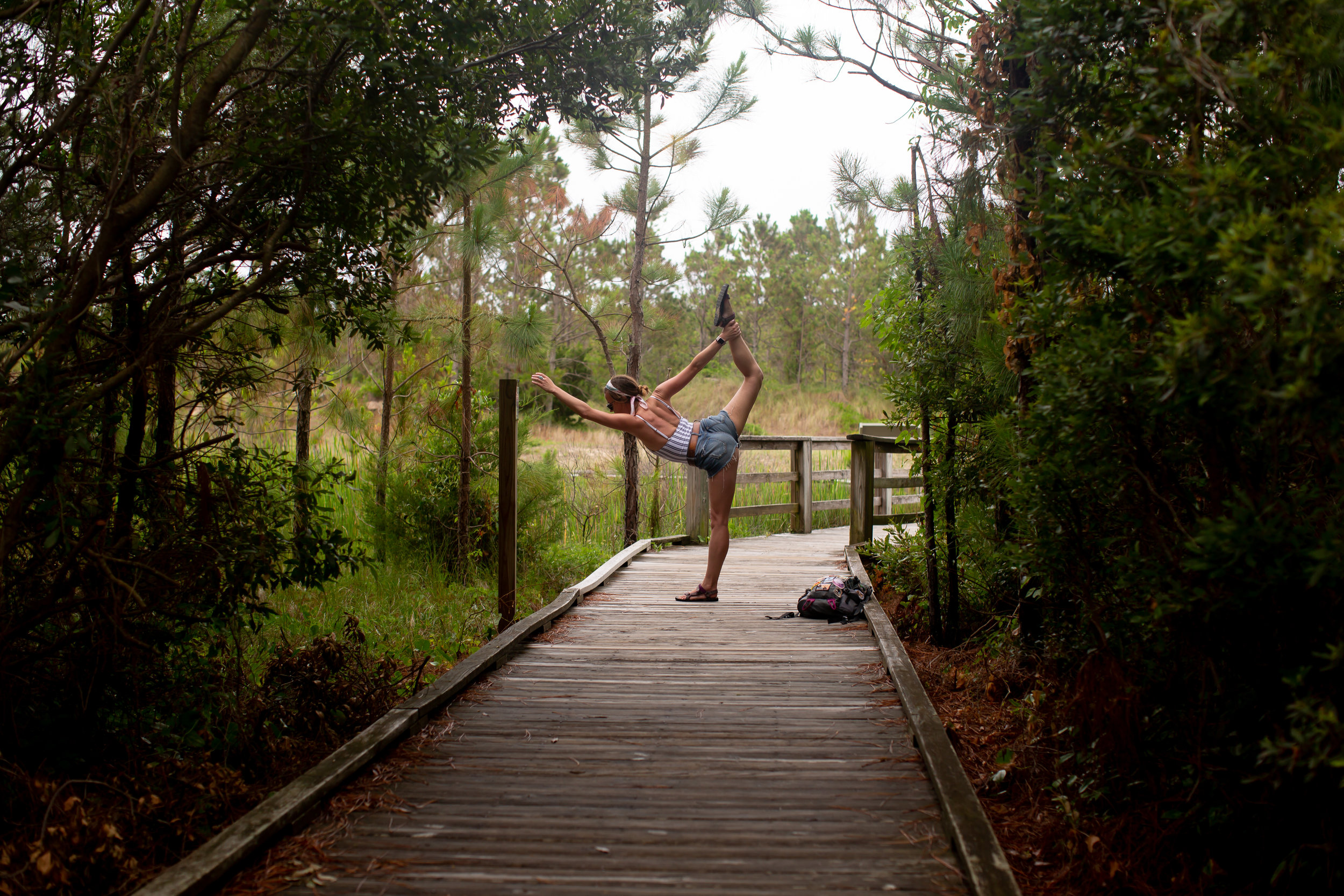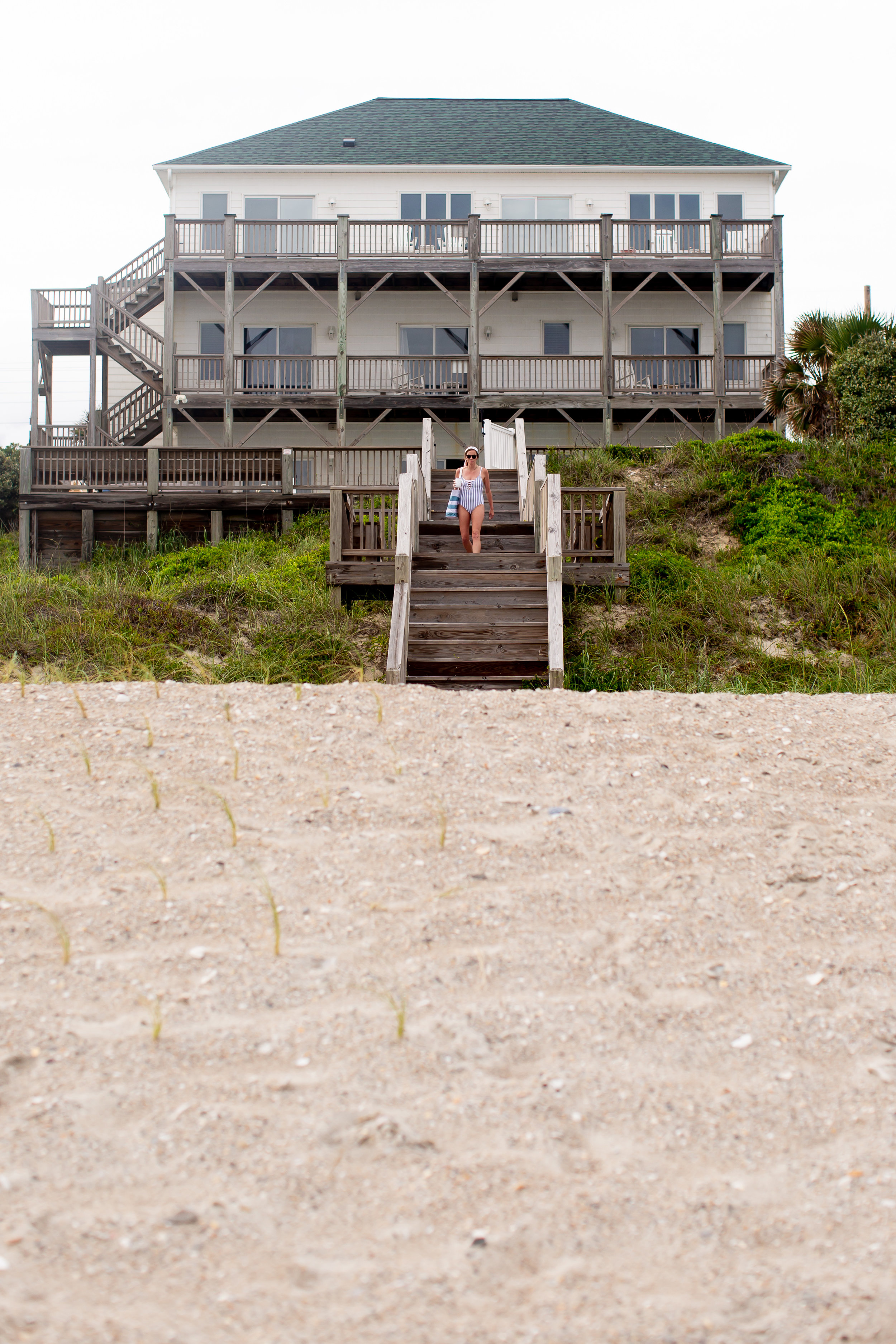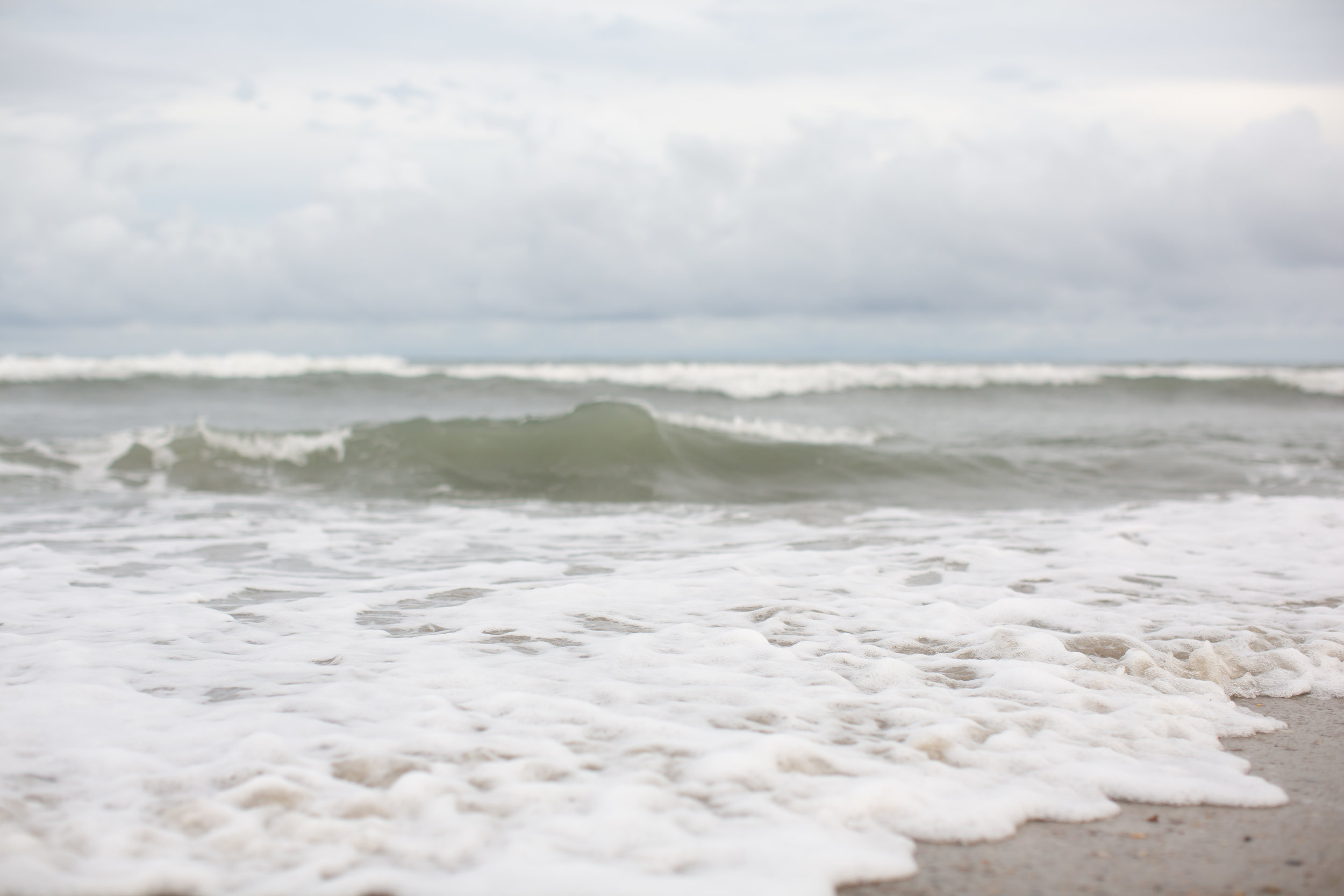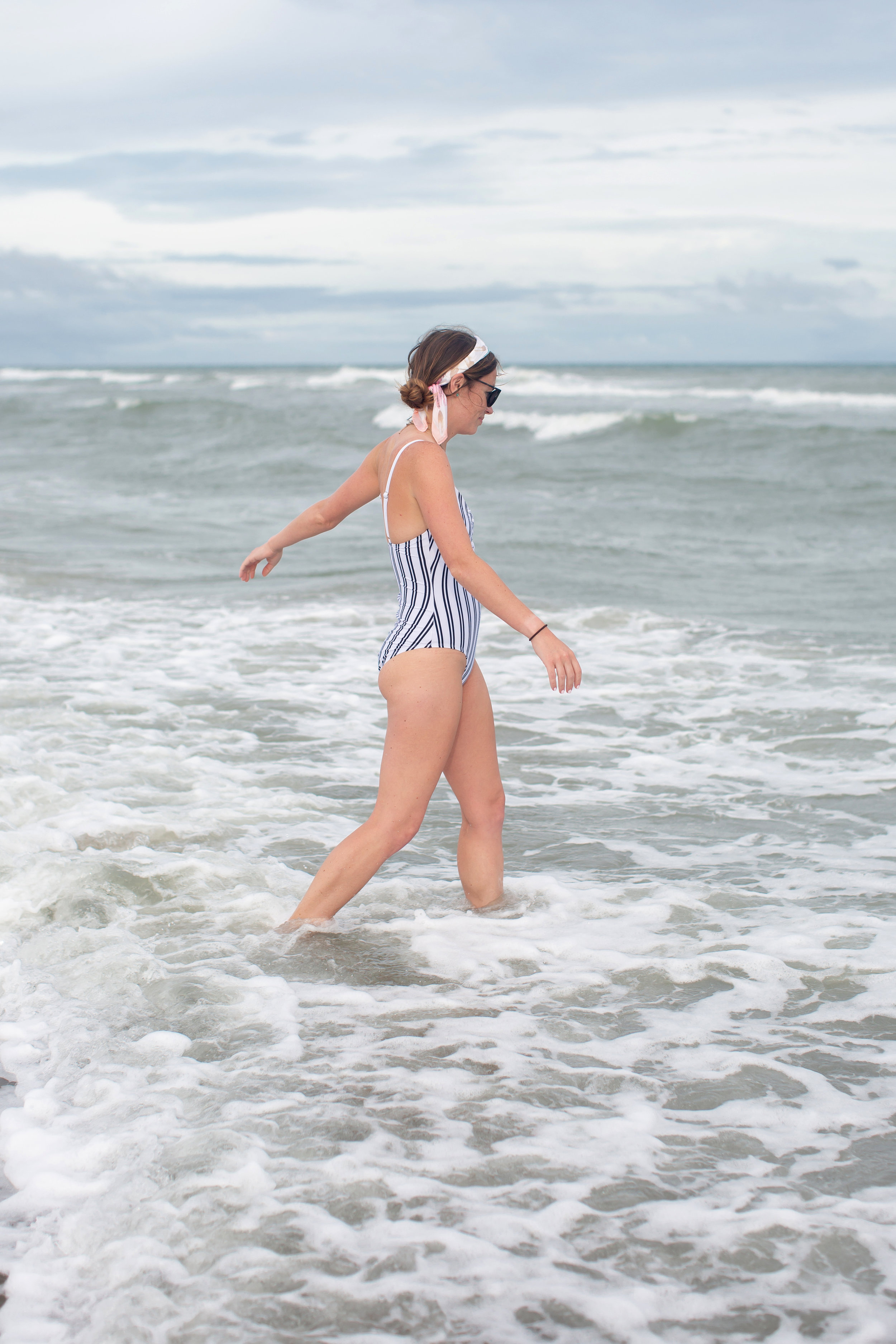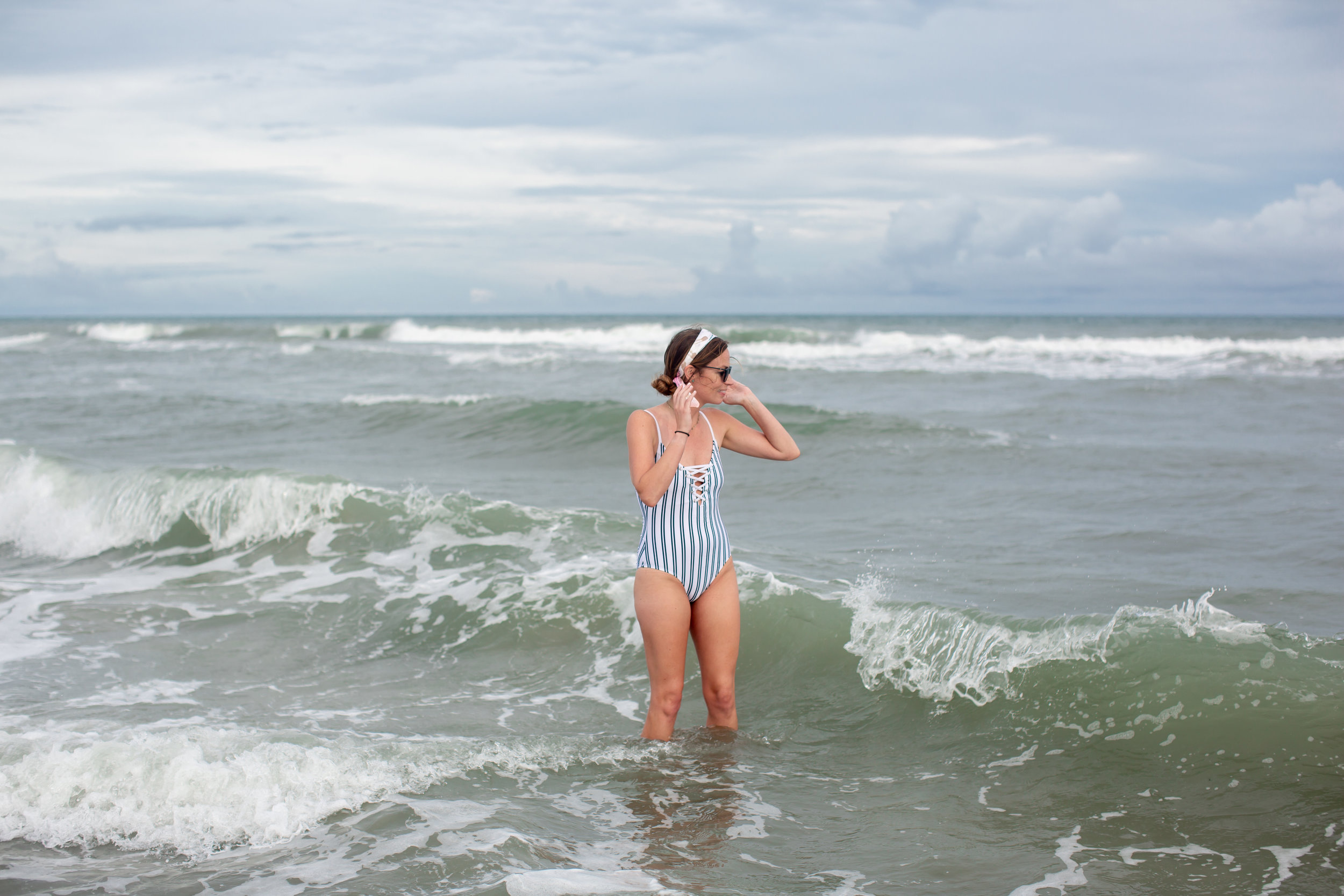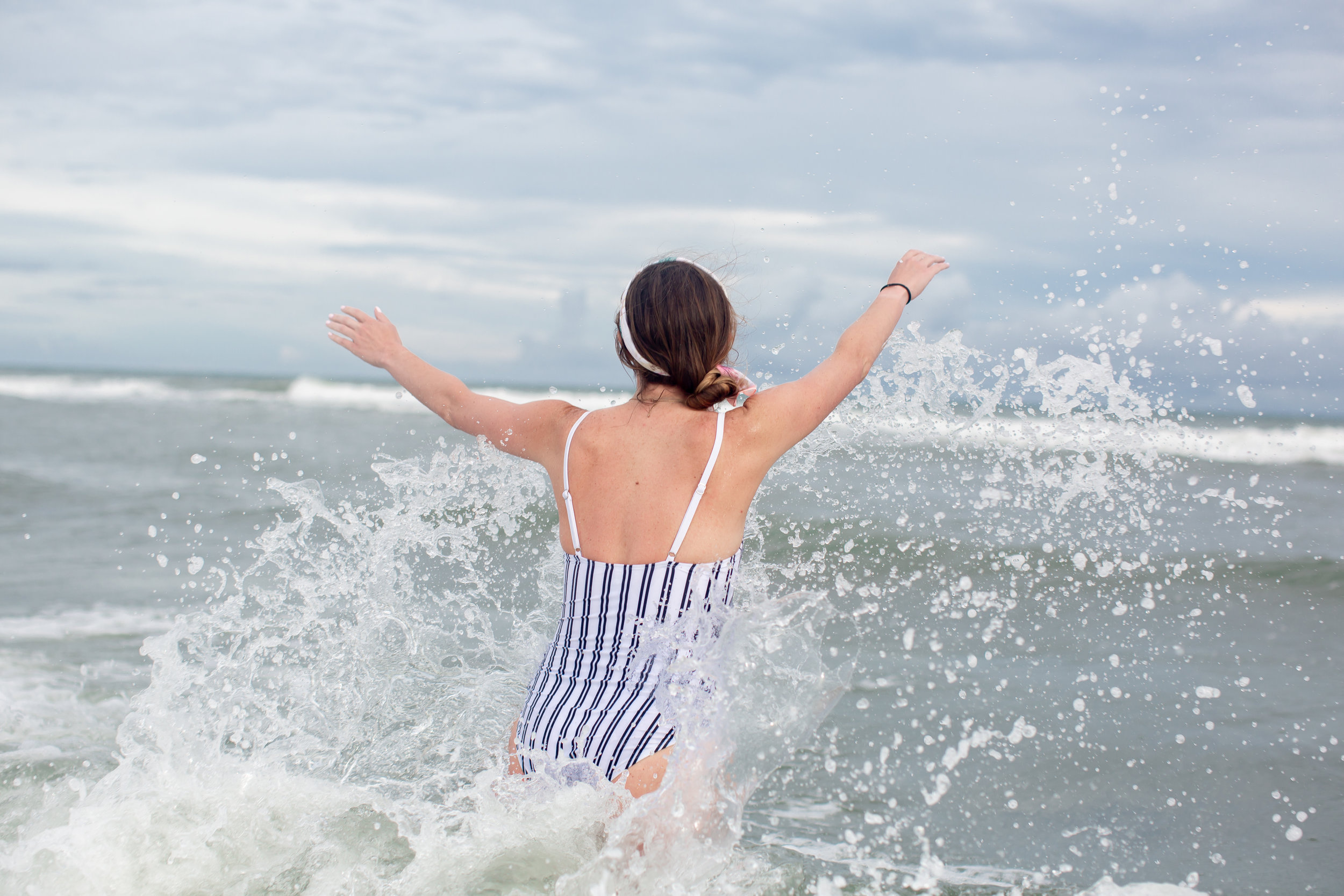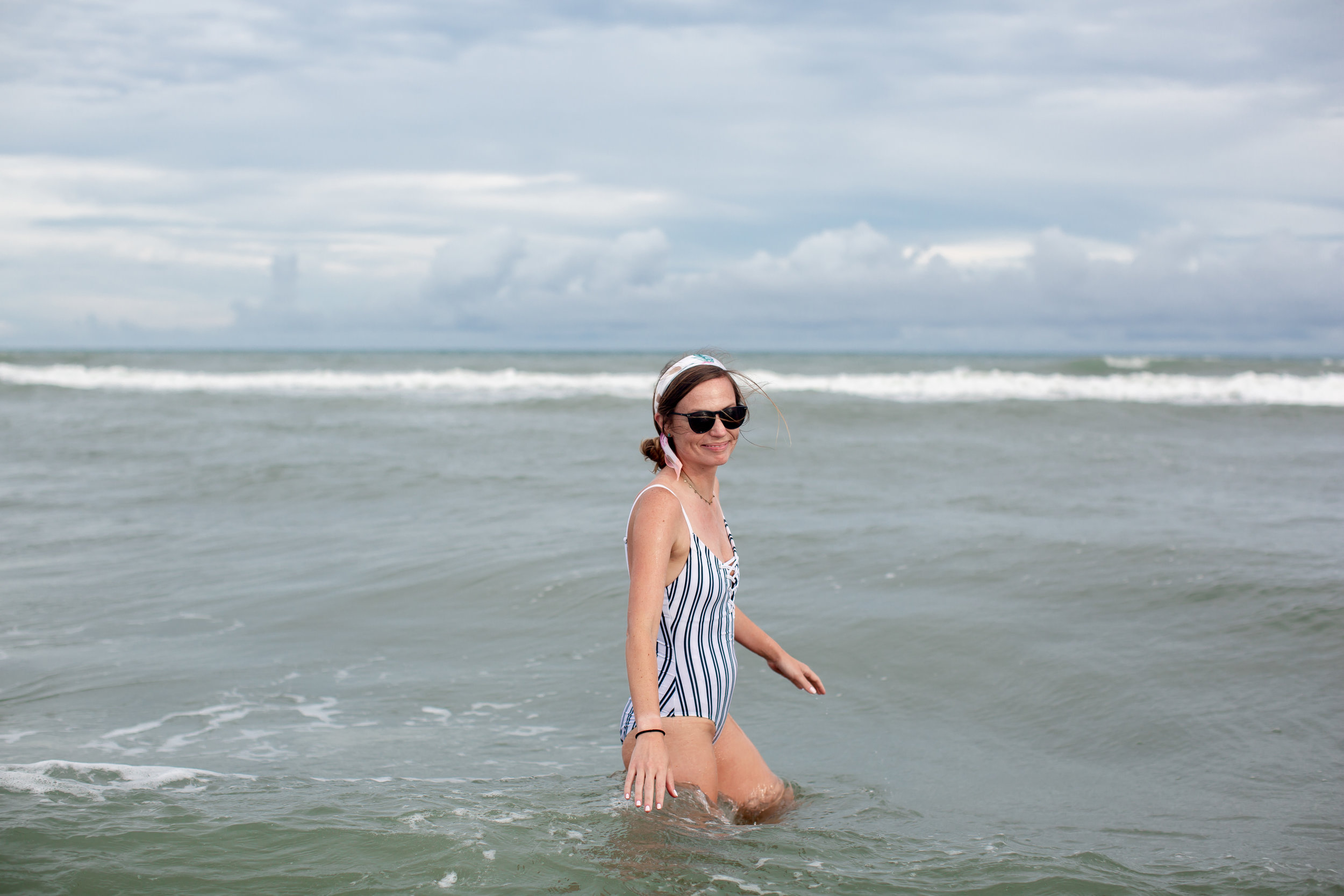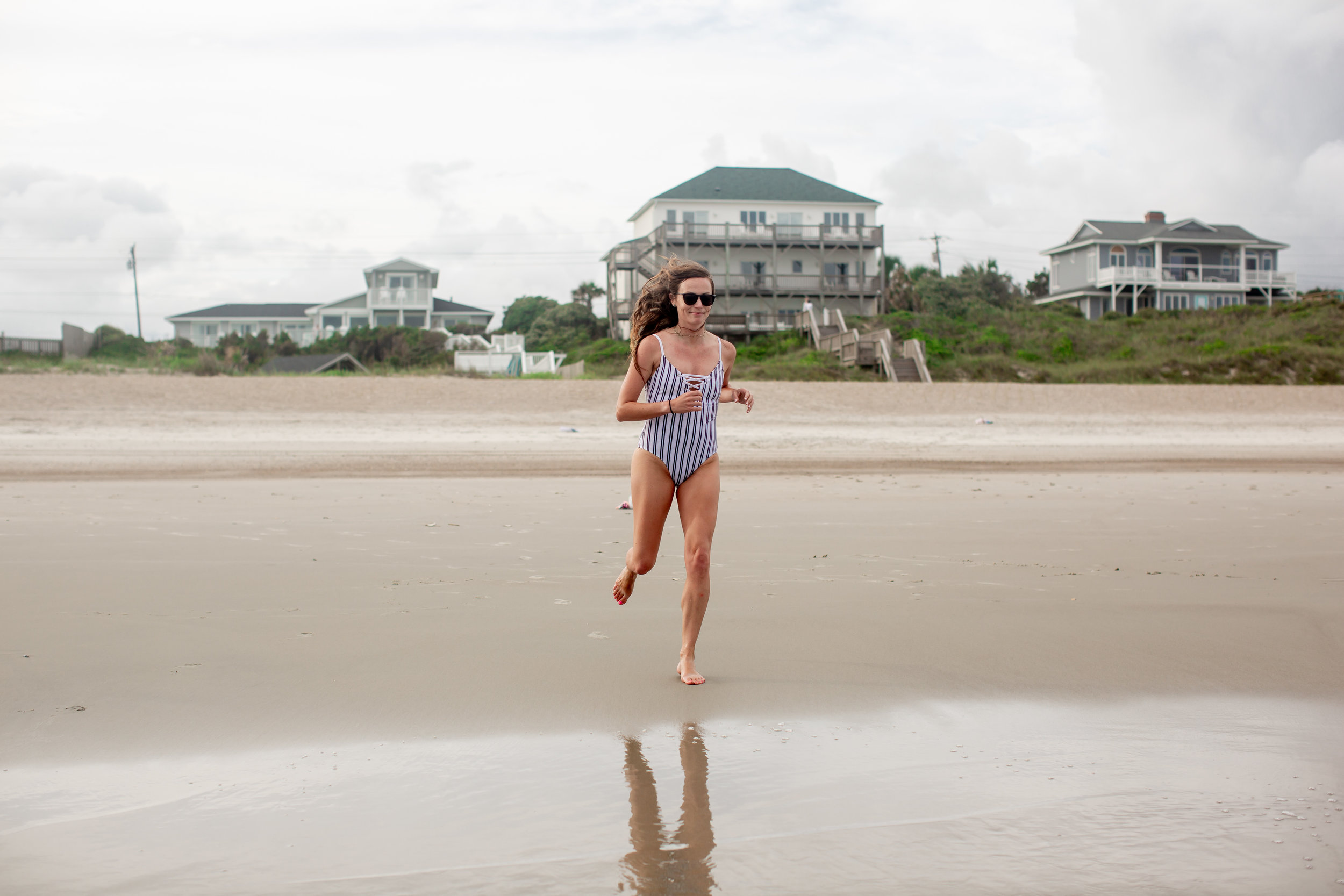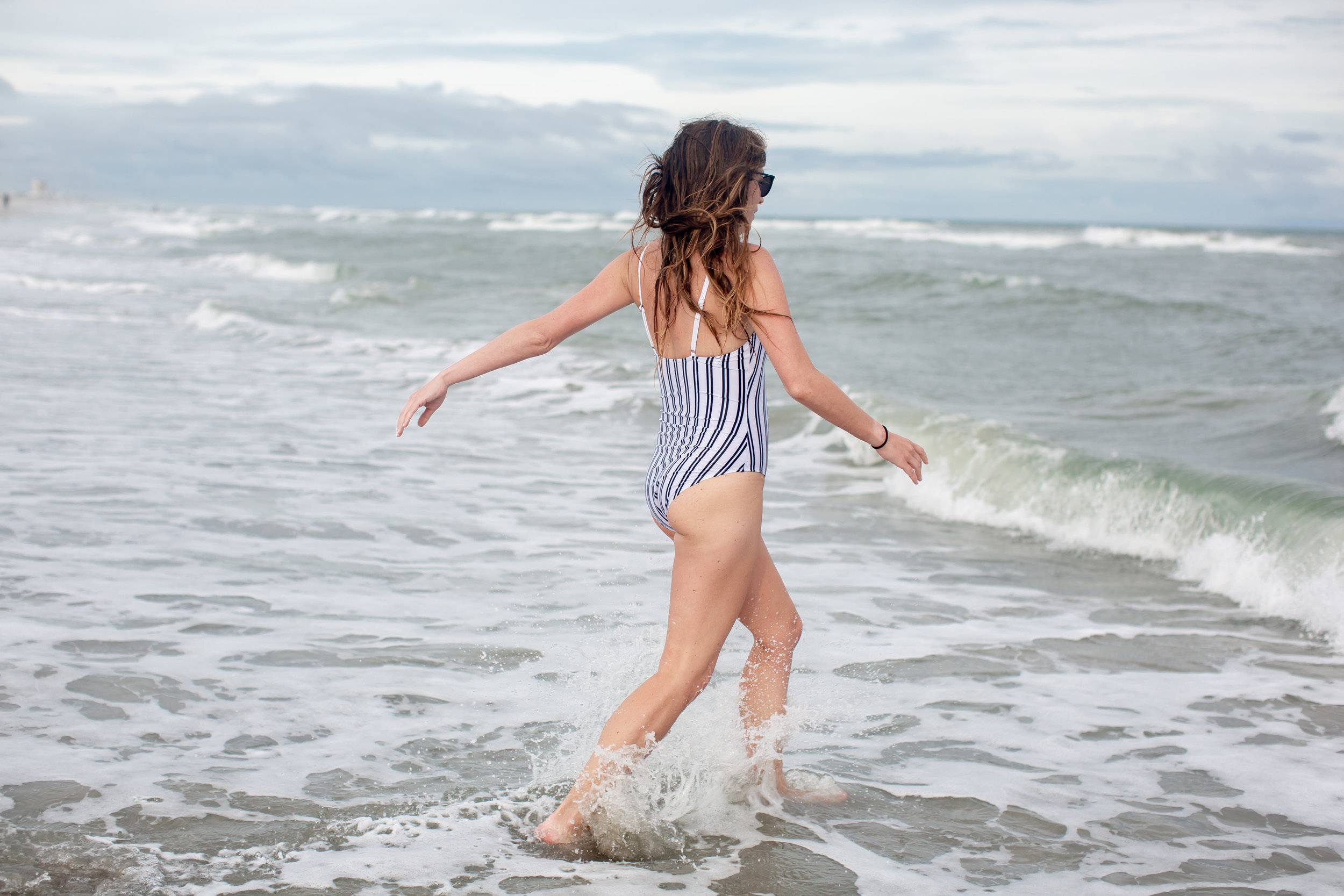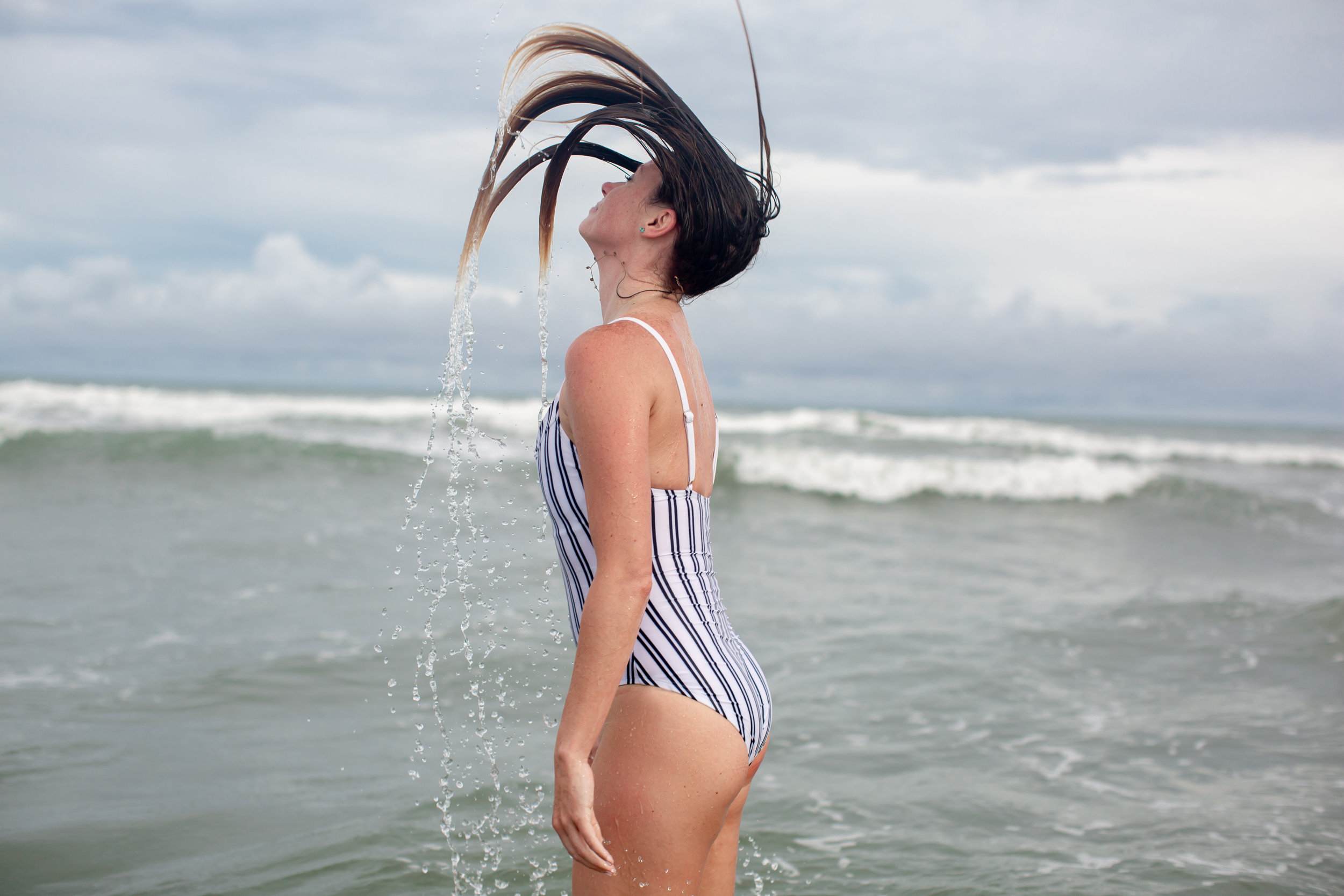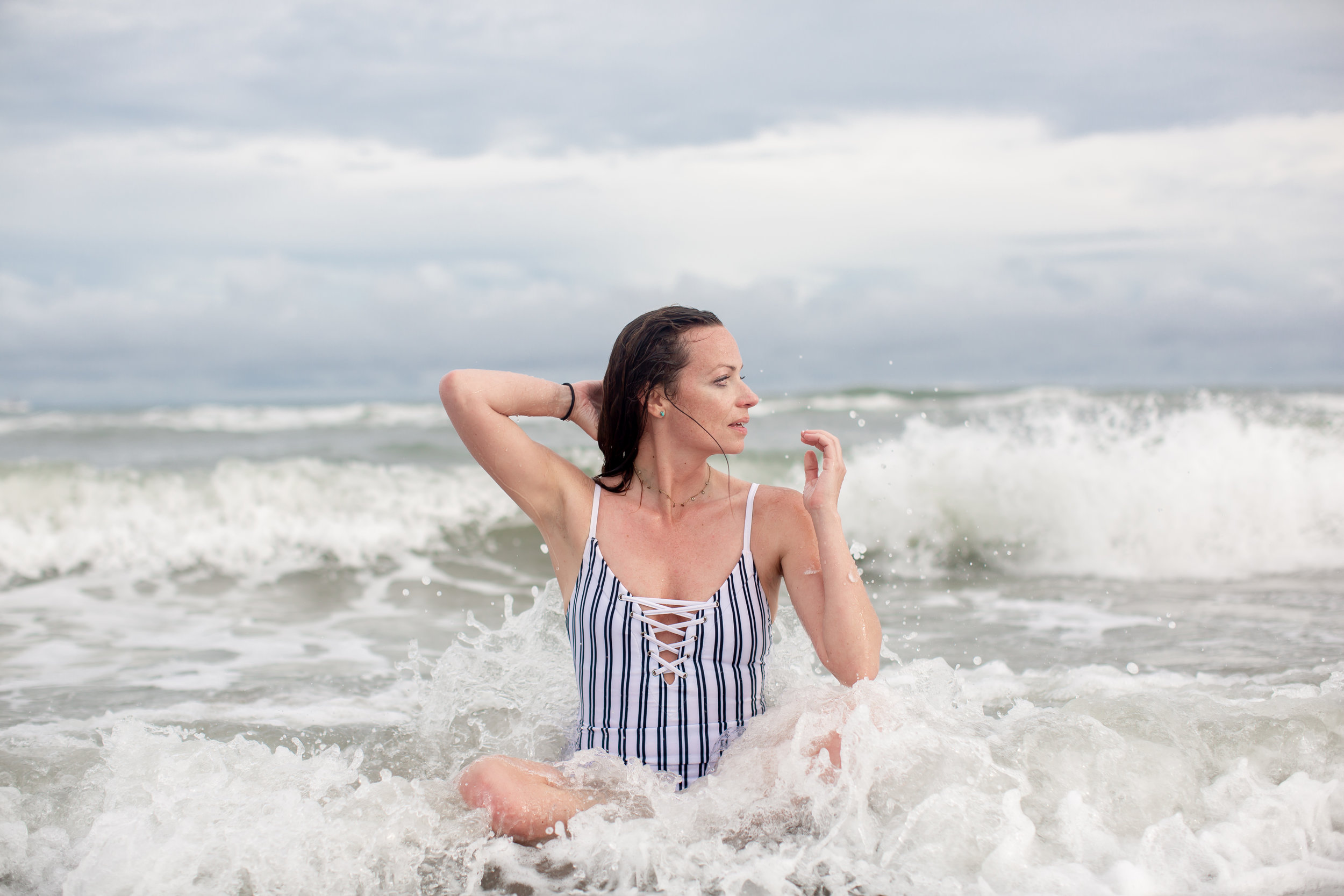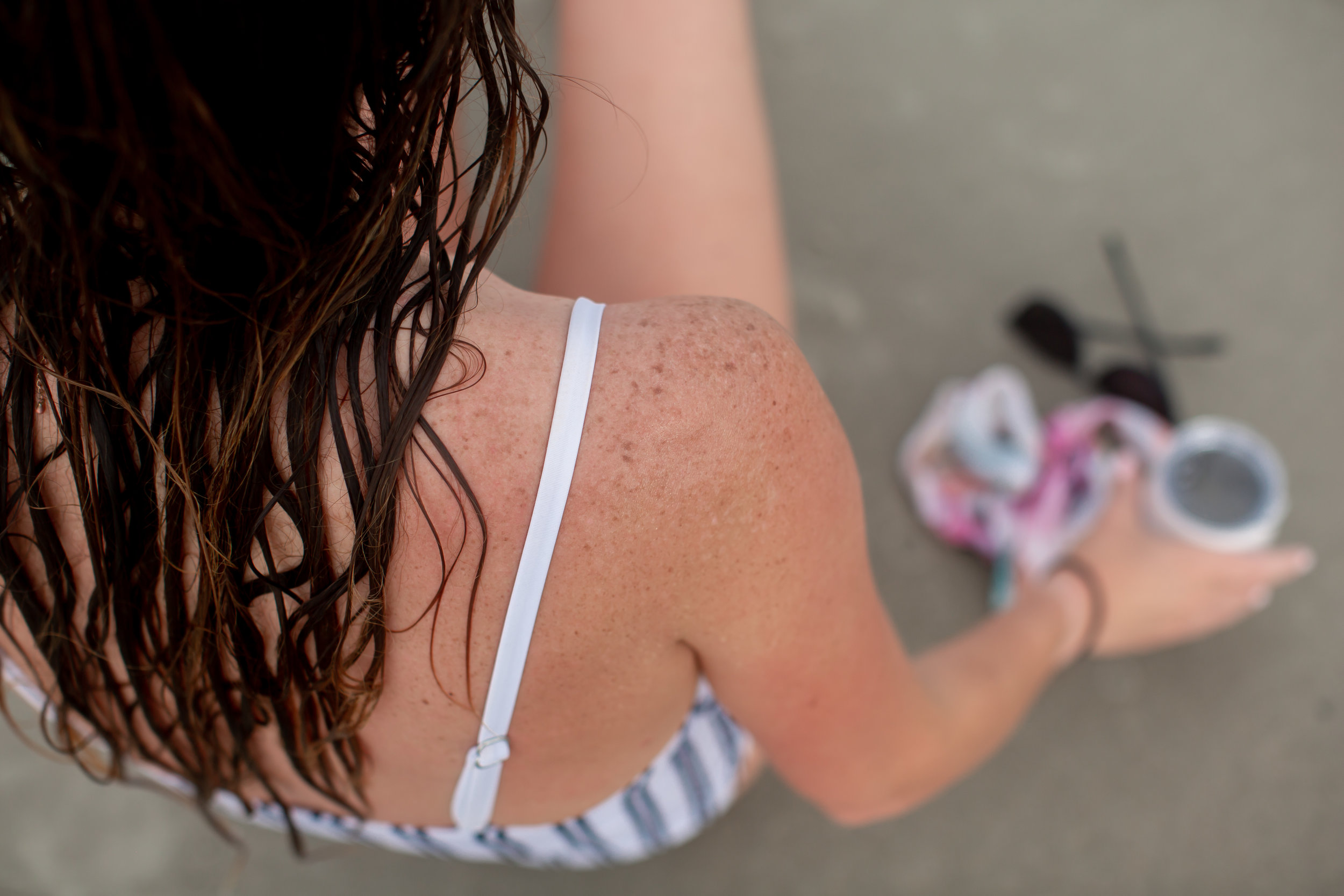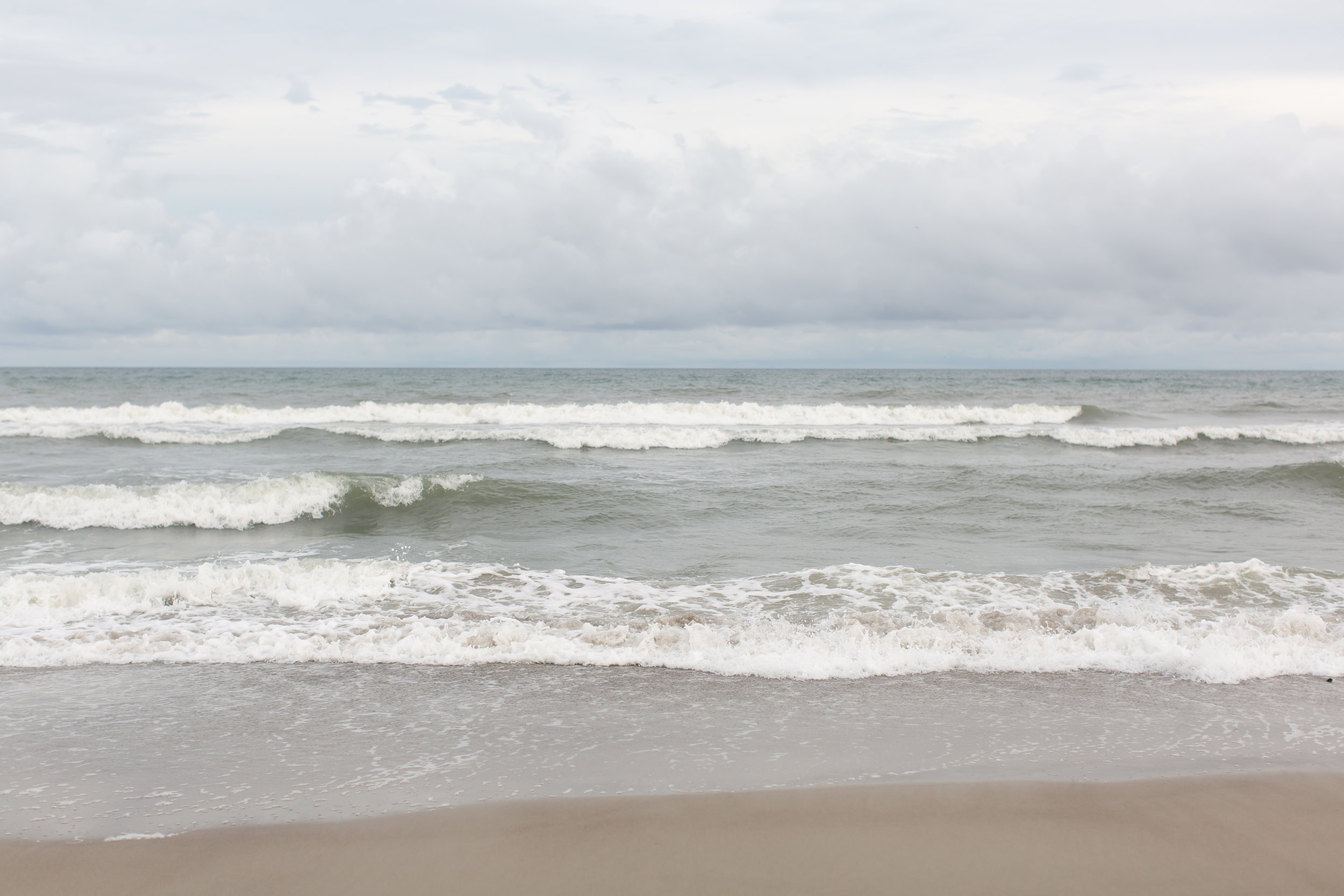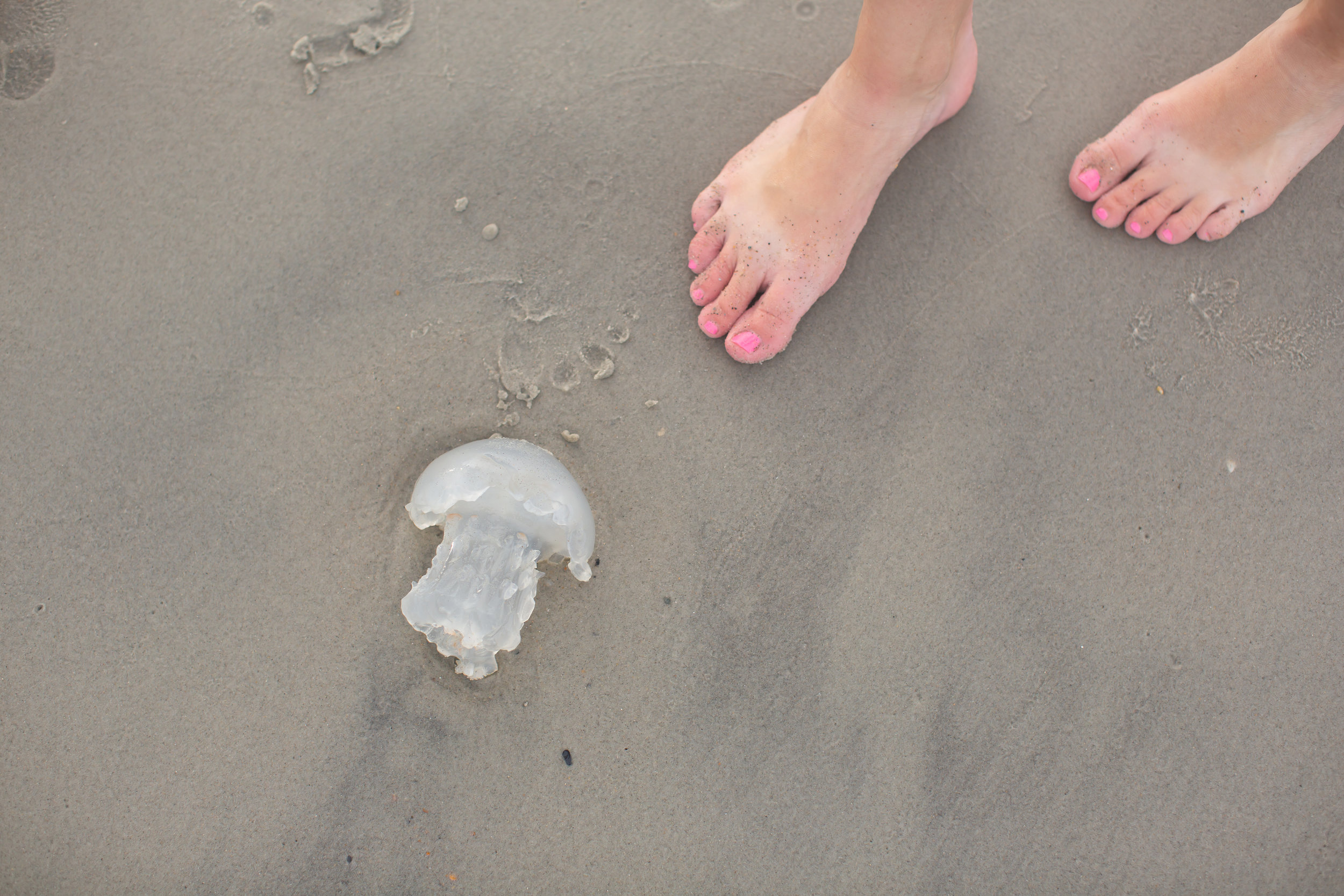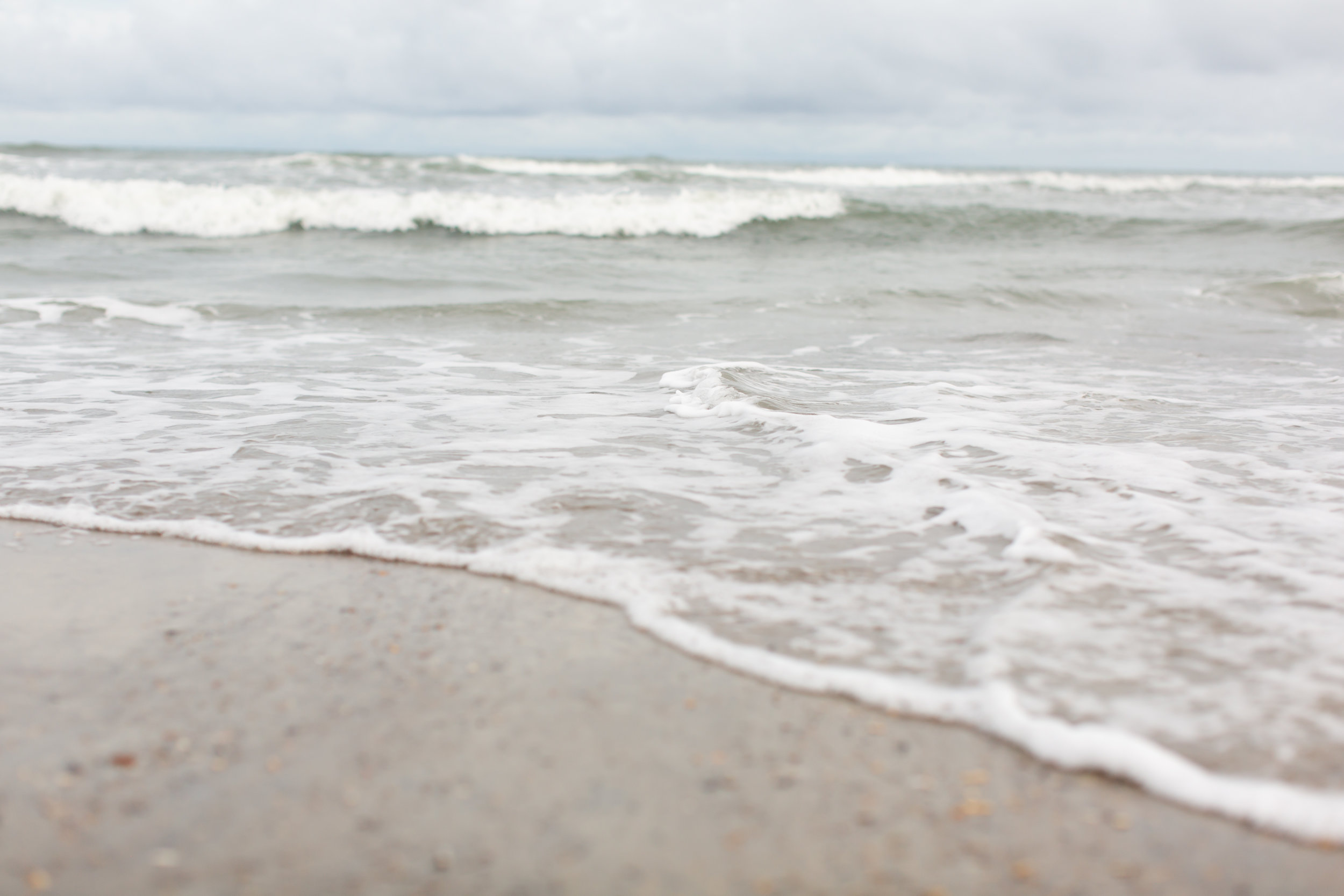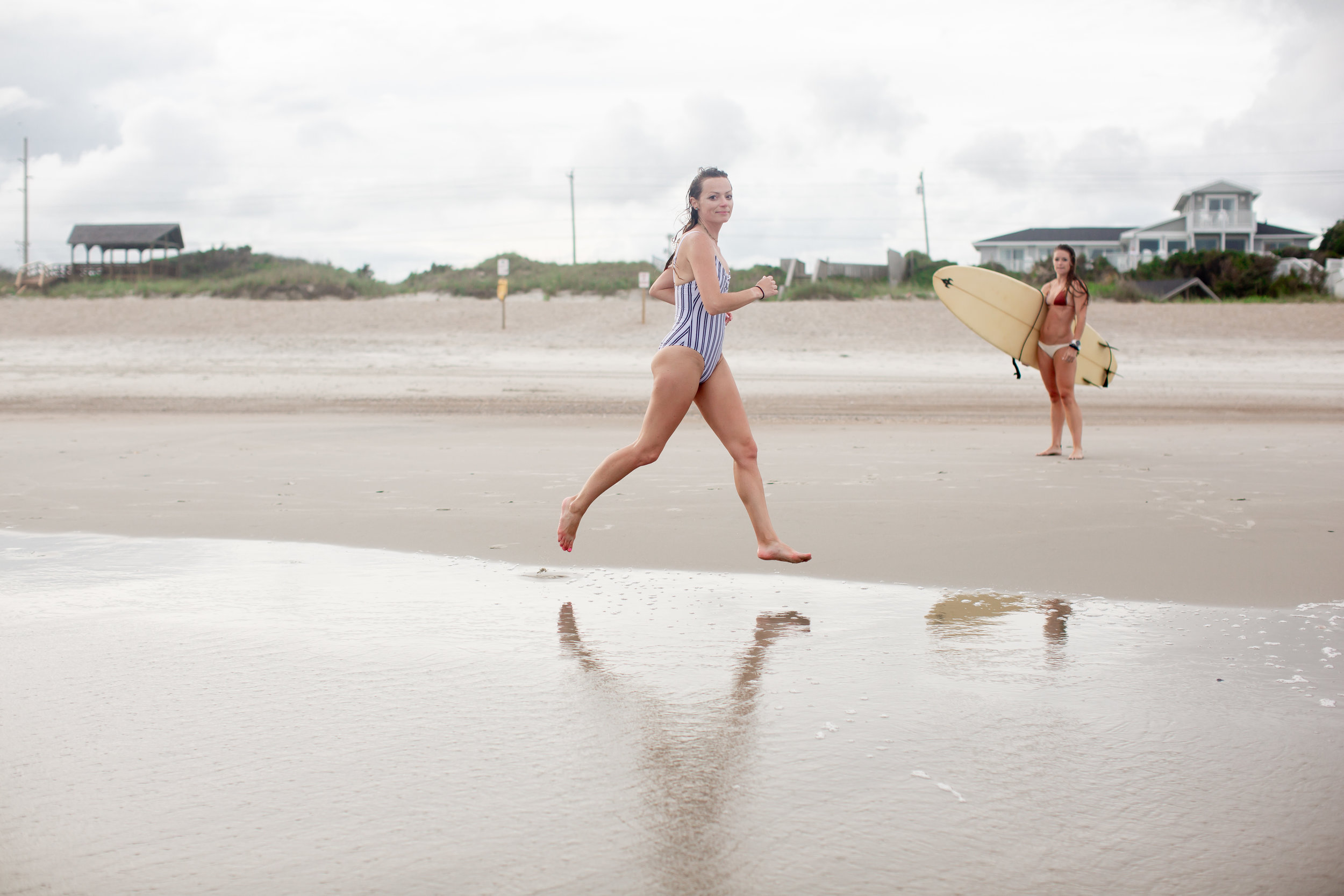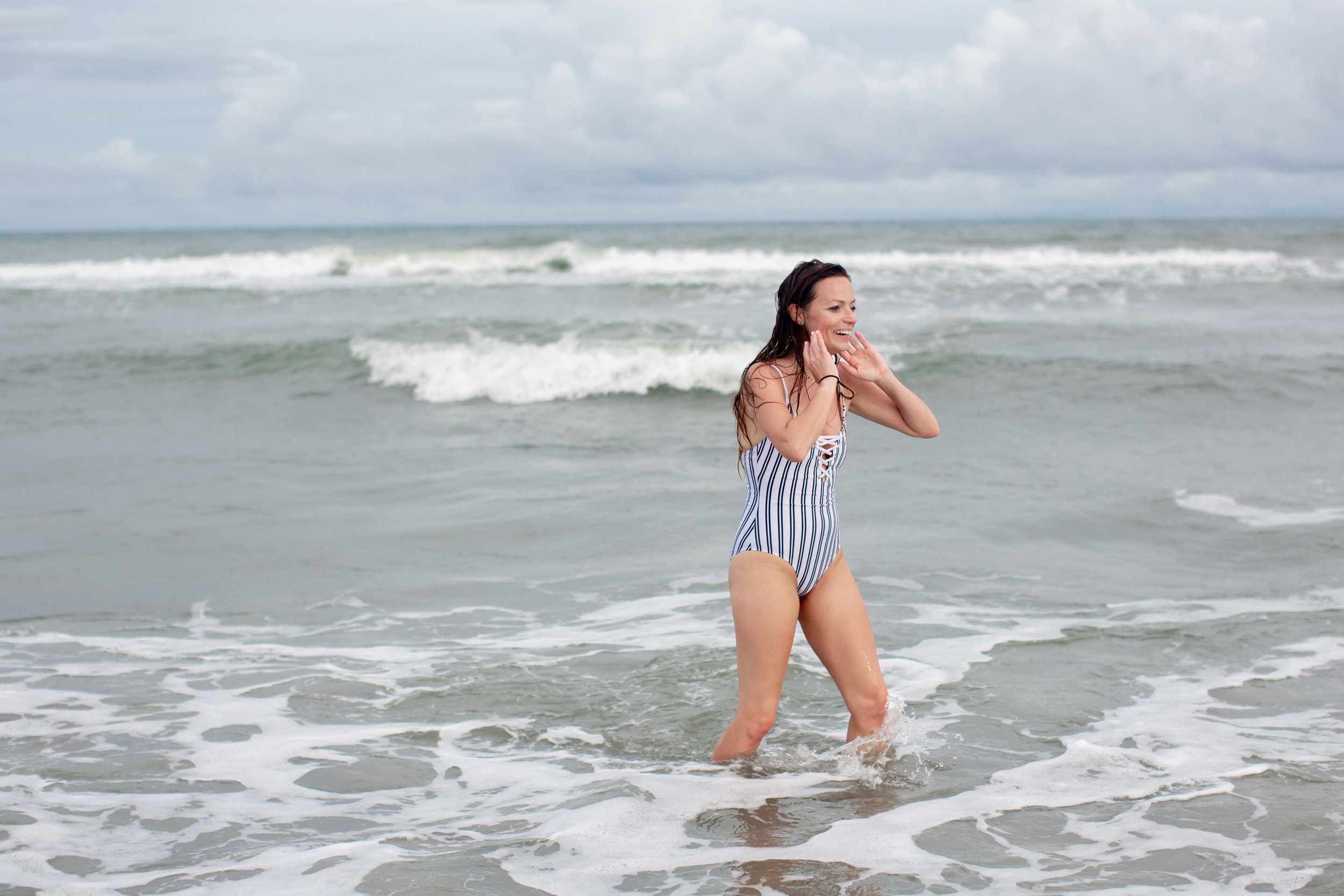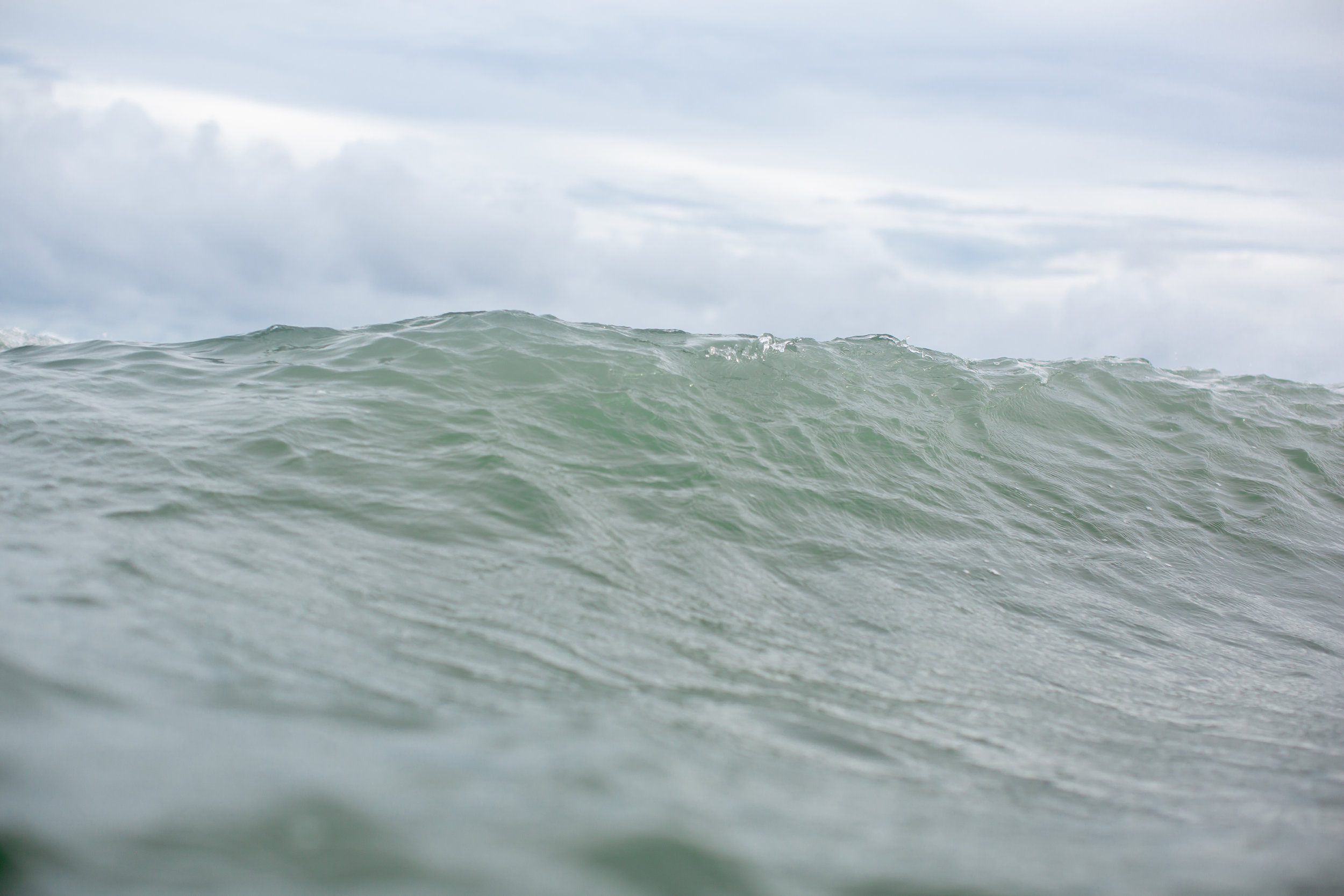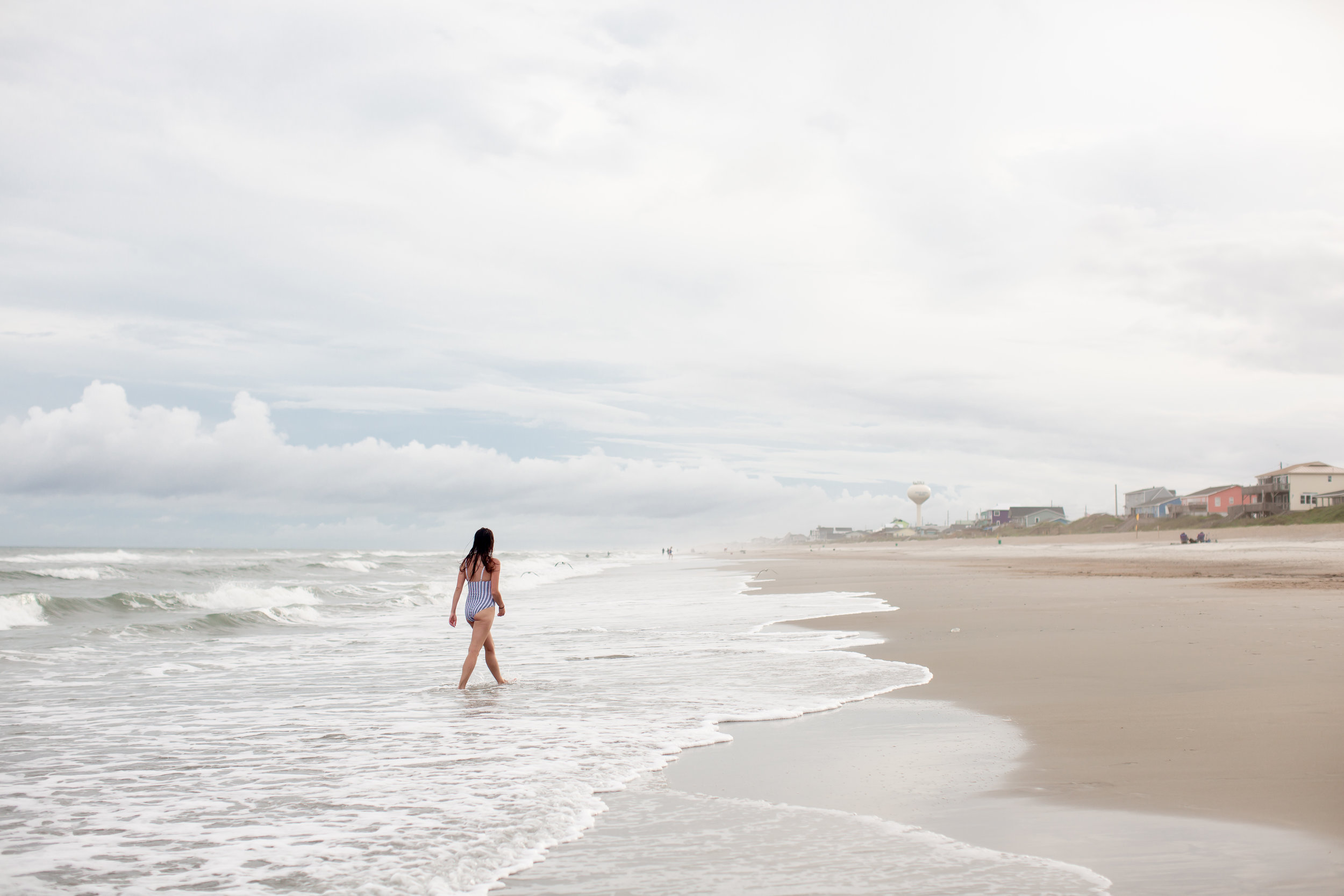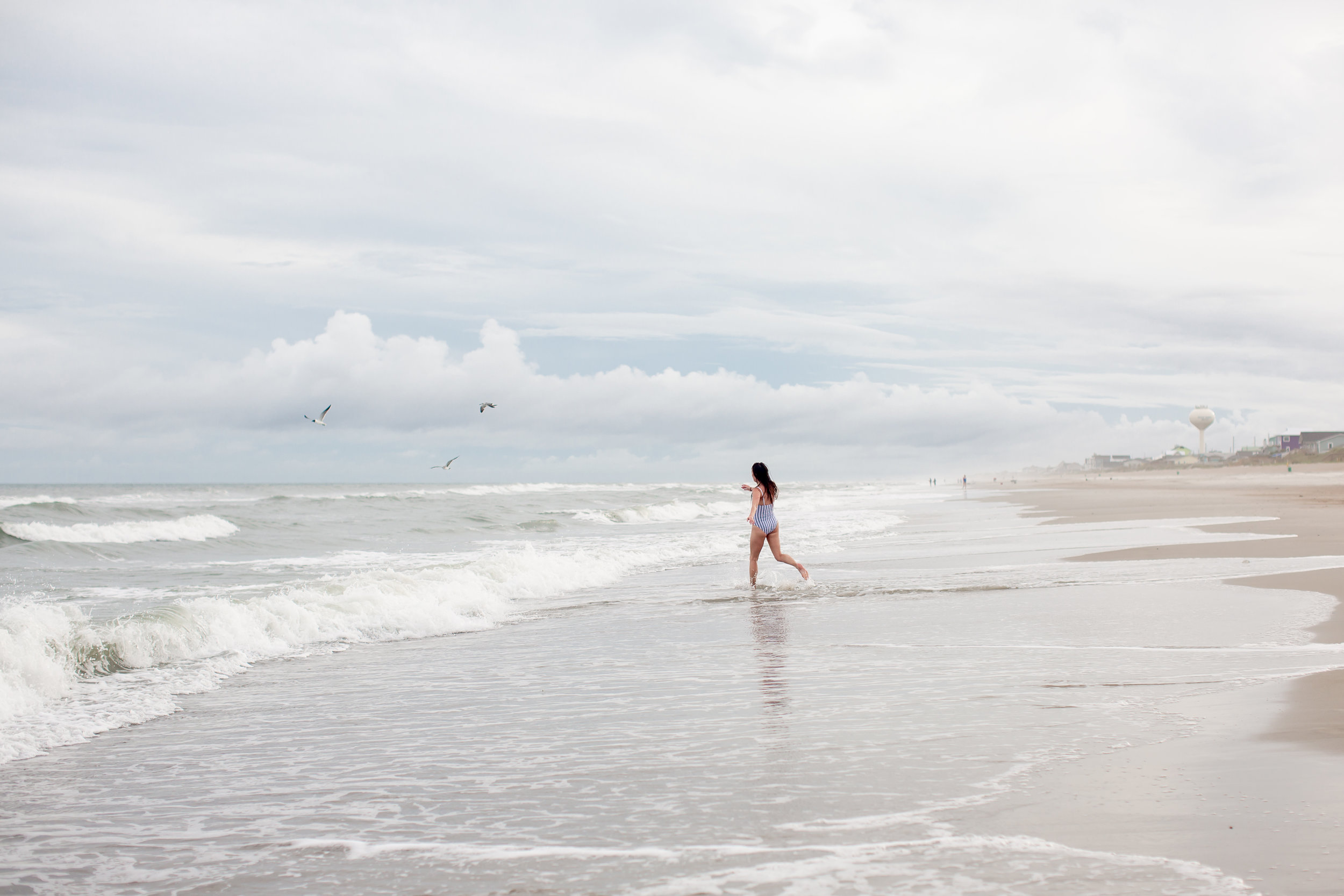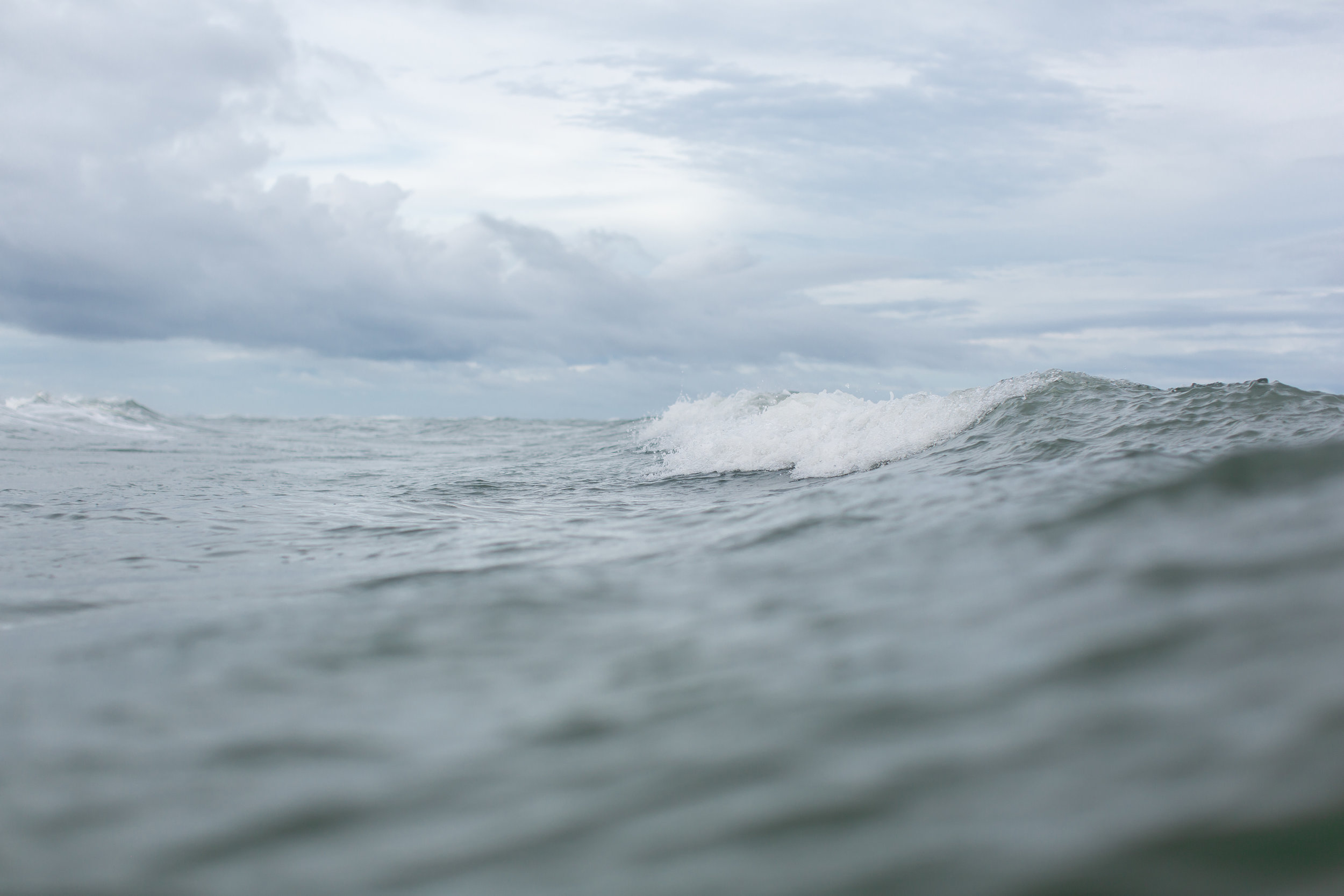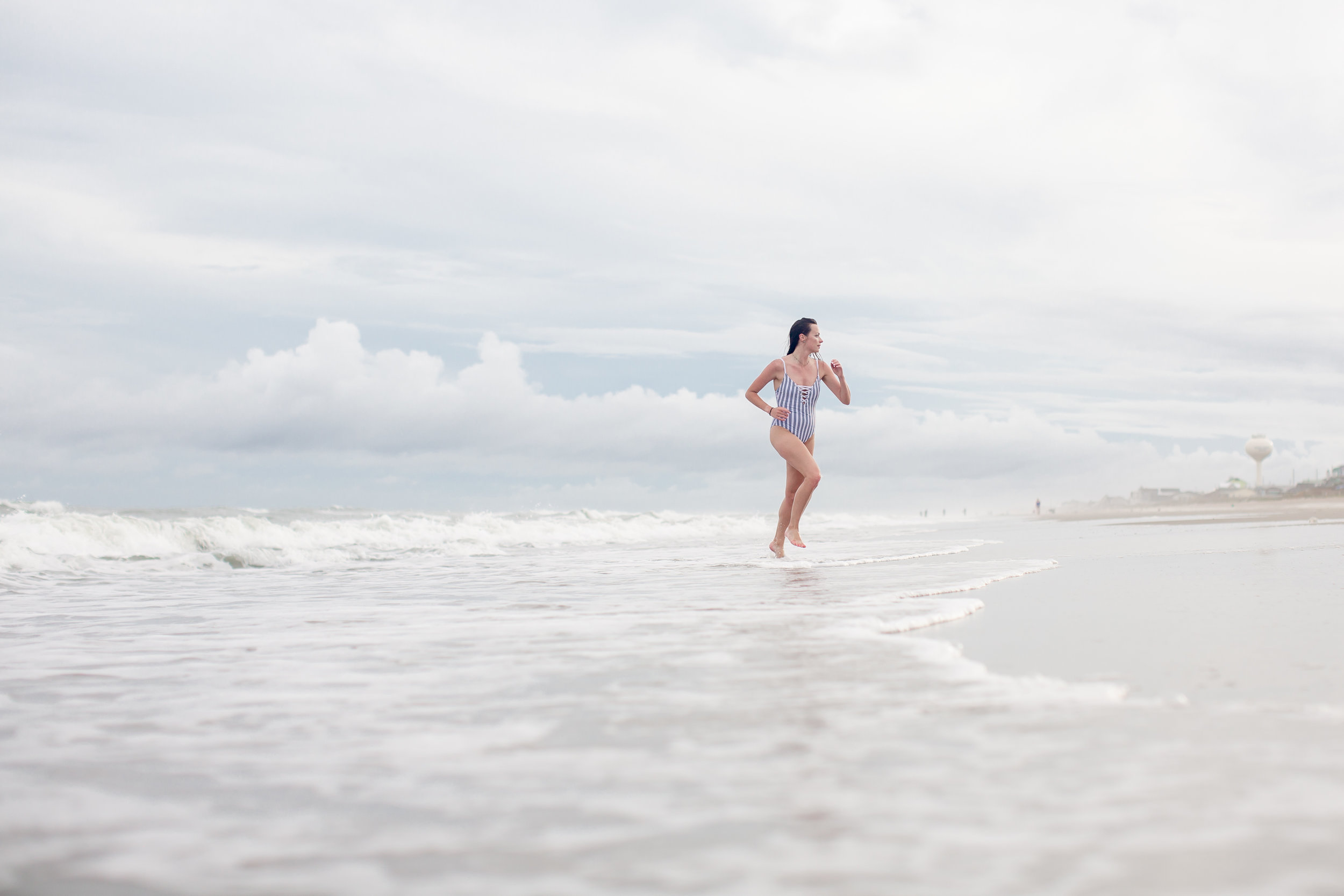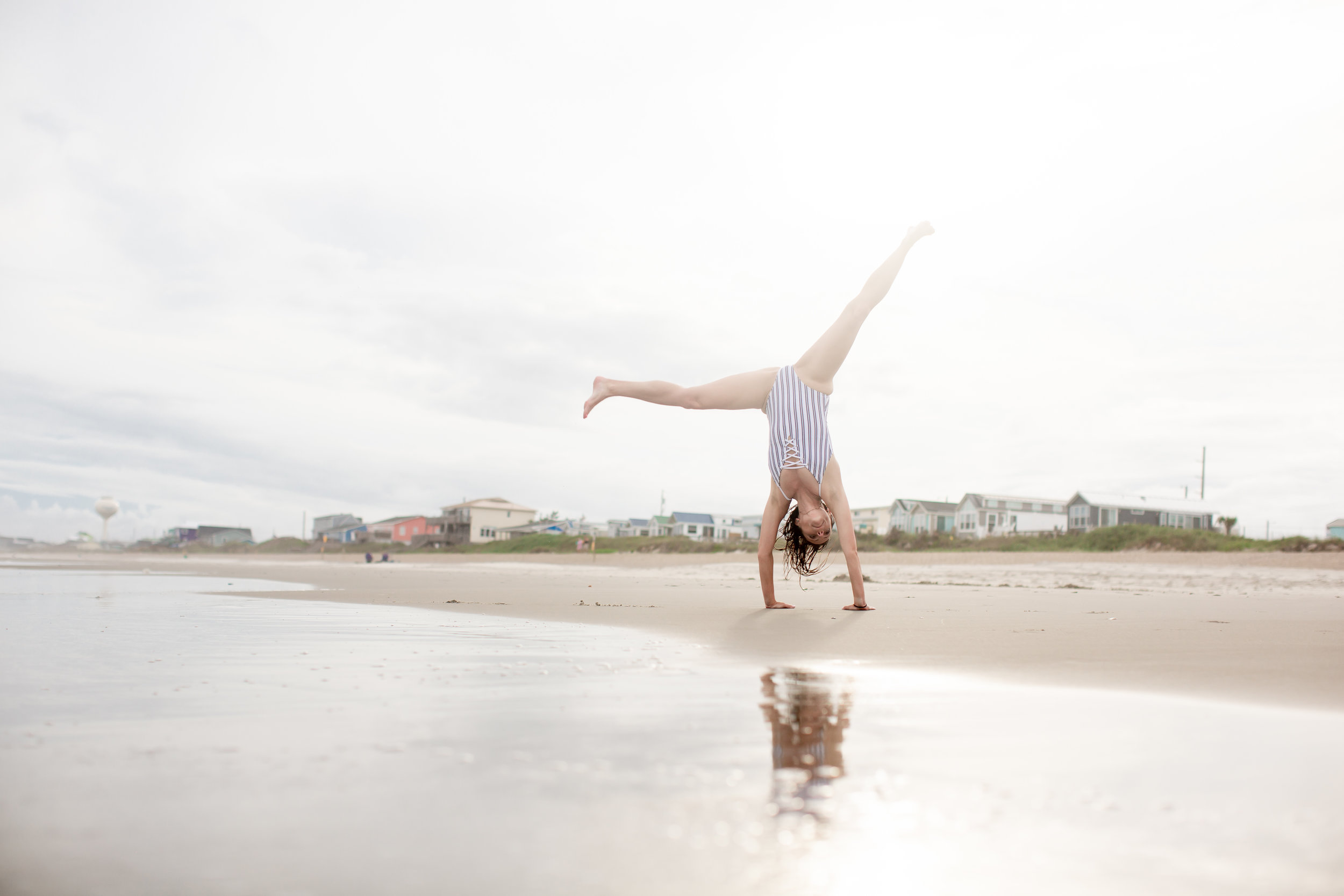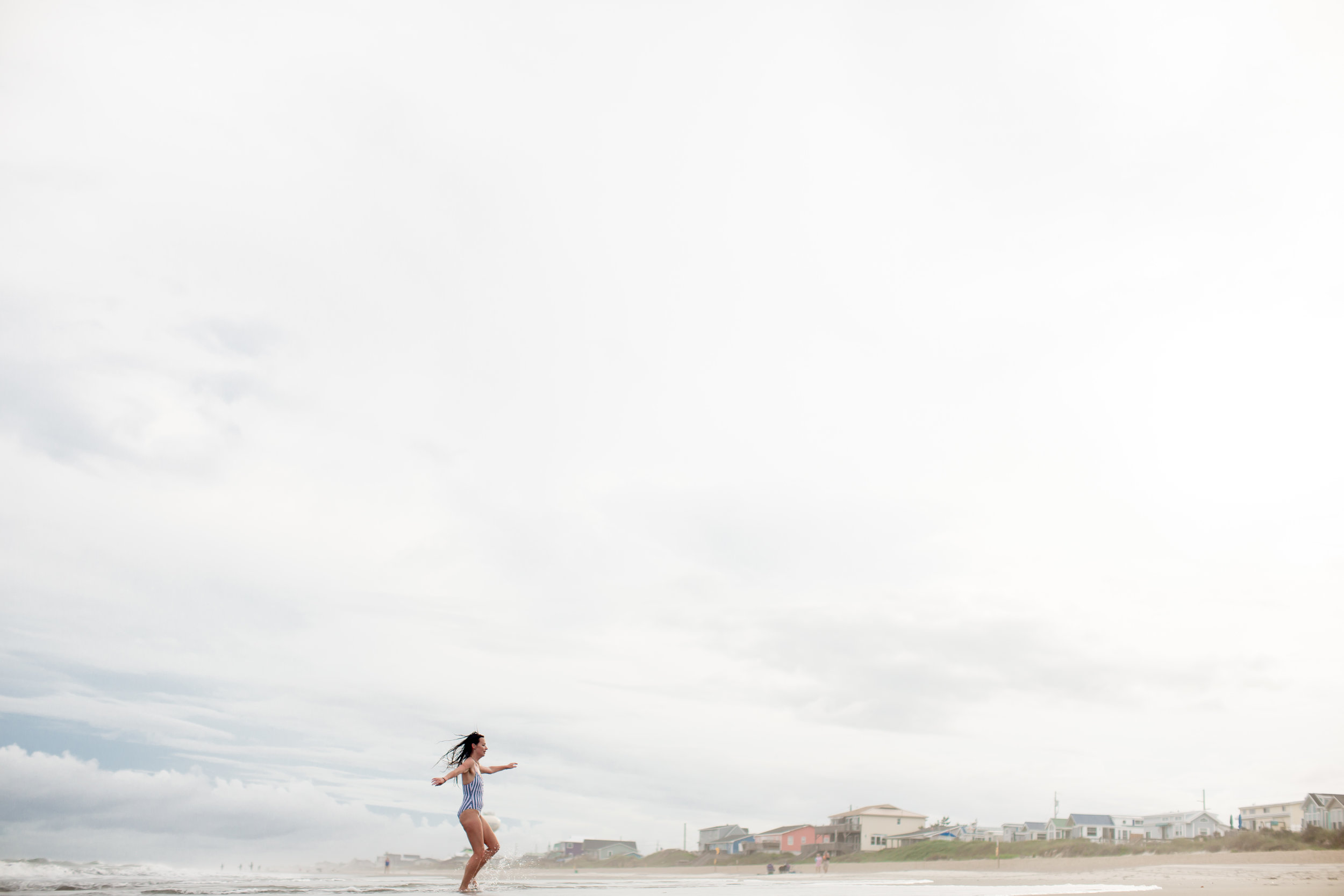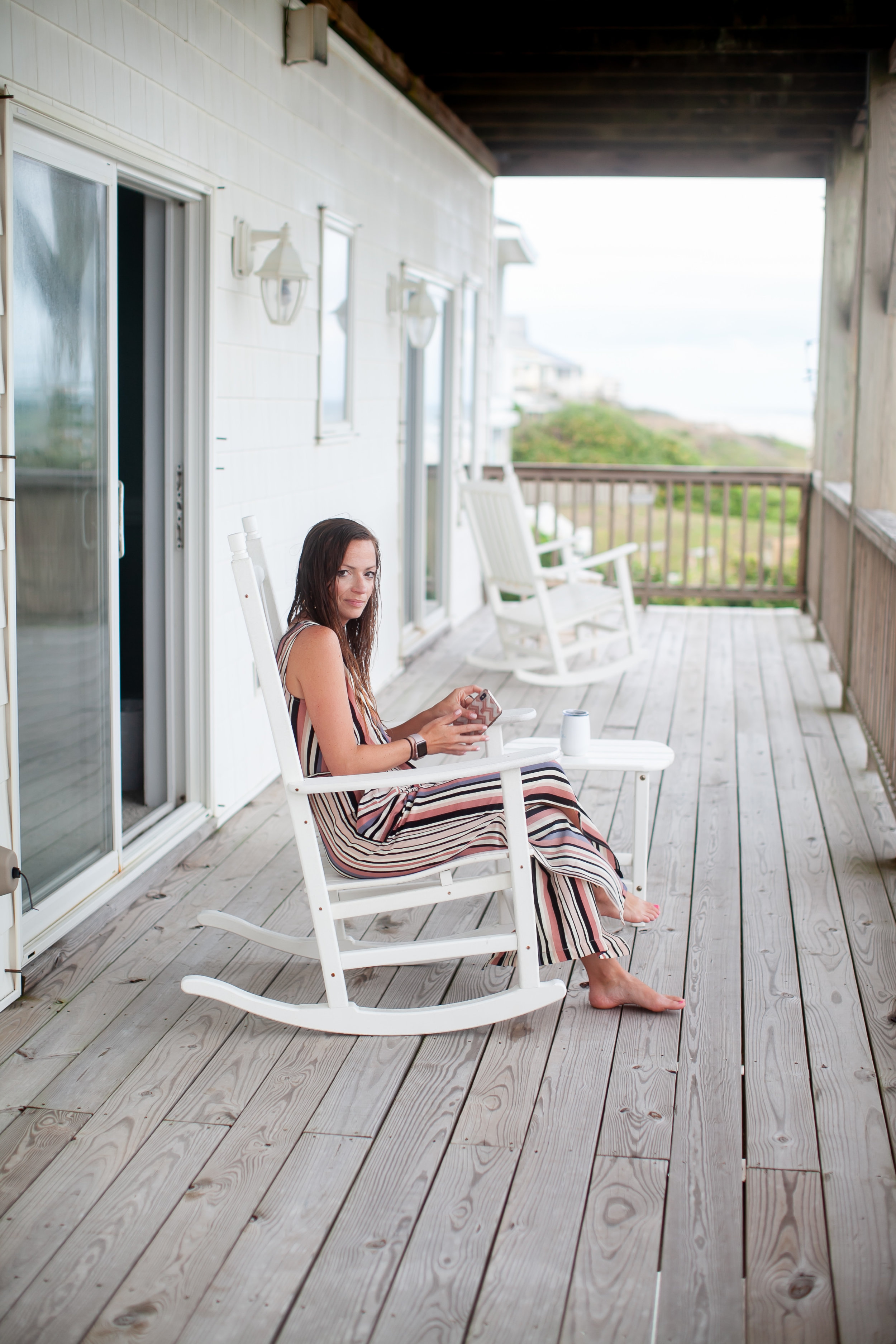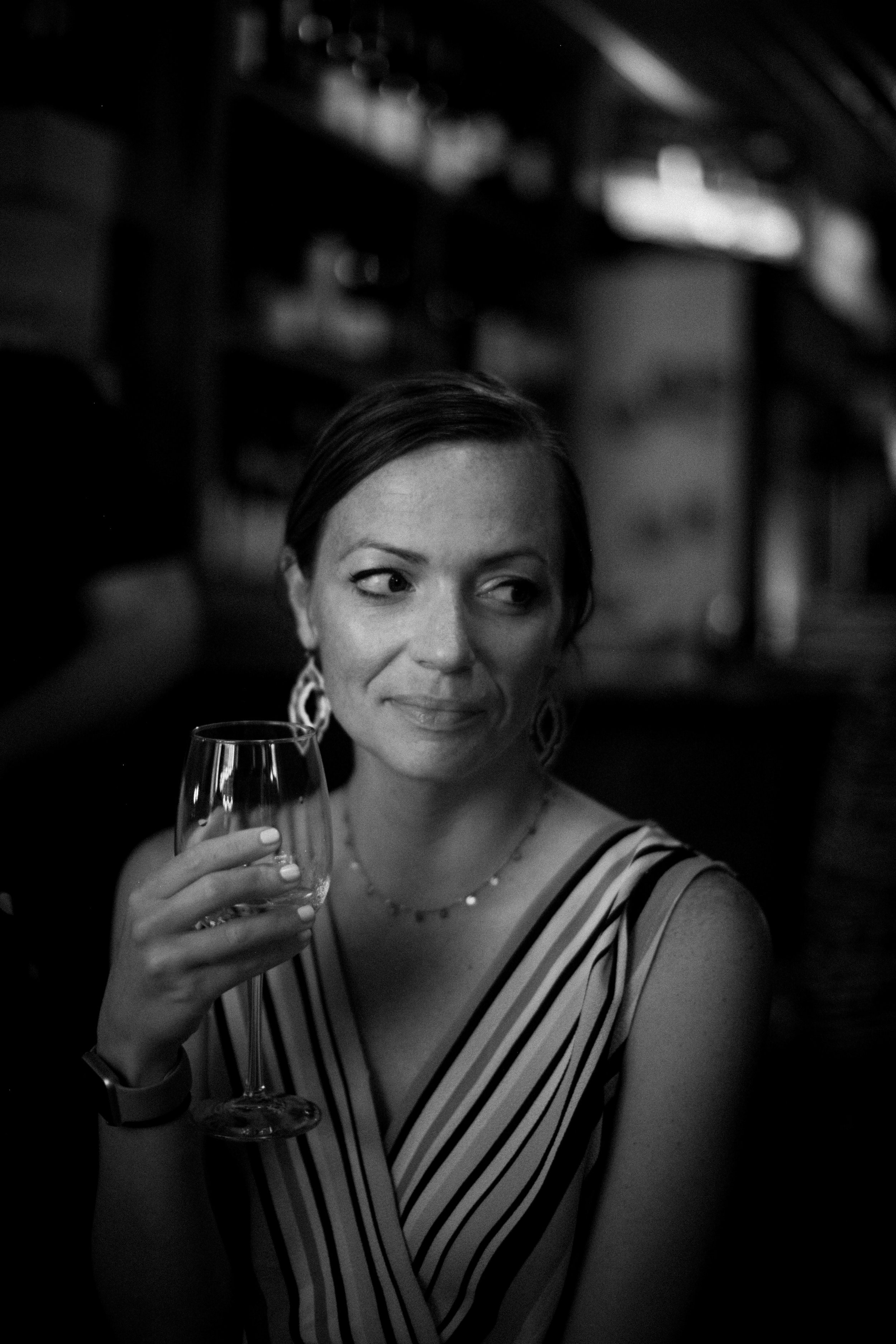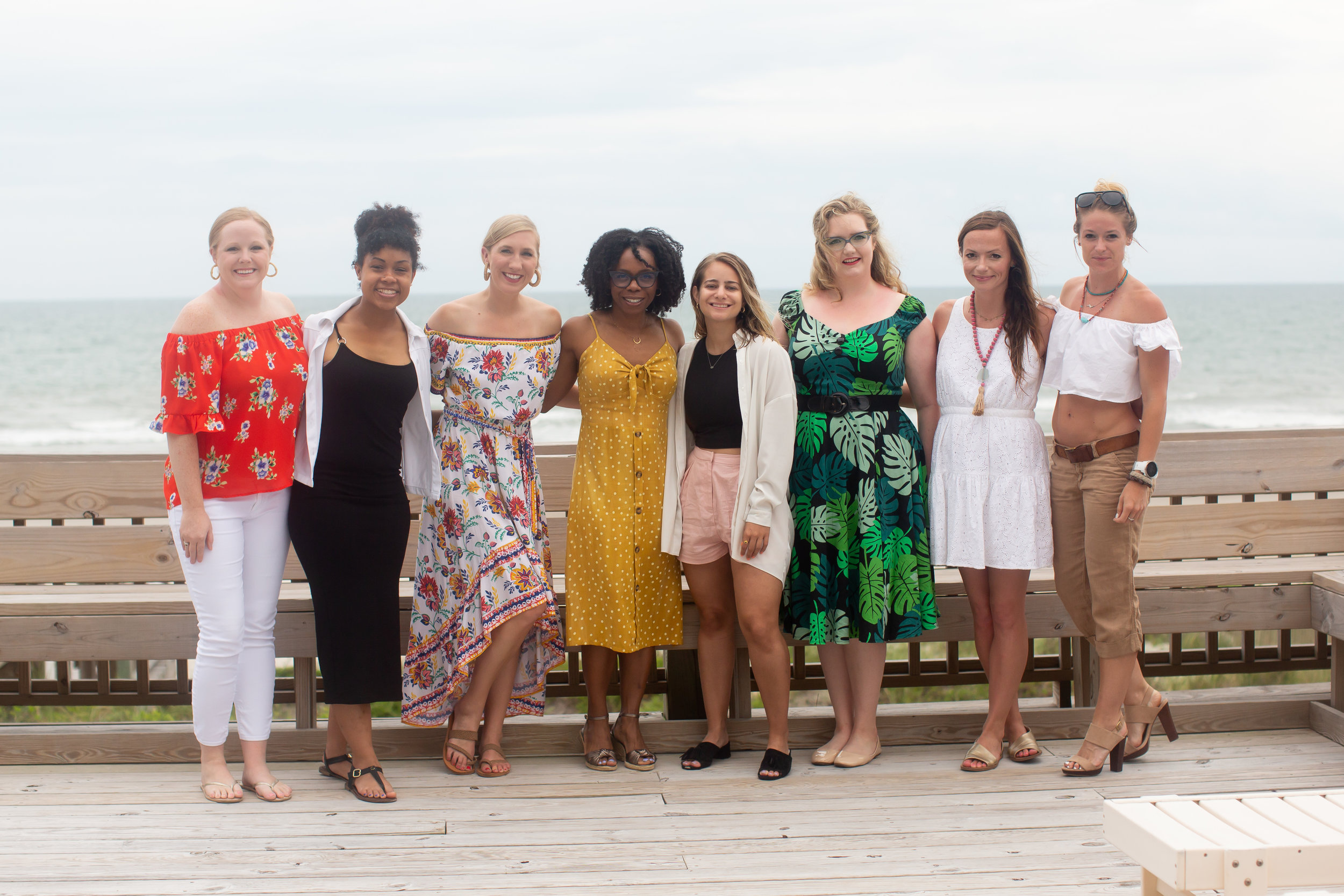Crystal Coast // Outer Banks
After spending a weekend on the Crystal Coast in North Carolina, on assignment for my good friend EmilyVenture’s travel business, my mind kept returning to this question: do humans have a biological drive to be near water? Maybe there’s a reason why Sophie’s sound machine and its channels of ocean waves, flowing creeks, and thunderstorms lull me to sleep through her monitor. Maybe there’s a deeper, more innate reason why the pull and push of the ocean, the dark, cold blue of Grand Lake, and the smell of the river air where Joe and I fly fish every year signal my body to slow its breathing, slow its thinking, slow its pulsing.
Two summers ago, Conde Nest published the article “Why Being Near Water Really Does Make Us Happier” where they interviewed marine biologist Dr. Wallas J. Nichols. Evidently, I’m not the only one wondering about our genetic inclination of gravitating near bodies of water. In his book on the subject, Dr. Nichols asks people this question: Where is your water? Where do you tap into your blue mind? He asks because many of us have a place, a water home, which we stake —in Buzz and Armstrong style— with our own personal flags. My water, we say.
As the article states, “The immeasurable sense of peace that we feel around water is what Nichols calls our "blue mind"—a chance to escape the hyper-connected, over-stimulated state of modern day life, in favor of a rare moment of solitude.”
If asked, I’d say Grand Lake is my original water. Joe and I were married there in 2012, and we go back every year for our anniversary. Standing at the edge of the hill overlooking the lake — standing on the spot where we said our vows — takes me to a place of instant settledness, of joy. Lake trumps beach. Right? I thought so.
Never have I been one to prefer sand over pine needles in my shoes, but after this weekend, I may have found my second water home.
I blame it on the wild horses, mostly.
One herd of them lives on an island in the Rachel Carson Reserve. We kayaked along the shoreline and found nine or ten of the horses less than half a mile inland, grazing in open fields. Manes, thick and messy, uncombed, unbraided, unribboned. Coats of rough, brushed velvet. We watched the horses stand in the middle of the large pools of water that collect in the fields; we saw them drink the layers of fresh rainwater that gather on the tops of the saltwater below. From 50 feet away, we stood and watched. They were silent. Connected to their water, their place.
I could also blame this new blue mind of mine, on climbing the steps of the Diamond Lady lighthouse at Cape Lookout and seeing the sprawl of the ocean and its shores, pulling me in every direction like da Vinci’s Vitruvian Man. Or maybe it was floating on my back in the ocean, feeling the back and forth of my body in the water. I fell hard for North Carolina’s waves. And the seafood.
But mostly, it was the wild horses.
In the midst of the rest of the world building up around them, in the midst of boats and restaurants and tourists clamoring for their own flags to stake on beaches and spaces and property, these horses have learned how to thrive on the shoals of an ocean, isolated, untouched, and content with lapping the freshwater off of the surface of the saltwater in their fields. They found their water. And they drink it.


